Theatre Projects
- Aims
This project aims to provide students with an opportunity to engage, not just academically, but experientially with a written text, and to participate in the joint process of bringing a source text to life through the production of a public performance.
The aim is for students to engage closely and interactively with source texts in order to reflect on the way that central themes in these plays are developed and continue to impact on contemporary society.
The intention is to heighten students’ awareness of the practical and intercultural aspects of theatrical performance through performative interpretations of the source texts.
- Objectives
To bring students and staff together to perform with external speakers and engage successfully with members of the public.
Whilst the aims and objectives remain the same every year, the unique make-up of each theatre group take participants onto new, creative and stimulating adventures.
- Funding
The projects are sponsored by the Head of School and financially supported by the Dean of Faculty, Dr Stella Bruzzi, with the Dean’s fund, and the occasional contribution from cultural organisations.
- Apply
For the following roles passion and commitment are key requirements. You also need to have a group spirit and be able to attend weekly rehearsals. Please contact Dr Marta Niccolai via marta.niccolai@ucl.ac.uk for more information and to apply.
We need:
- Acting students
- Arts & crafts
- Musicians
- Stage manager
- Graphic designer
- Project assistance
- Light and stage designer
- Media expert
Performances and Photo Galleries
In our first year, we staged three performances at The Bloomsbury Studio. The three projects engaged a total of 30 students, most of them from the School, with a few keen students from EISPS and other faculties.
- The Gallant Cassian (2019)
A 1914, one-act puppet play by the Austrian playwright Arthur Schnitzler (staged at The Bloomsbury Studio; 26th and 27th February 2019). The poster for the performance includes a second one-act play by Schnitzler, The Puppeteer (1914). See the gallery below. Unfortunately due to unforeseen circumstance this performance had to be cancelled.
Synopsis
Our theatre group presents two one-act plays by the Austrian dramatist Arthur Schnitzler: the Puppeteer and Gallant Cassian. Here the Viennese doctor uses the idea of the puppet to take his scalpel into coercive relationships and ask how far any of us is in control of our destiny. Published in the cycle Marionettes in 1906, the two plays construct unstable love triangles. While in the Puppeteer metaphorical puppets come to life, revealing the dark underpinning of an happy marriage, Gallant Cassian is explicitly a puppet play. Performed by puppet like human actors, its bittersweet love triangle lays bare some of the -potentially destructive – drives and impulses that all too often seem to be pulling our strings.
We perform both plays in English translation, presenting Gallant Cassian in a new version, created by our students.Contributions
- Dr Judith Beniston (German Studies) gave us a seminar on Schnitzler and helped us during the final stages of the rehearsals.
- Oliver Hymans (Puppetry tutor, theatre maker and Arts Education Practitioner) gave a seminar on how to move the human body as a puppet.
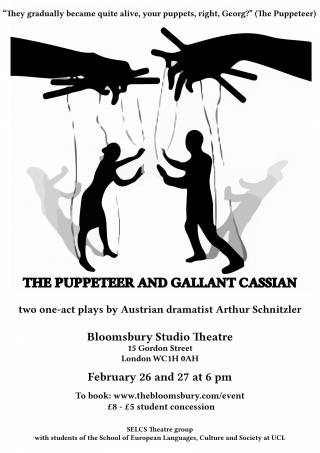

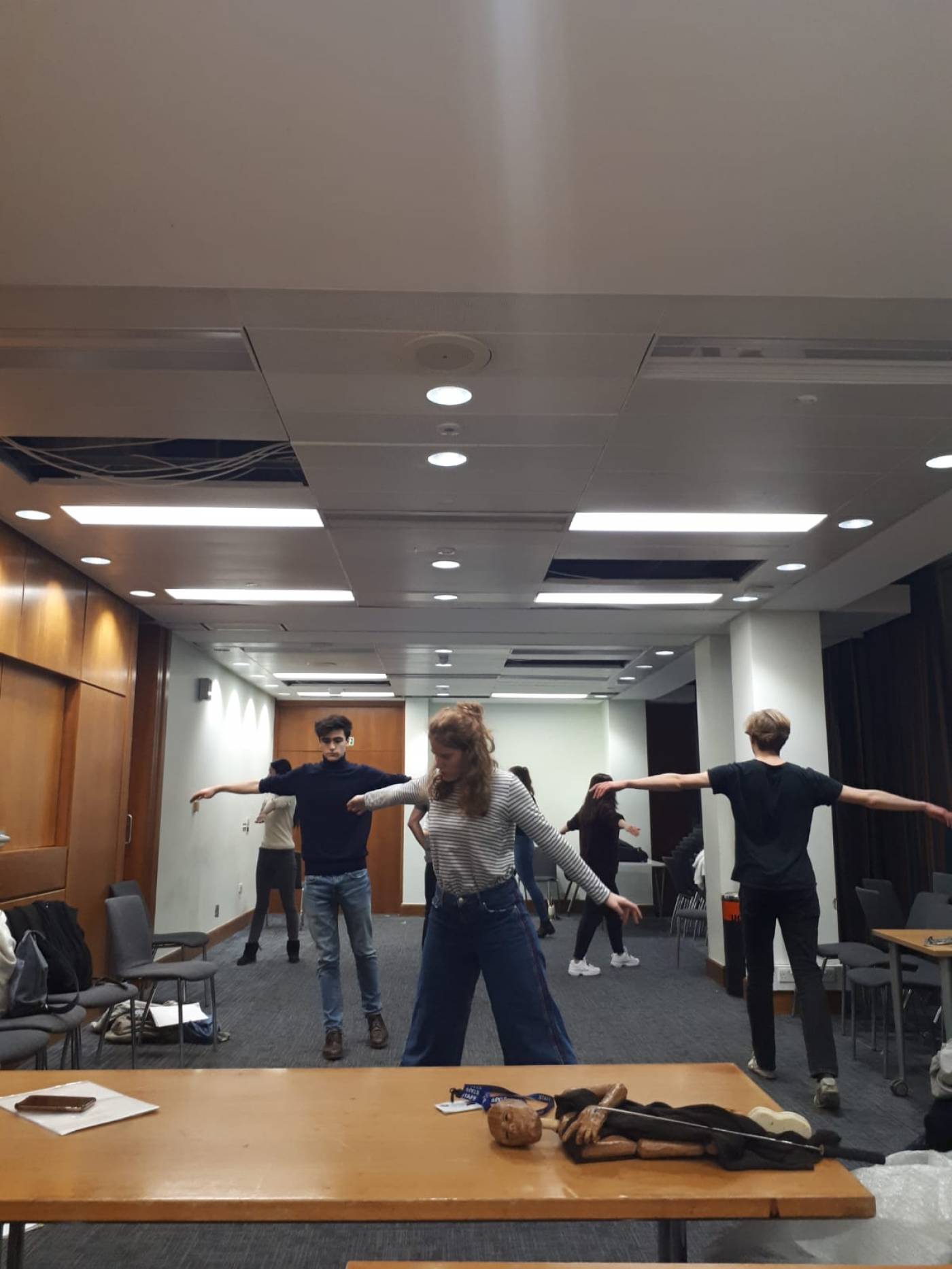
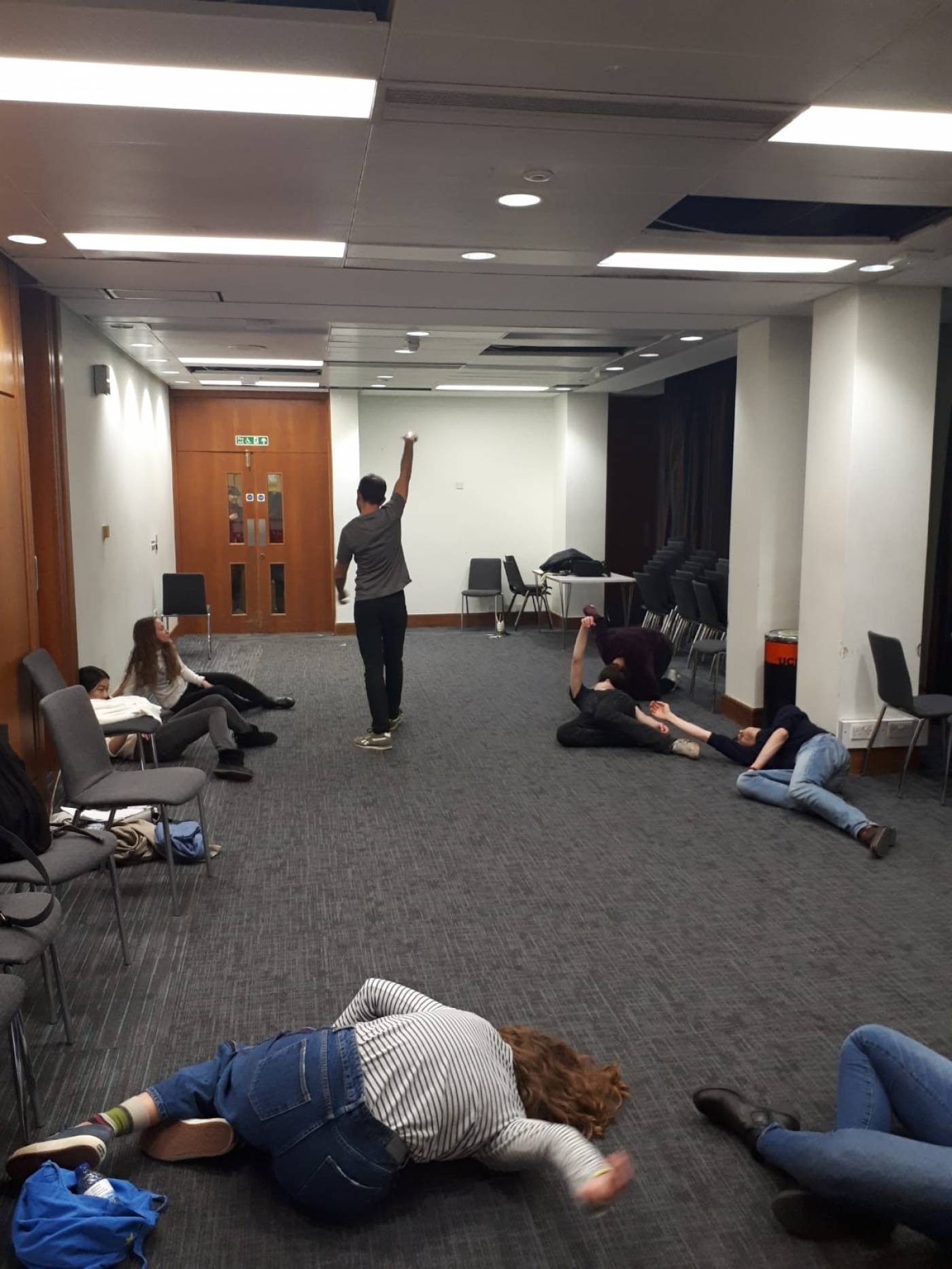
- Right You Are! (If You Think So) (2019)
A 1917 play by the Italian playwright Luigi Pirandello (staged at The Bloomsbury Studio on 6th and 7th March 2019). See the gallery below.
Synopsis
In Right You Are, seven respectable, middle-class types in a comfortable, bourgeois home argue over their perceptions of a mysterious woman, the Signor Ponza’s wife, seen at the window of a nearby building. No one has ever seen Signor Ponza’s wife and her mother, Signora Frola, together. Councillor Agazzi, Ponza’s employer, investigates Ponza’s private life. Ponza claims that his wife is really his second wife, the first having died in an earthquake that destroyed all verifying documents. Too, his wife only pretends to be Signora Frola’s daughter to humour Signora Frola, who, he claims, is insane. Thoroughly bewildered, Agazzi demands to meet Ponza’s wife, who arrives, heavily veiled, proclaiming herself as both the daughter of Signora Frola and the second wife of Ponza. The “truth” of the matter remains a mystery. This work, like almost all of Pirandello’s plays, contrasts art and life, demonstrating that truth is subjective and relative. Presented by the students in a new modern, English version.
Contributions
- Marco Gambino, an International /Italian actor, helped us stage a modern version of Pirandello.
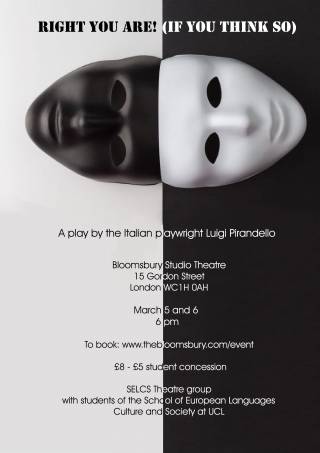


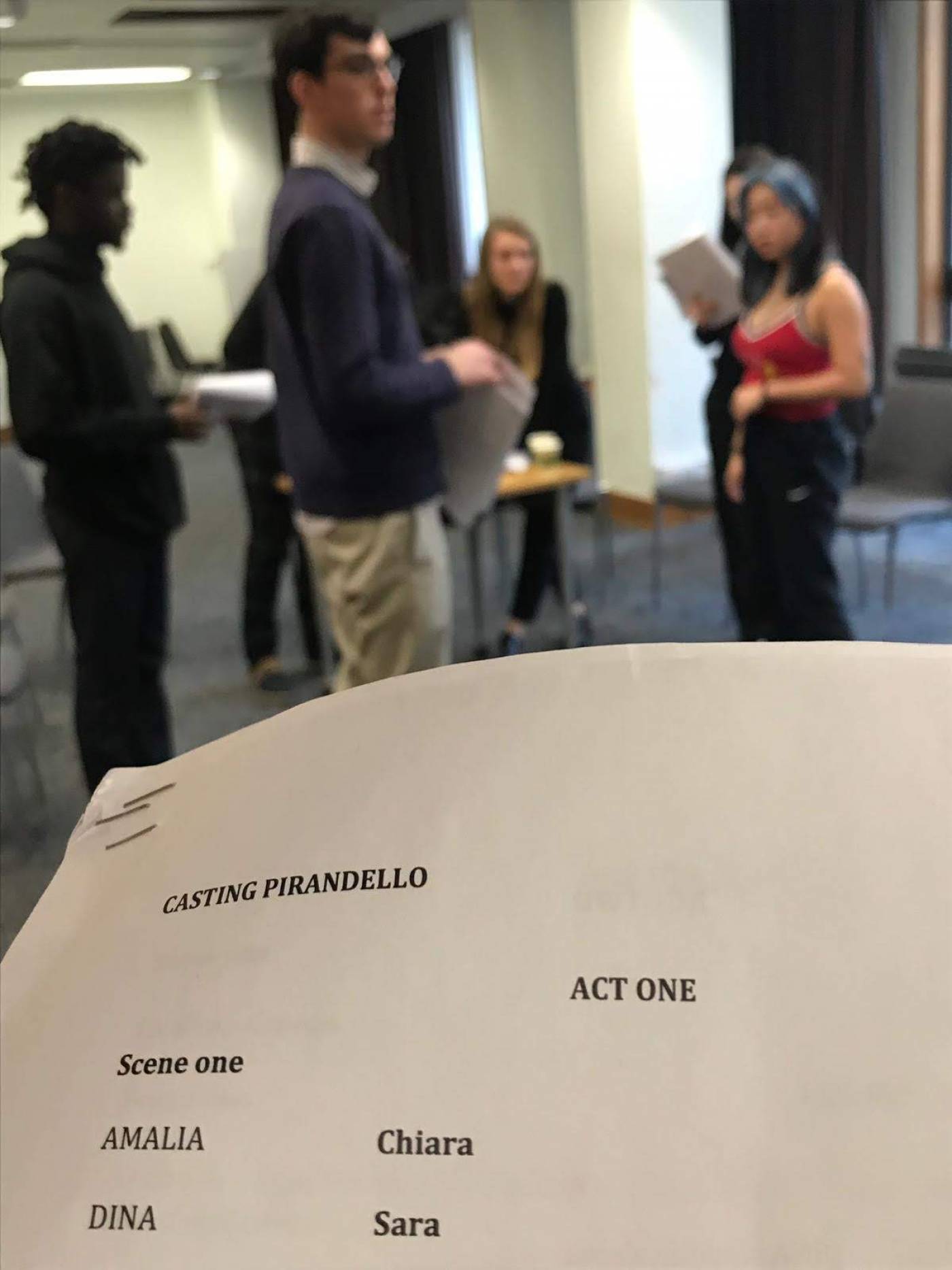

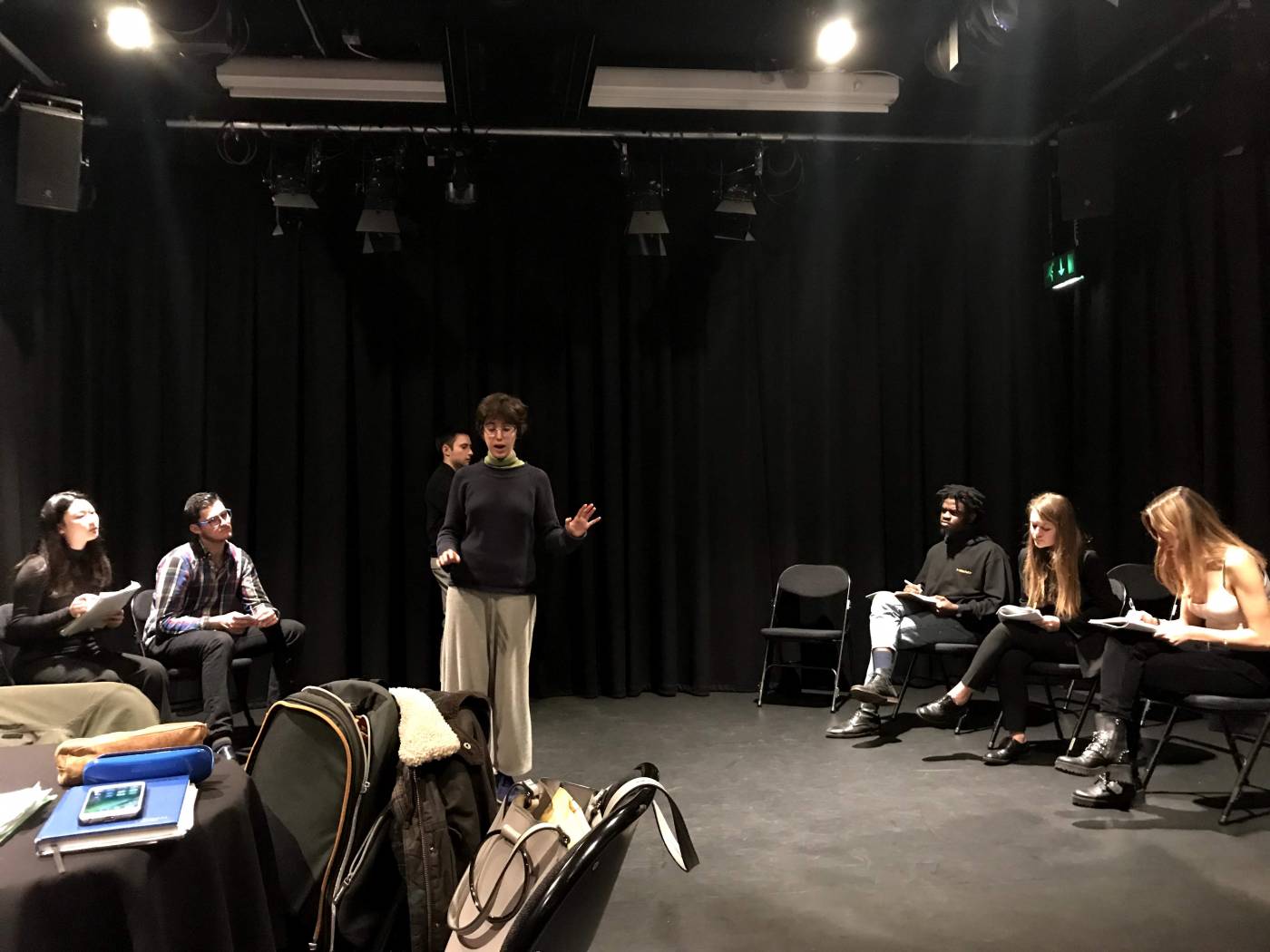
- Rhinoceros (2019)
A 1959 play by the Romanian-French playwright Eugène Ionesco (staged at The Bloomsbury Studio on 26th and 27th March 2019). See the gallery below.
Synopsis
This is an absurdist play written by Eugene Ionesco in 1959. Over the course of three acts, the inhabitants of a small, provincial French town turn into rhinoceroses; ultimately the only human who does not succumb to this mass metamorphosis is the central character, Bérenger, a flustered everyman figure who is initially criticized in the play for his drinking, tardiness, and scruffy lifestyle and then, later, for his increasing paranoia and obsession with the rhinoceroses. The play explores the themes of conformity, culture, fascism, responsibility, logic, mass movements, philosophy and morality. The Students have been faithful to the plot, presented in English with a modern cut.
Contributions
- Eleanor Henderson, experienced British actress and acting coach, coached the Rhinoceros group during rehearsals.
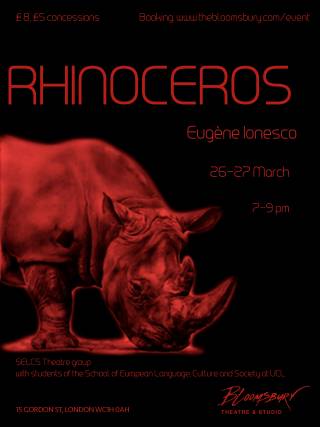


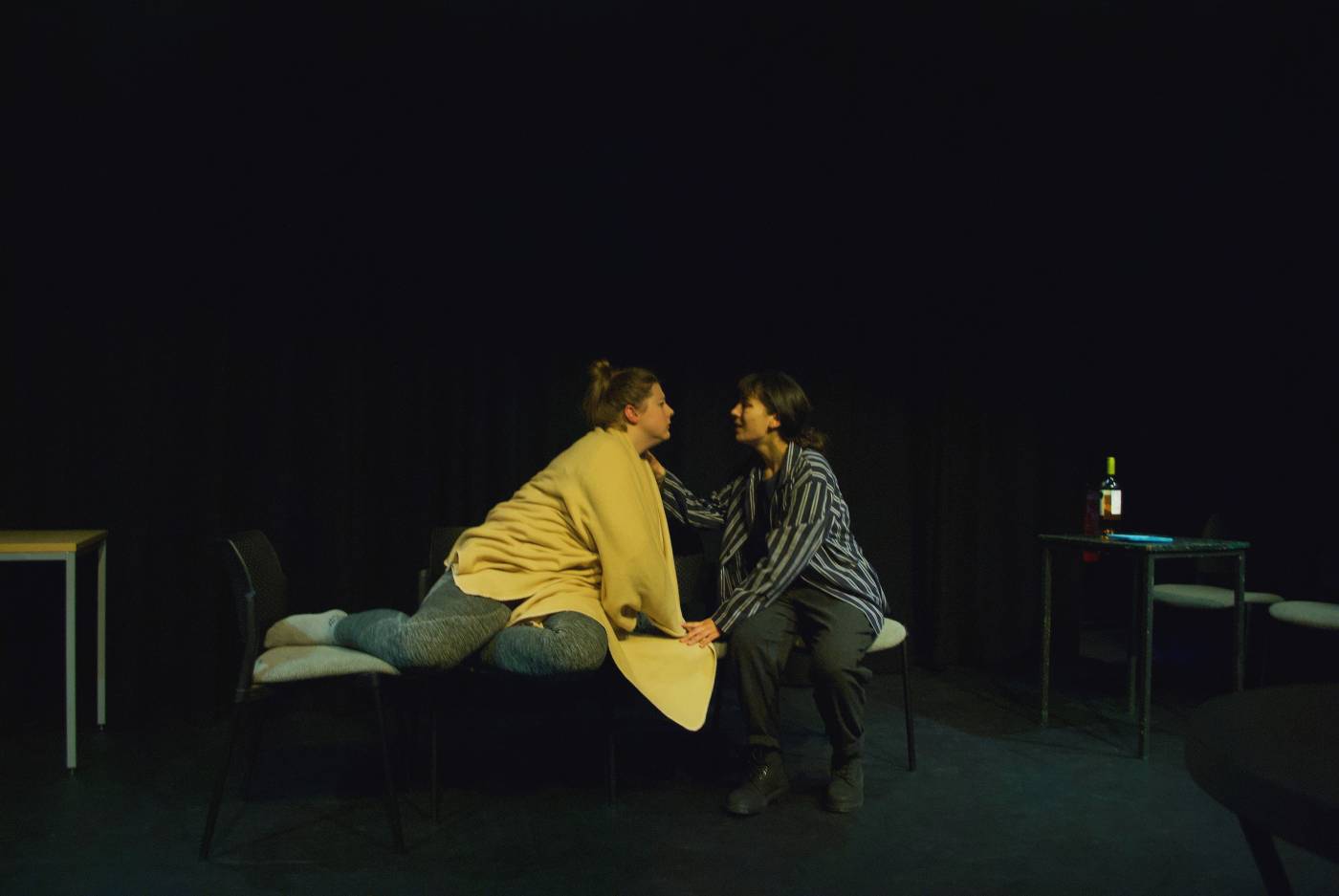



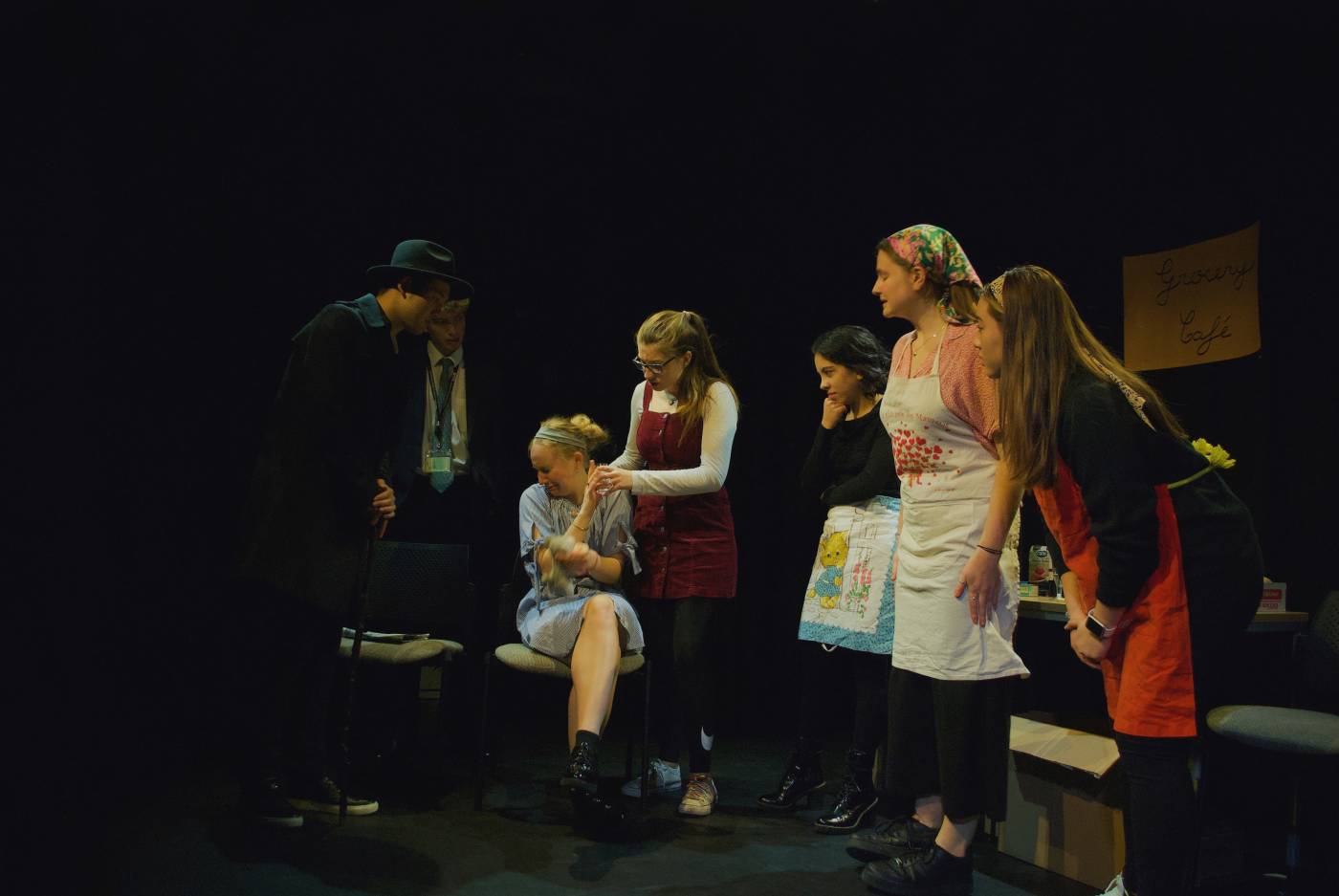
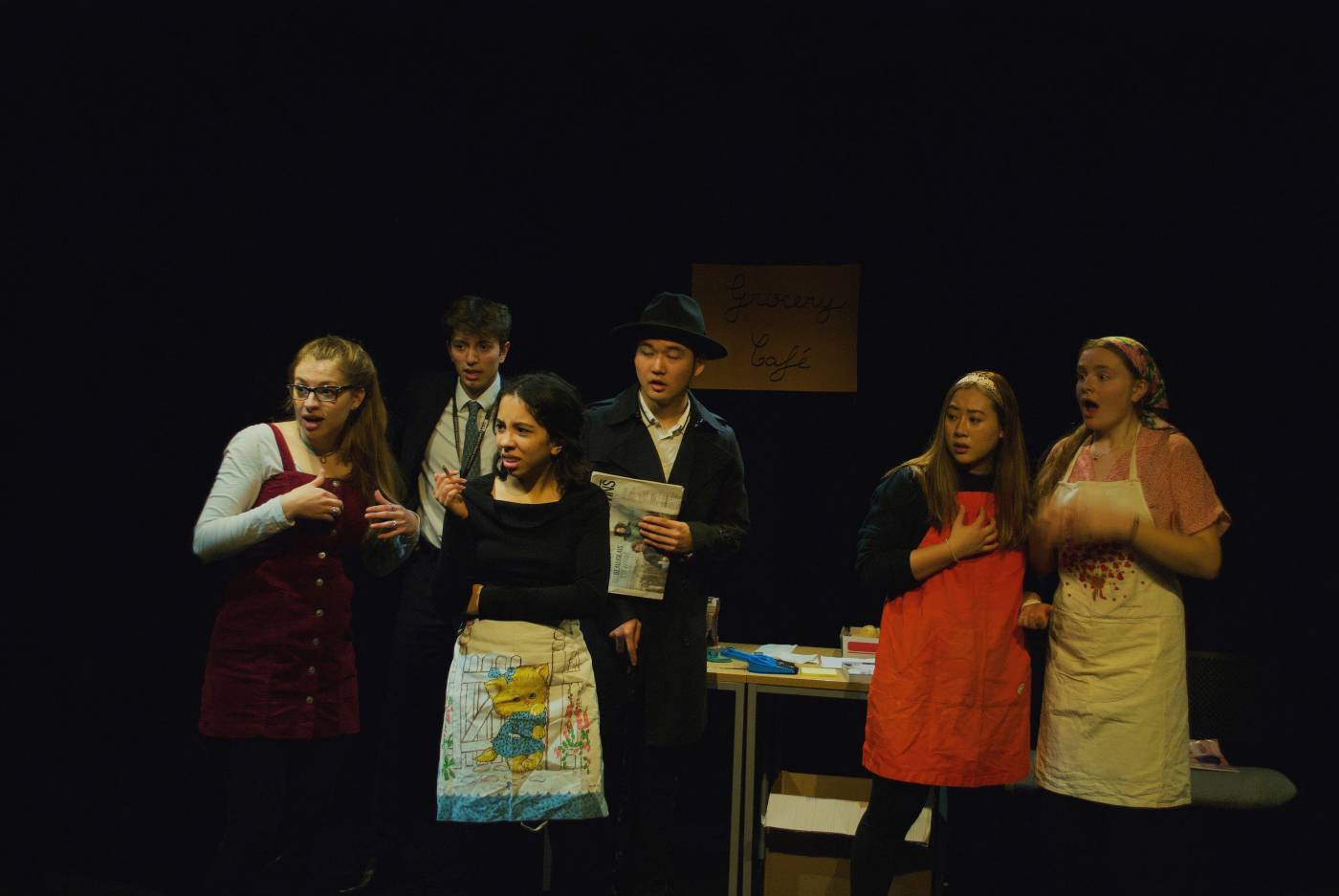
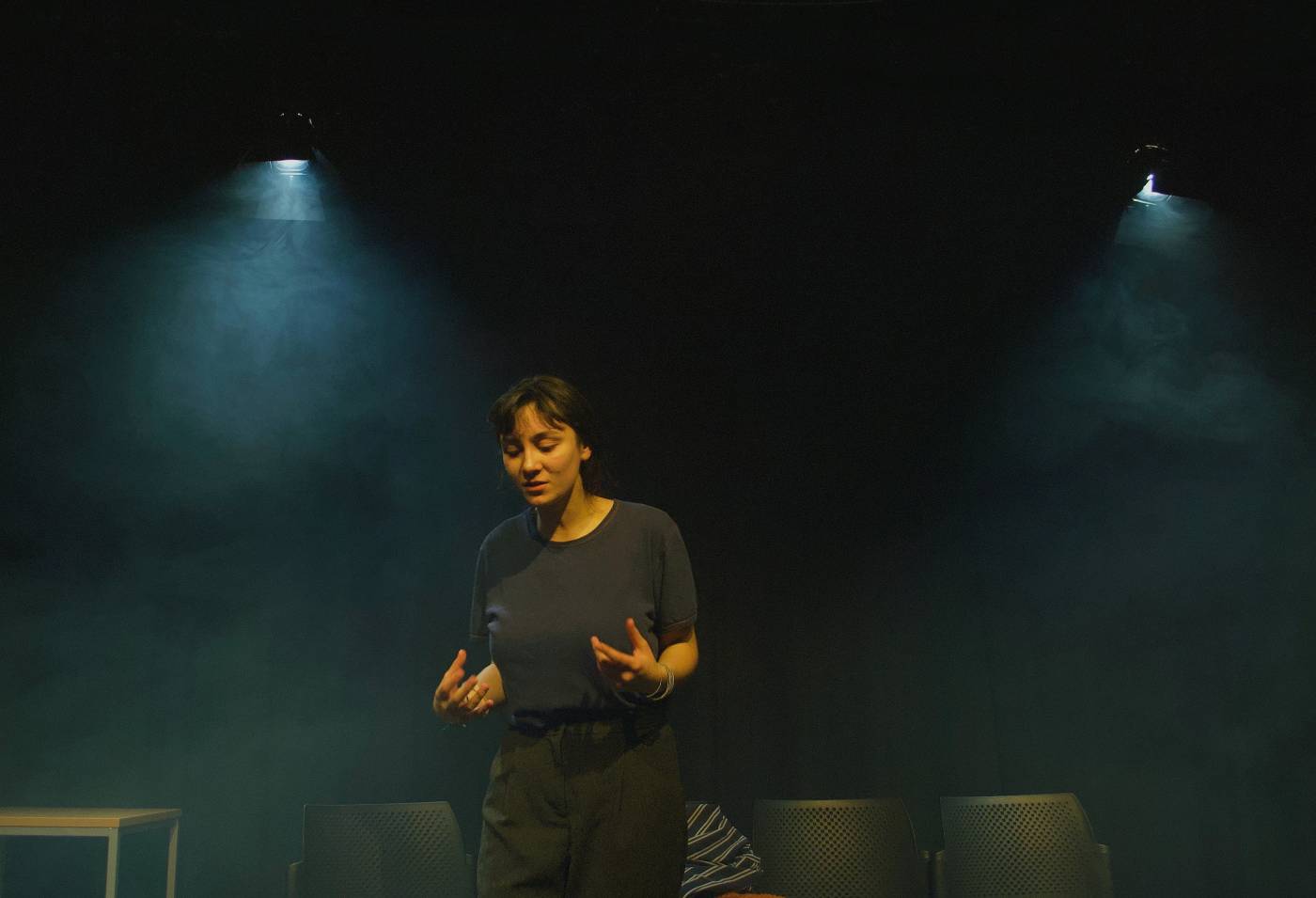
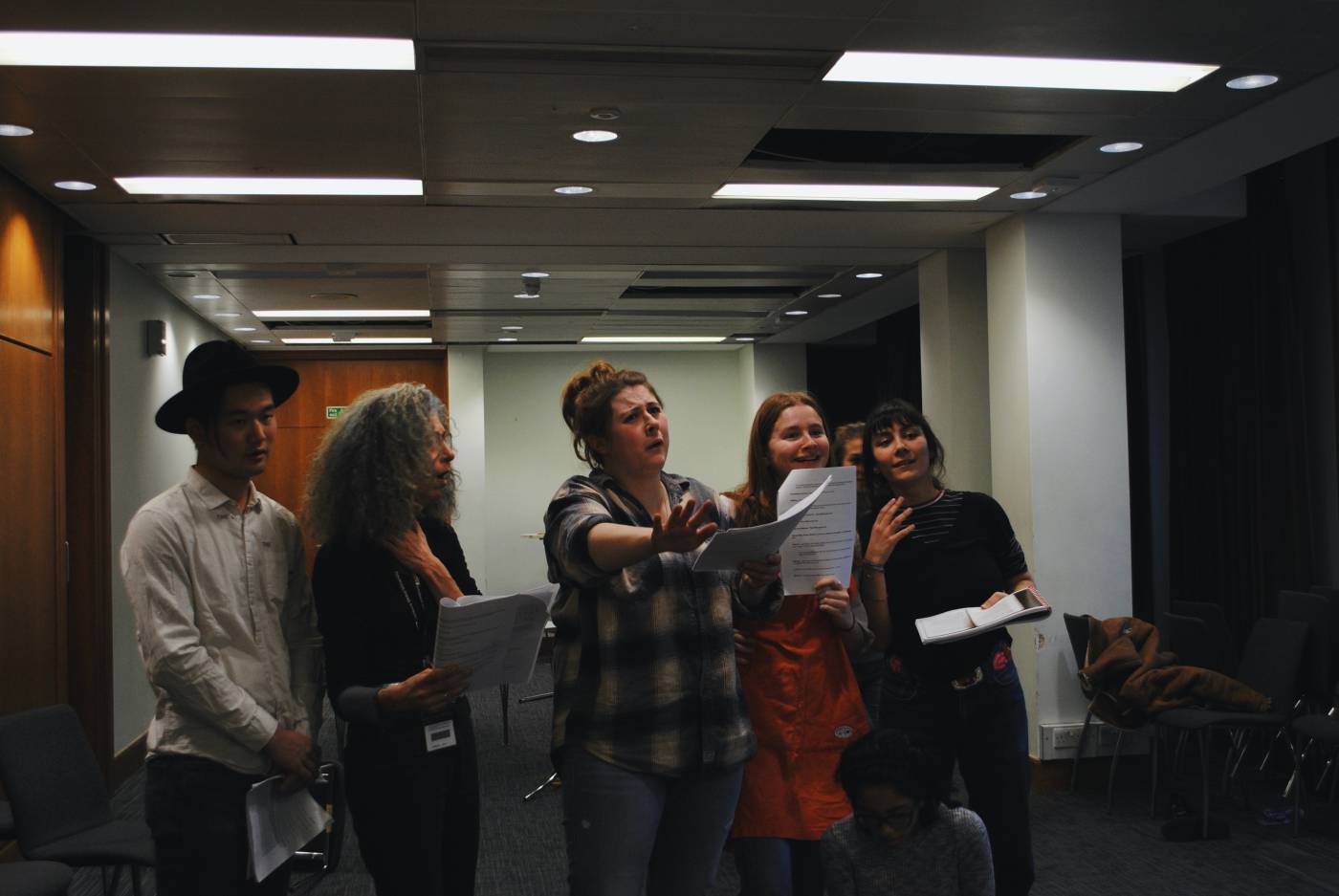
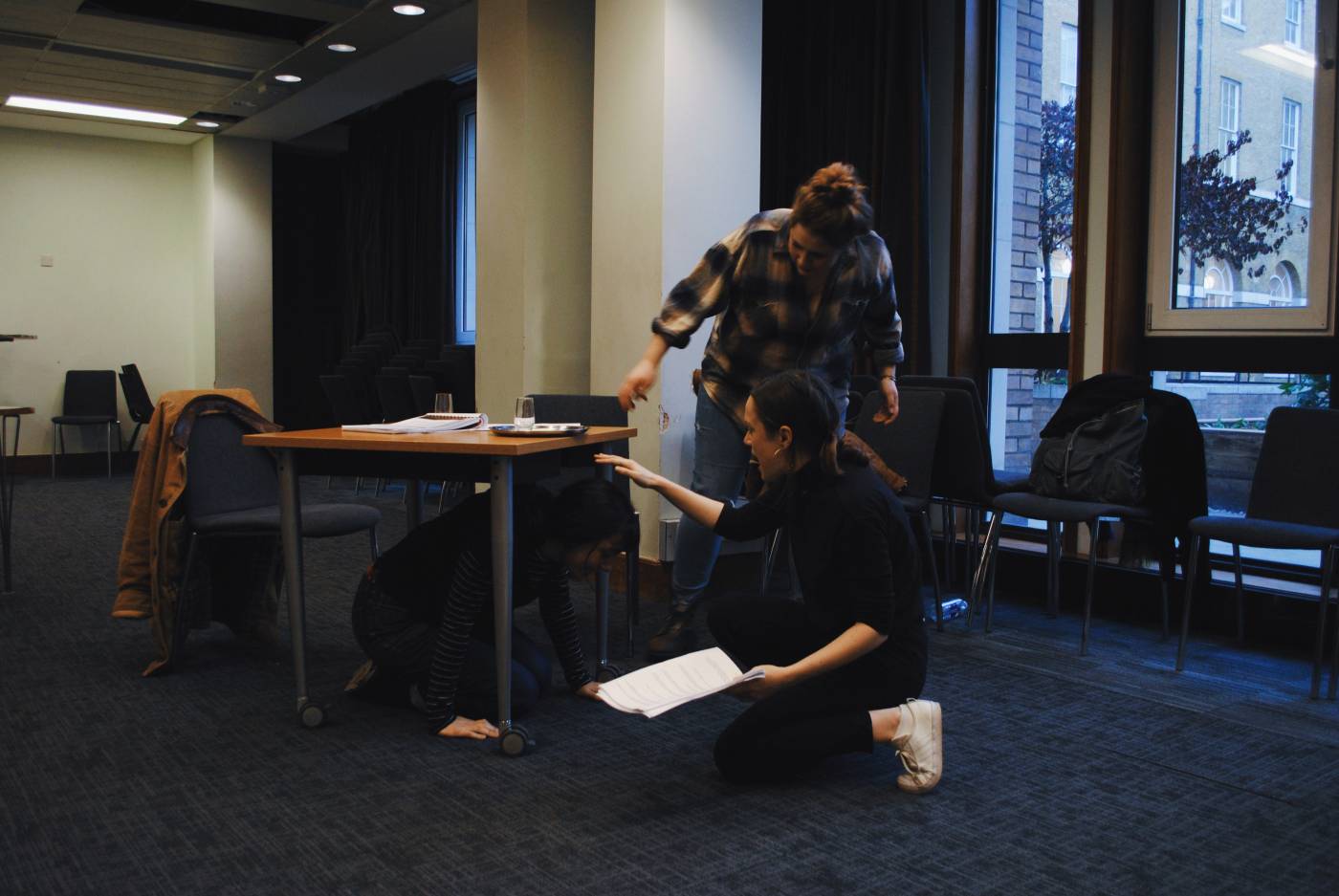
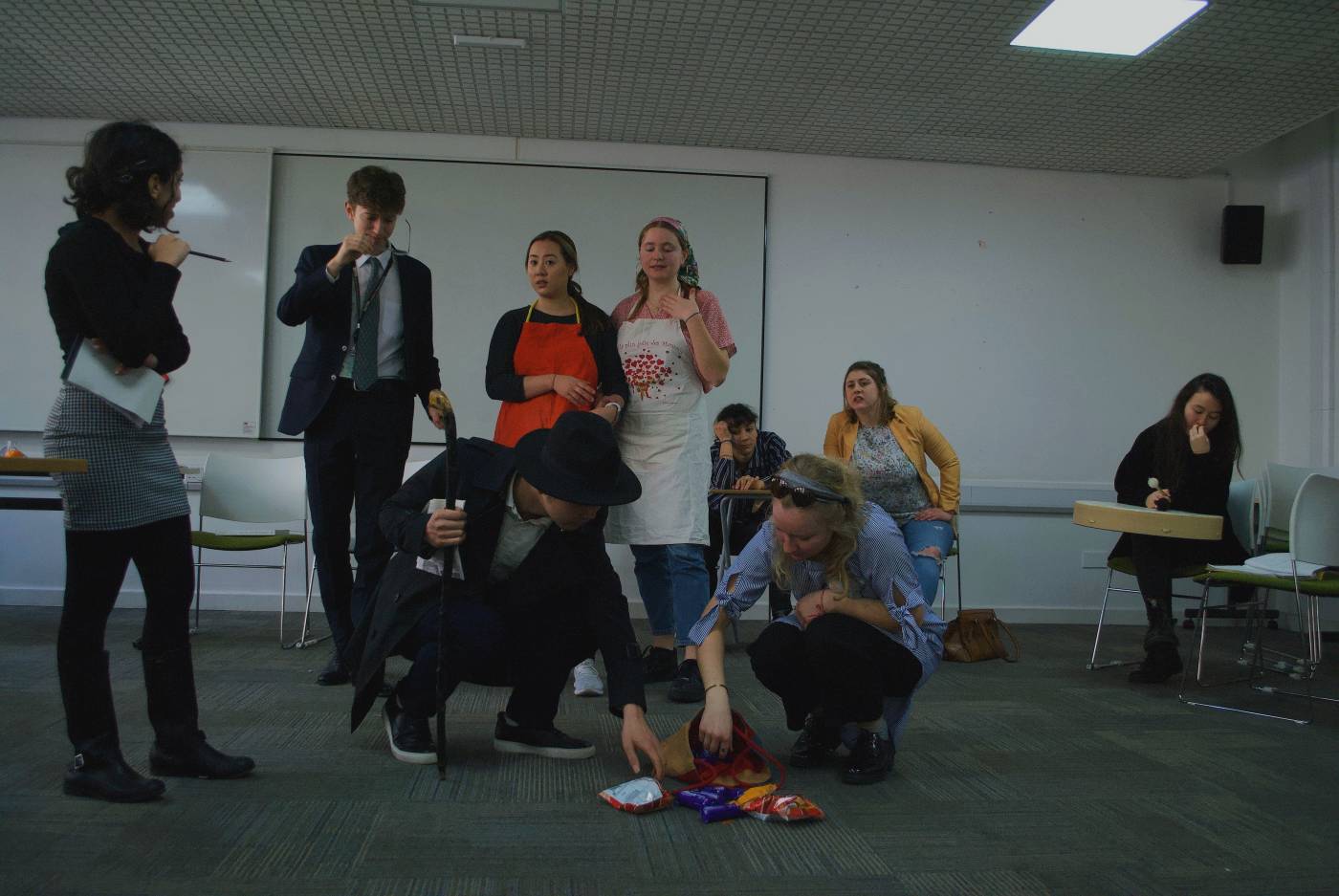
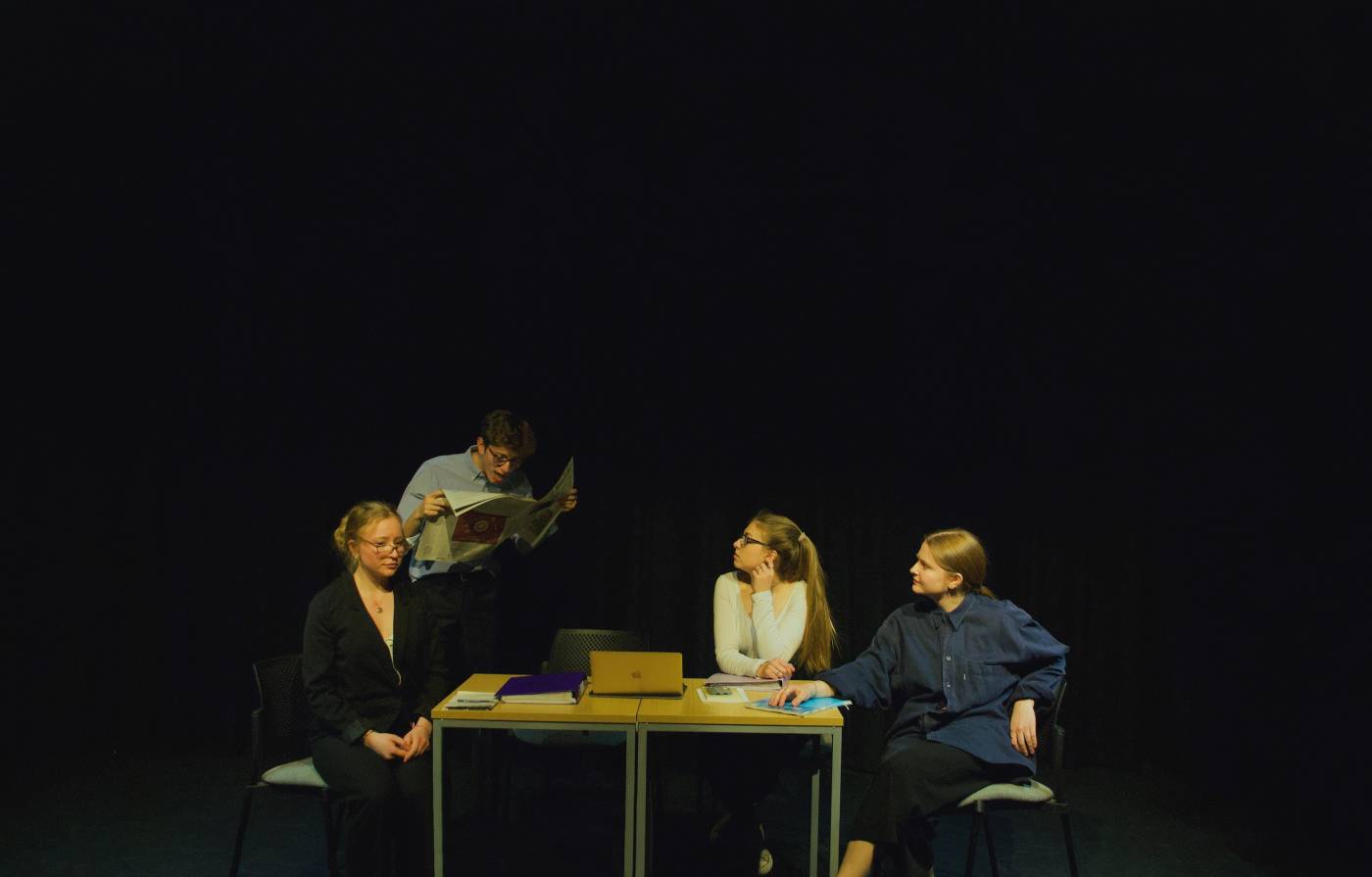
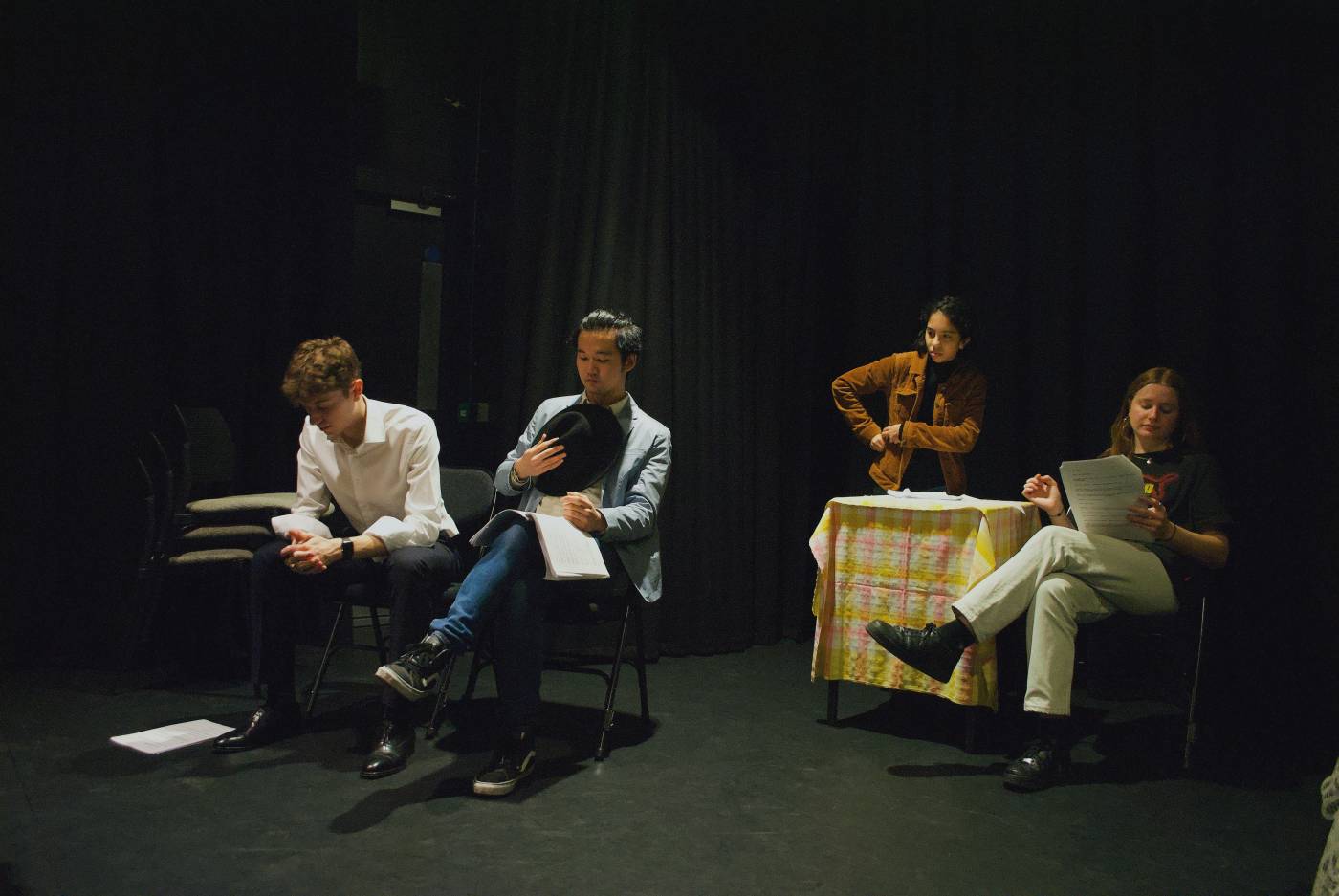

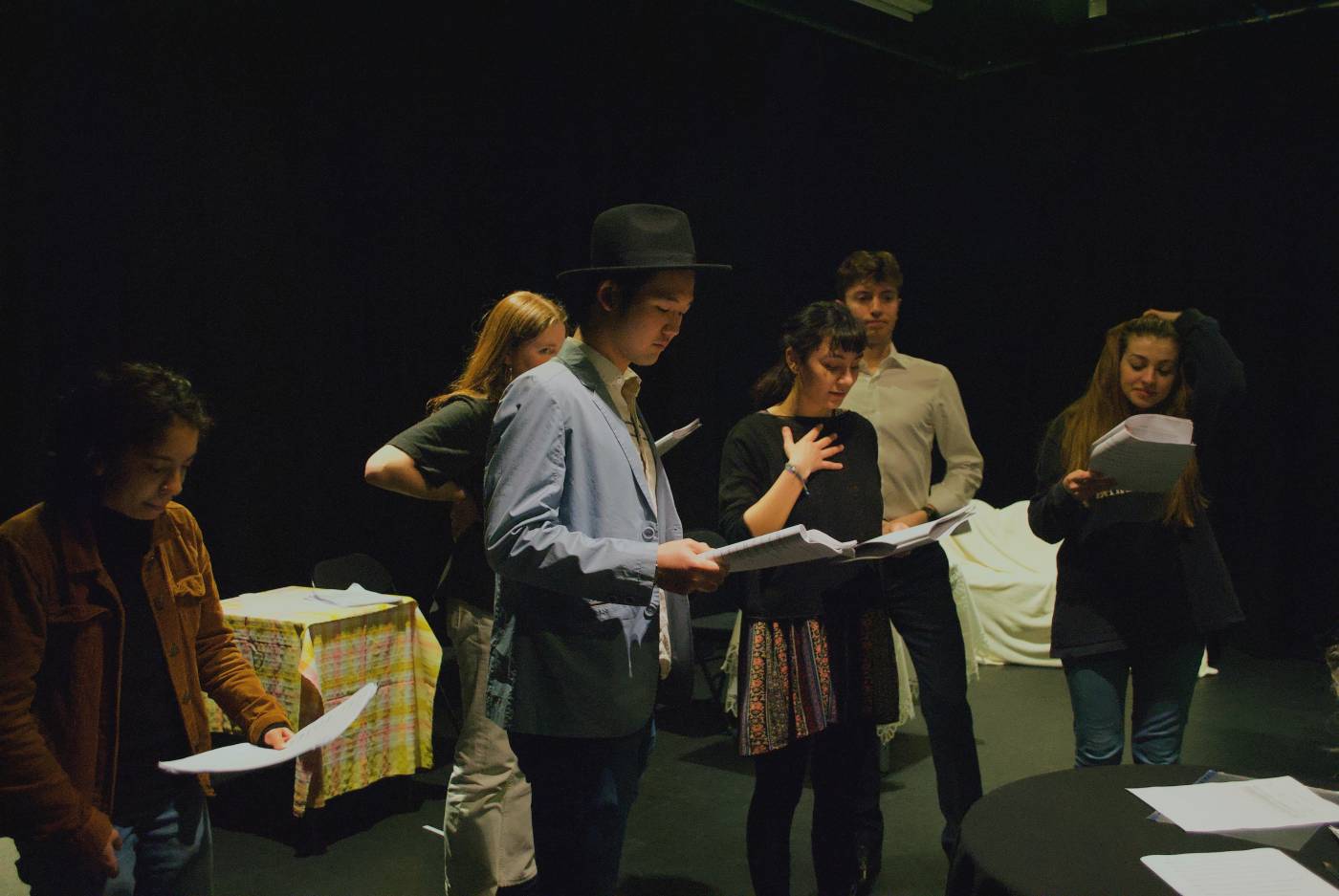

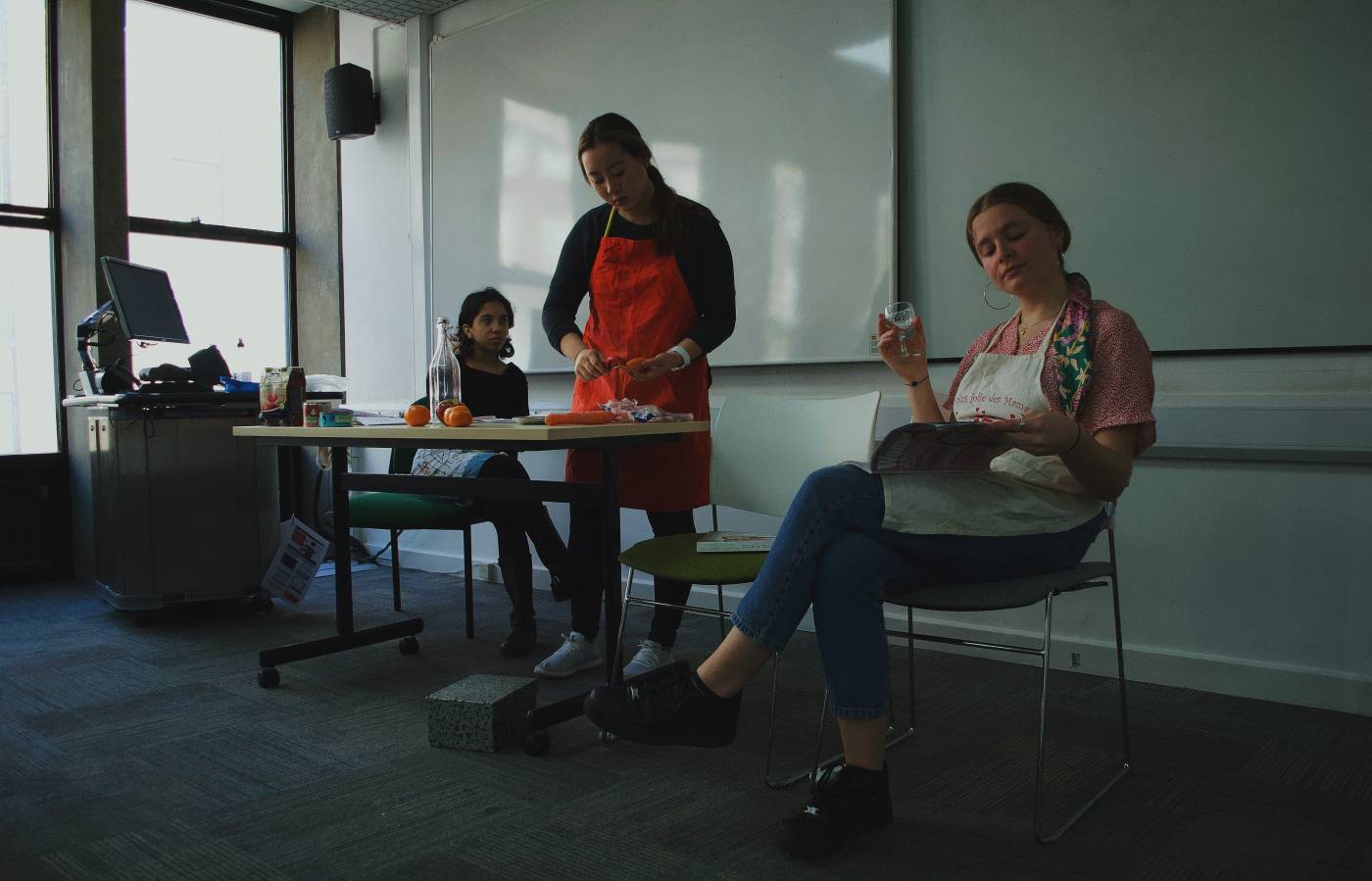
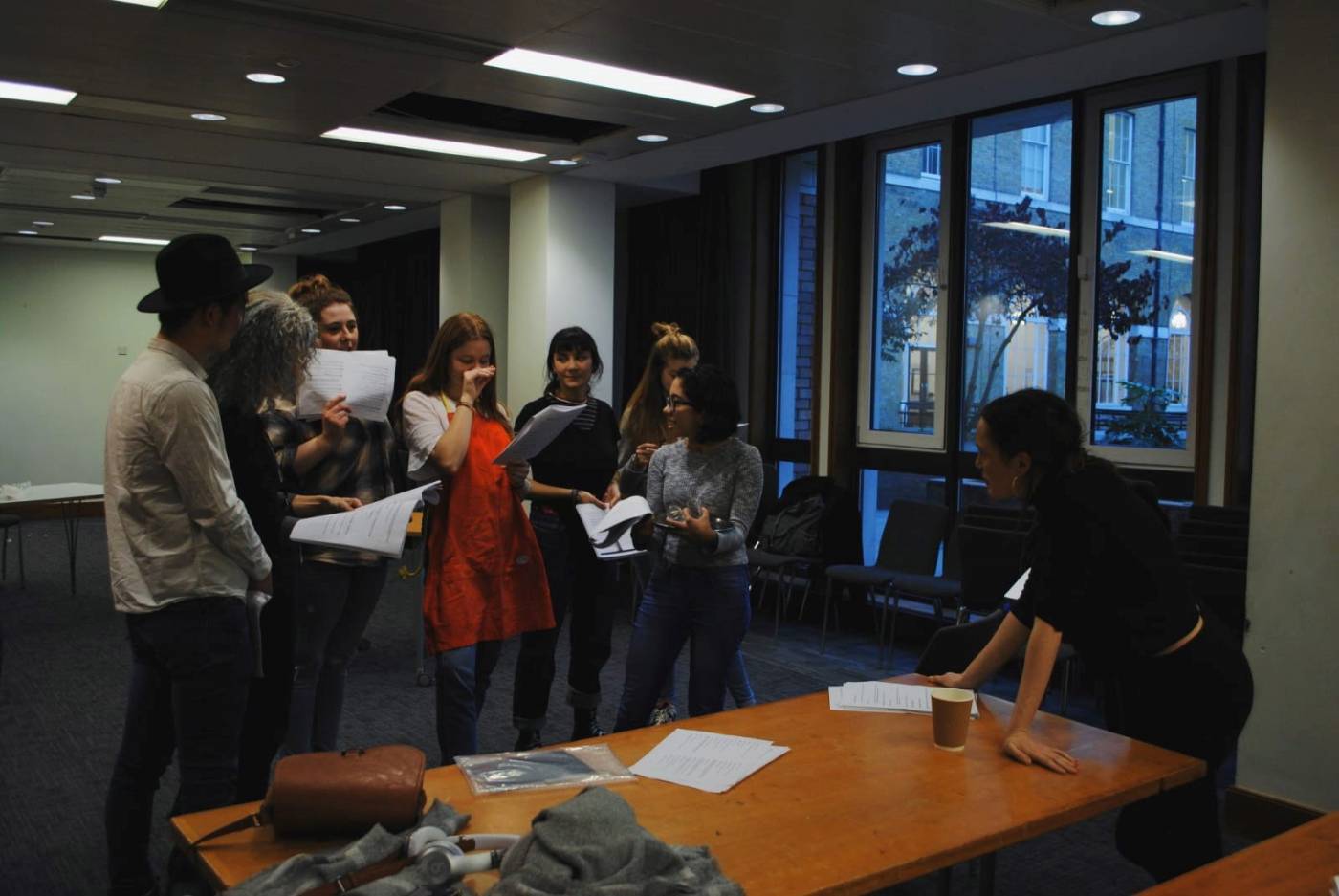
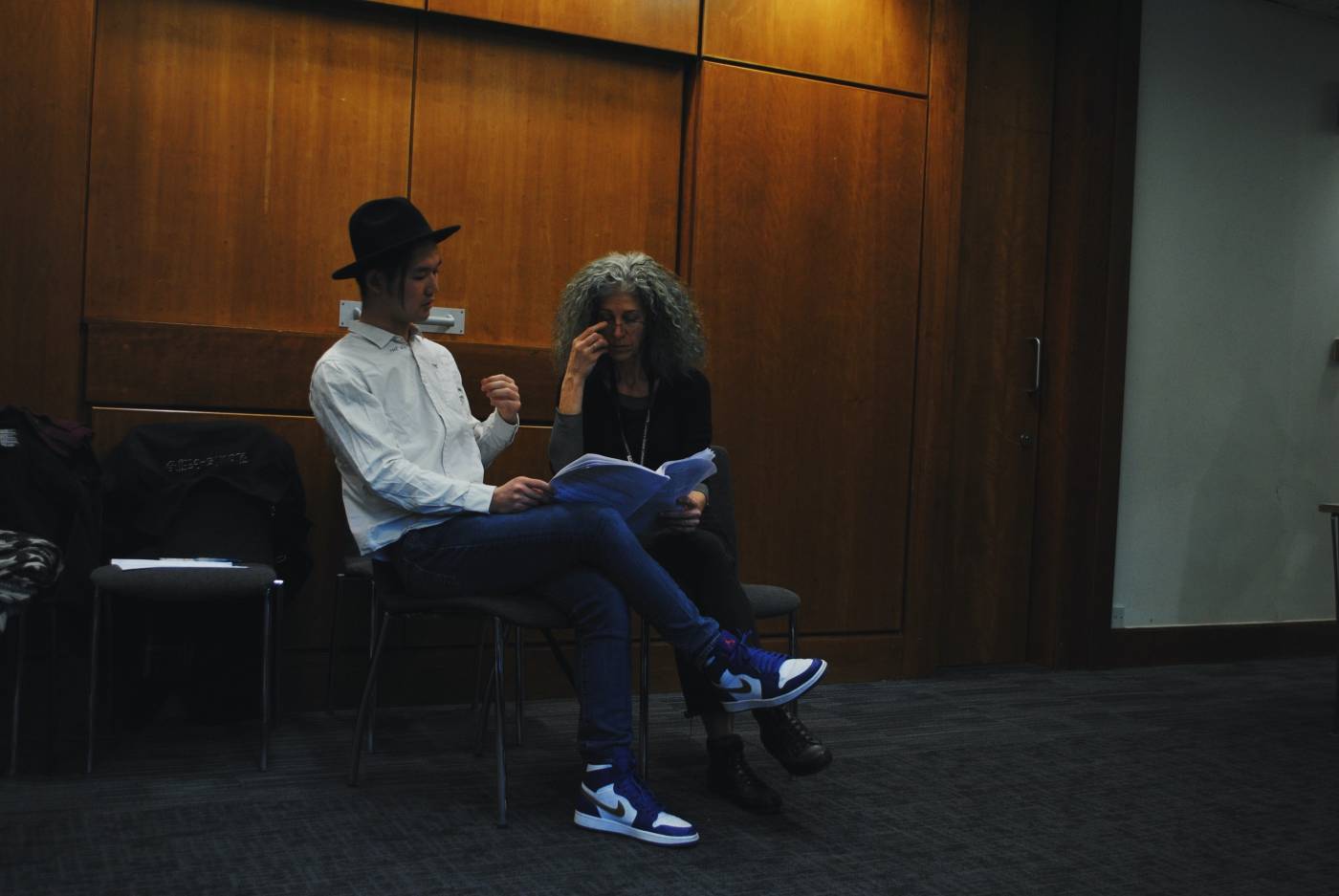
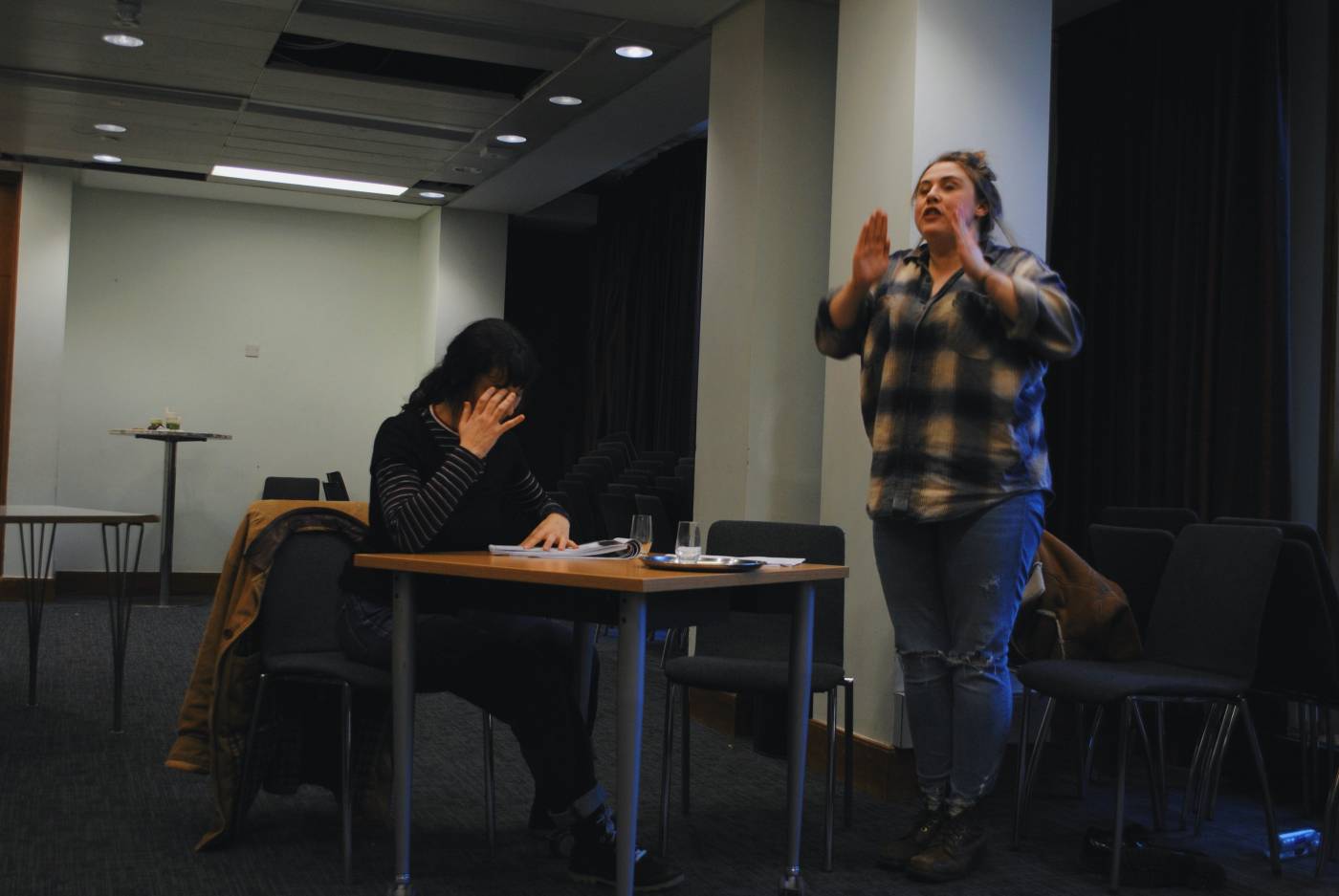
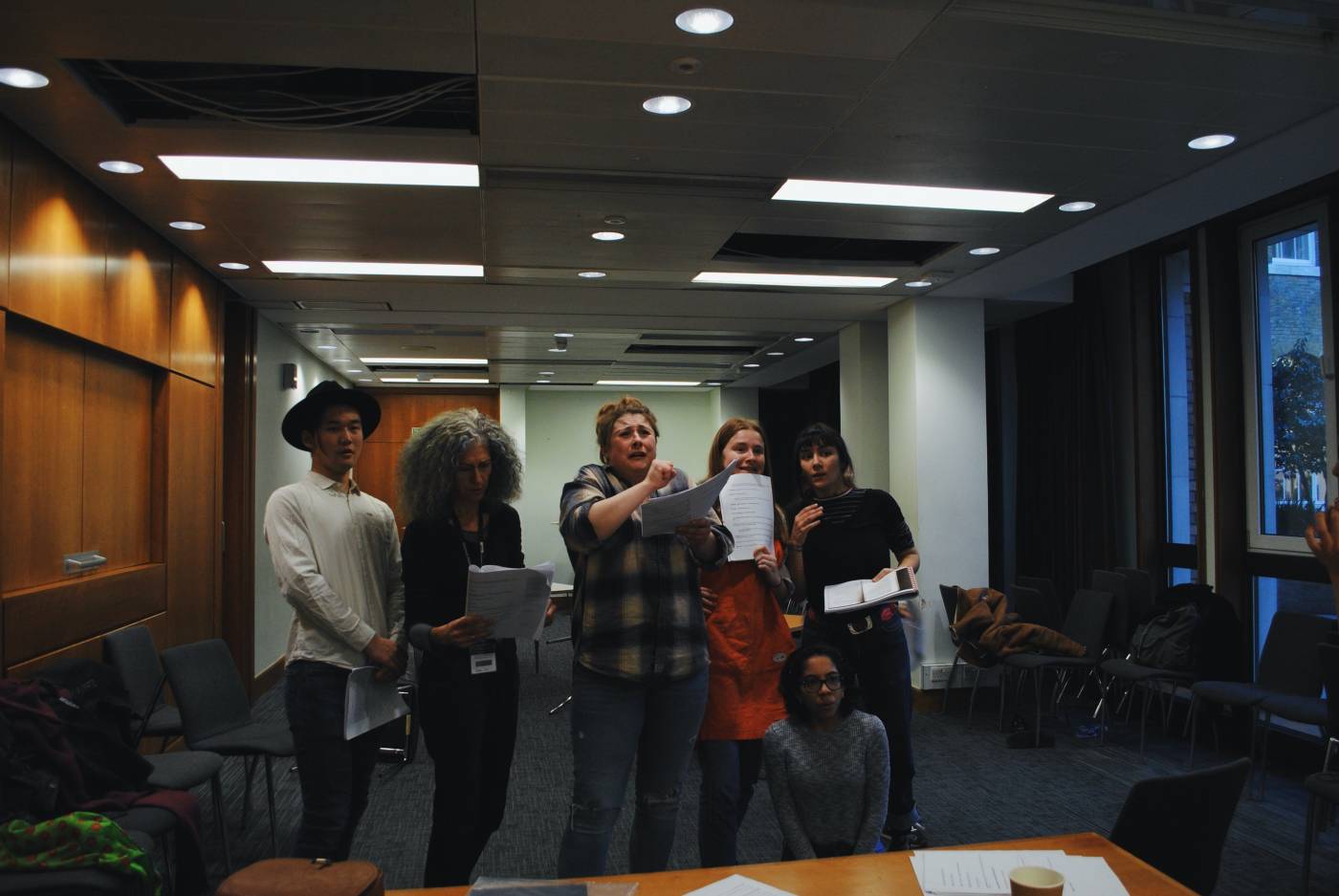
- Women Who Were Loved to Death (2020)
Synopsis
This UK premiere is based on a selection of 16 monologues found in ‘Ferite a morte’ (Wounded to Death) written by the author and TV presenter Serena Dandini, with Maura Misiti (2013) with and original monologue by Margot Antignac (SELCS UG). The stories draw from real events of domestic violence perpetrated all over the world. This multimedia performance presents an ironic yet gripping portrayal of domestic violence. A creative narration of real people’s stories that explores an issue still largely undervalued. Seventeen women from all over the world are brought back to life to tell of their relationship that led to their own death. A background of music and artistic projections accompanies a dance of love and death and amplifies the women’s voices emerging from the monologues. This is a passionate celebration of women who were loved to death but reclaim their soul on stage.
The Performance is based on an idea by Marta Niccolai and Alessandra De Martino
Directed by Marta Niccolai and Margot Antignac
Choreography: Hana Pospisilova (SELCS UG)
Soundtrack: La Valse de Augustine by Vladimir Cosma
Dummies: Bella Barlow (SELCS UG) and Bori Papp (SELCS UG)
Promotion: Javier Huerta Rodriguez (SELCS UG)
Assistant: Xu Xiayan (SELCS/CMII graduate)Cast (alphabetical order):
Antignac Margot (SELCS UG)
Bivona Lucrezia (SELCS/CMII graduate)
Burnham Jimmy (History UG)
Chennery Philip (English dept. UG)
Formaggia Enrico (SELCS UG)
Hou Yilin (SELCS/CMII graduate)
Huerta Rodriguez Javier (SELCS UG)
Pala Michele (SELCS admin)
Wang Elva Gefan (SELCS/CMII graduate)
Wang Boya (SELCS/CMII graduate)External collaborations:
- Alessandra De Martino (Warwick university) translated the monologues from Italian into English.
- Eugenio Cappuccio (graphic designer) did the poster.
- Diana Onuma, former lawyer and author of D.A.R.E. (Domestic Abuse Rescue Essentials) was the guest speaker at the end of the performance.
- The British-Italian Society sponsored the performance with a donation.
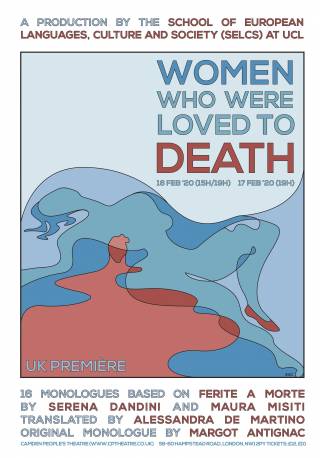
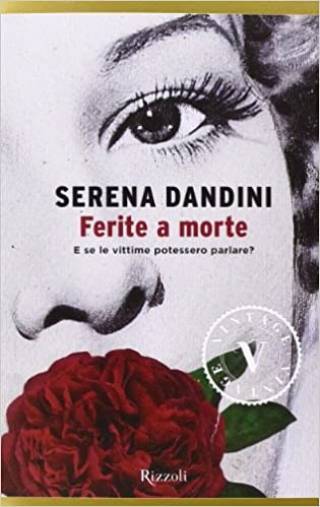
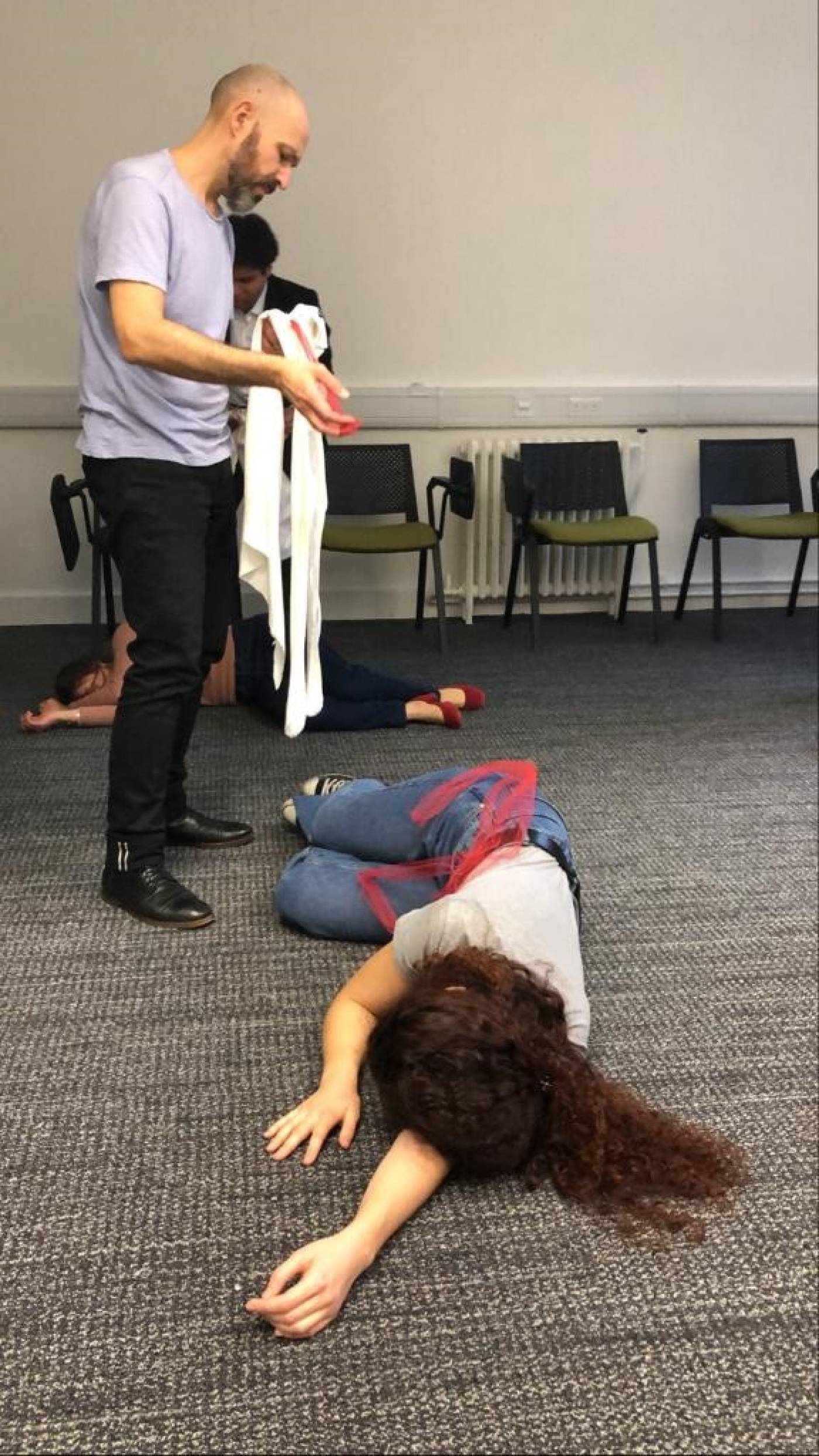

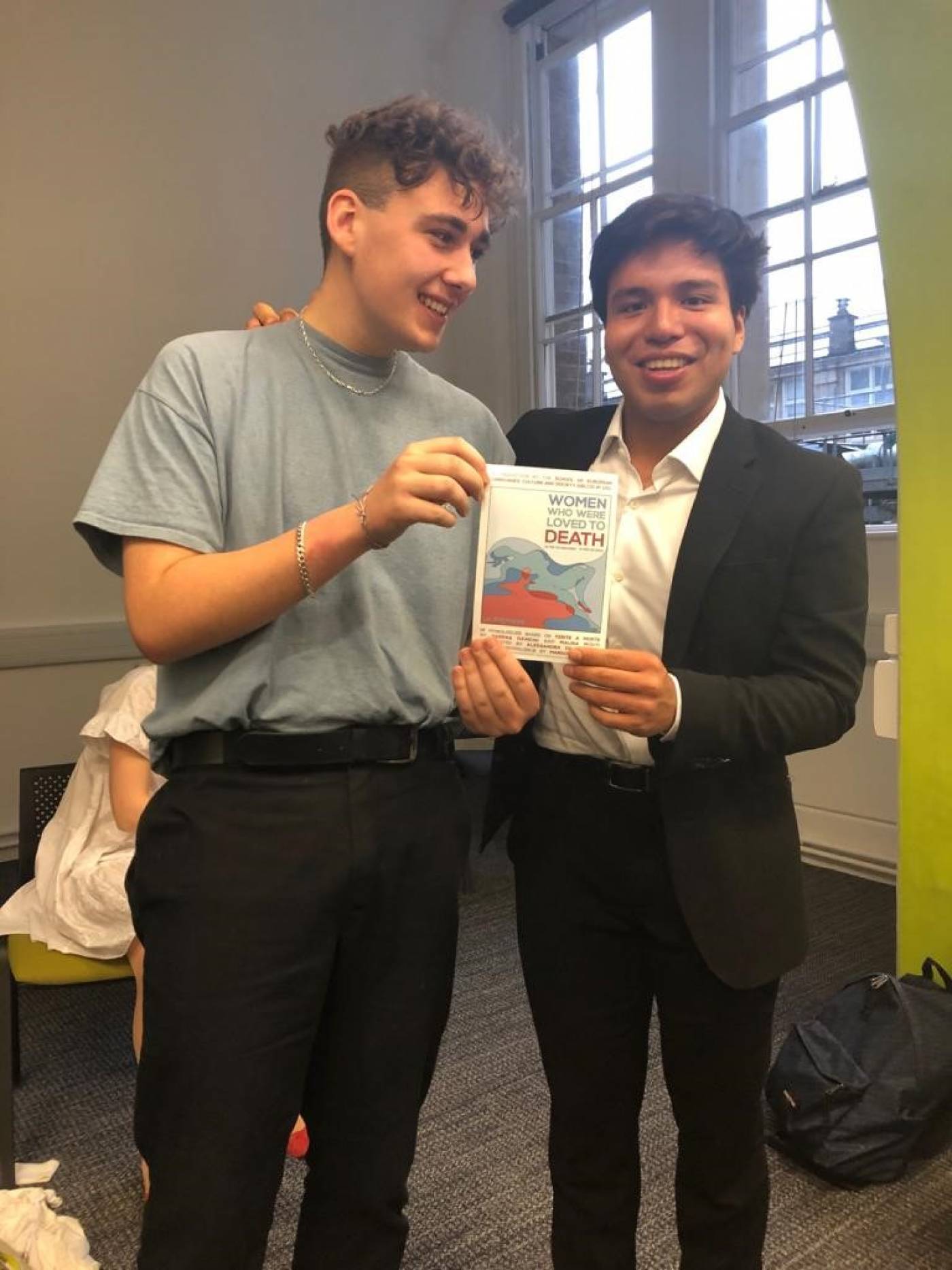
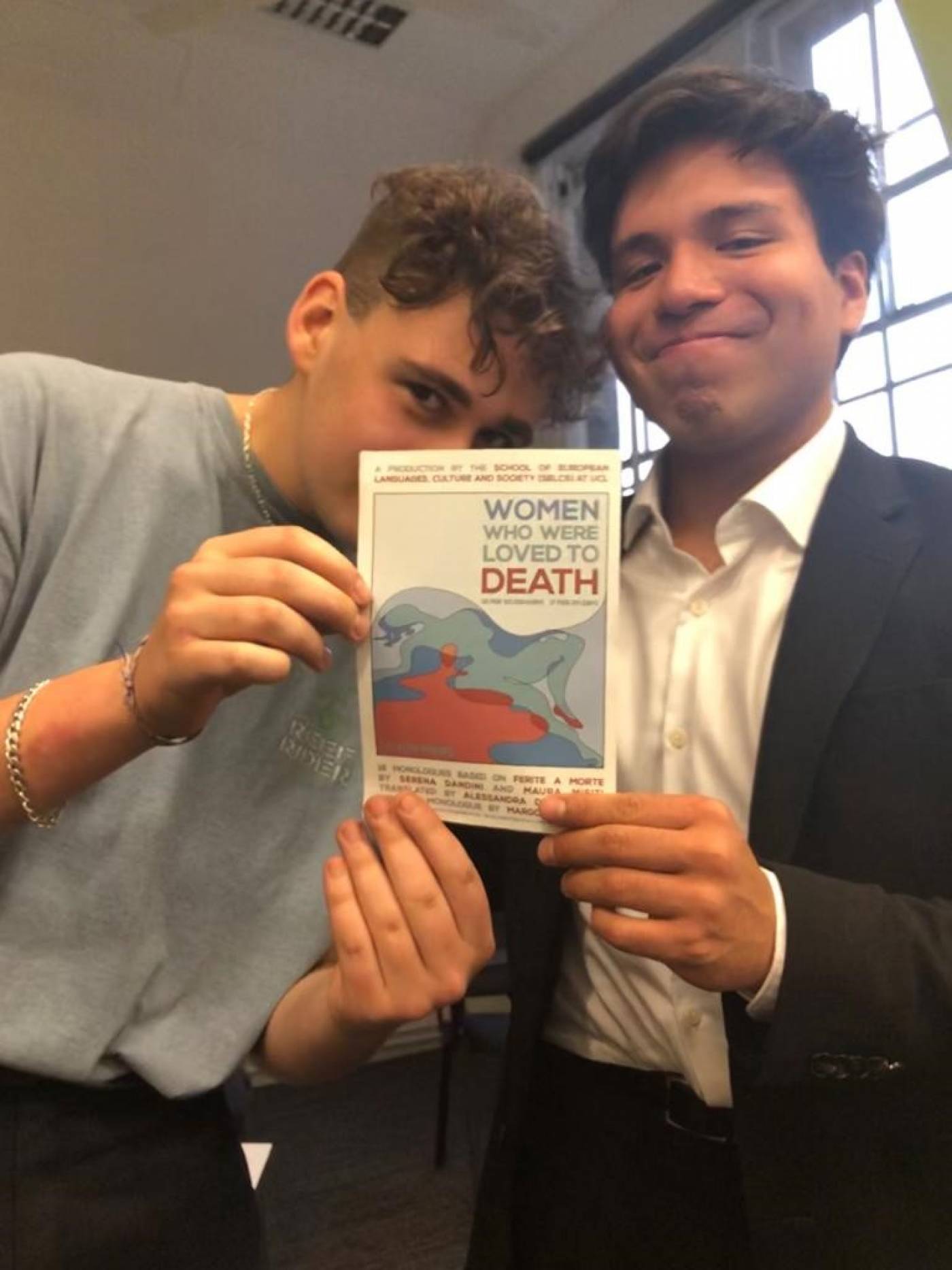


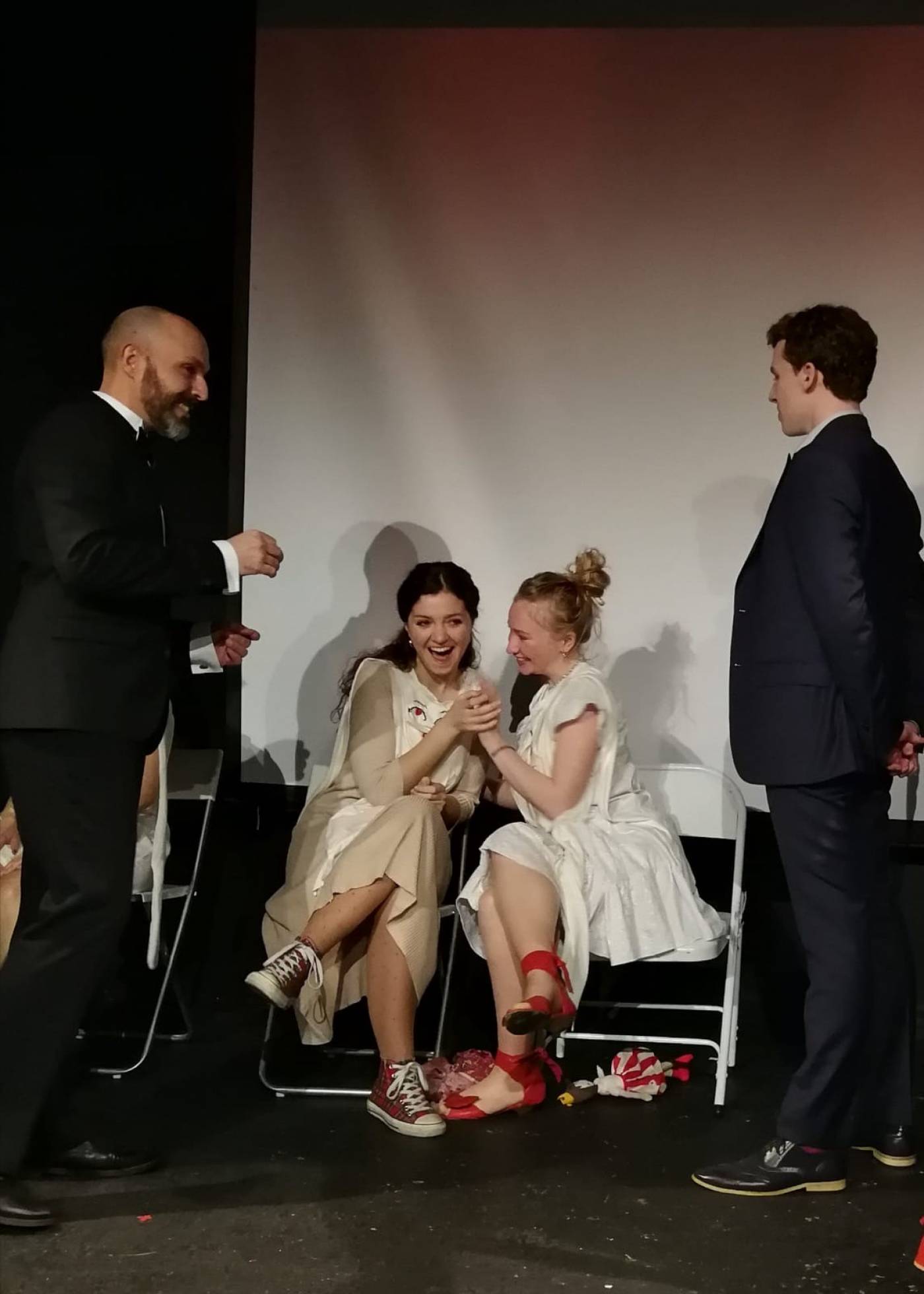

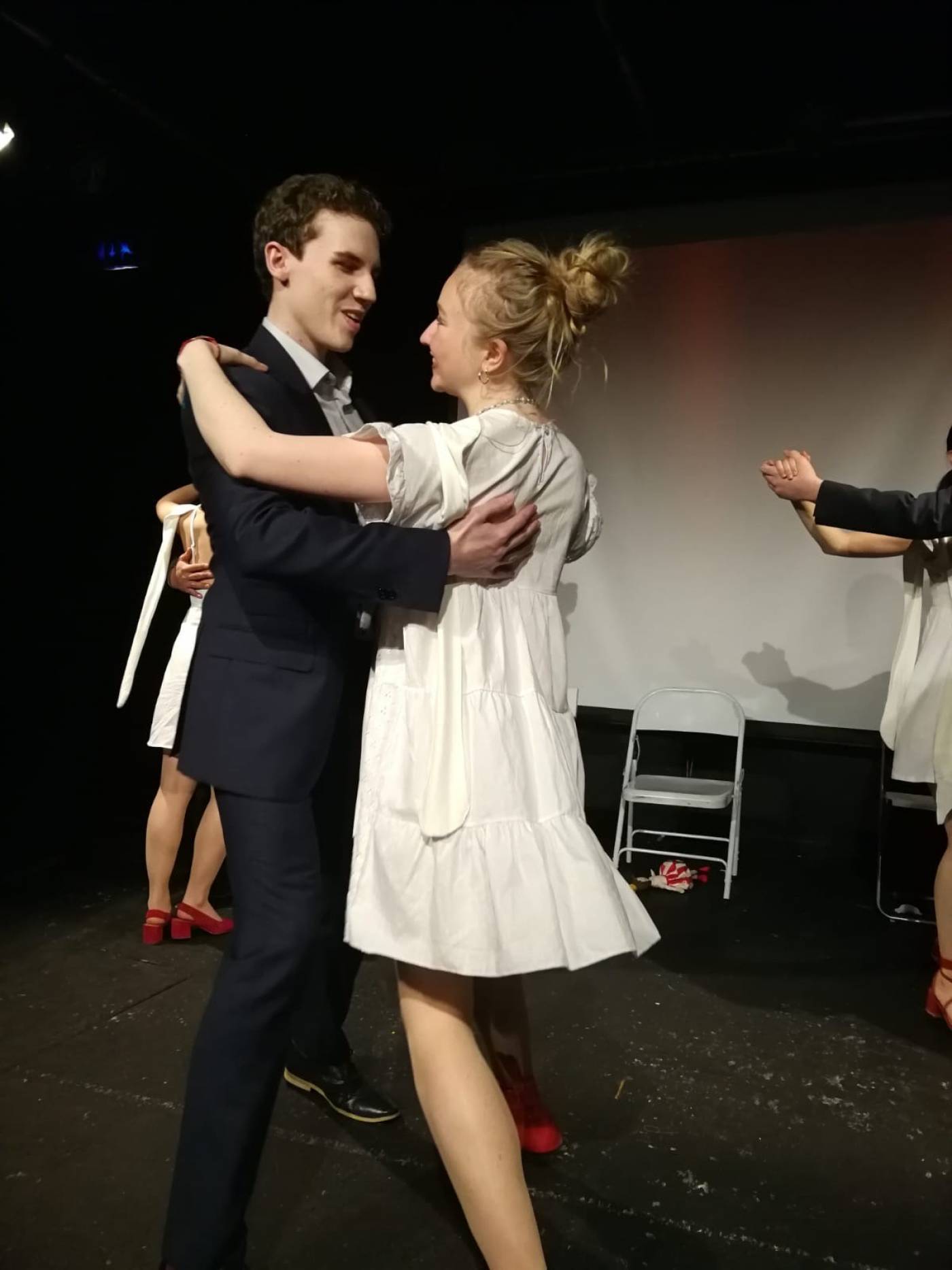
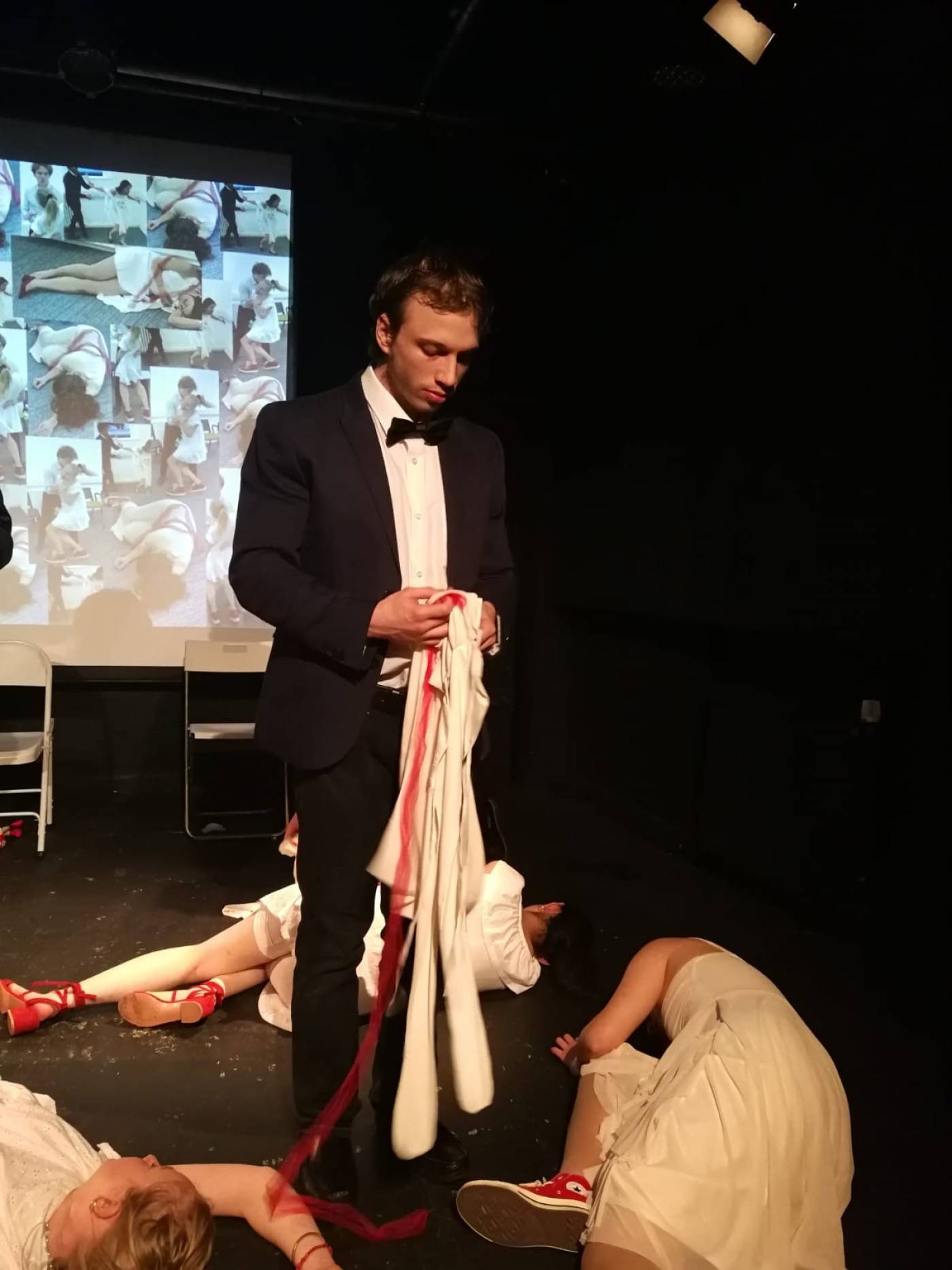
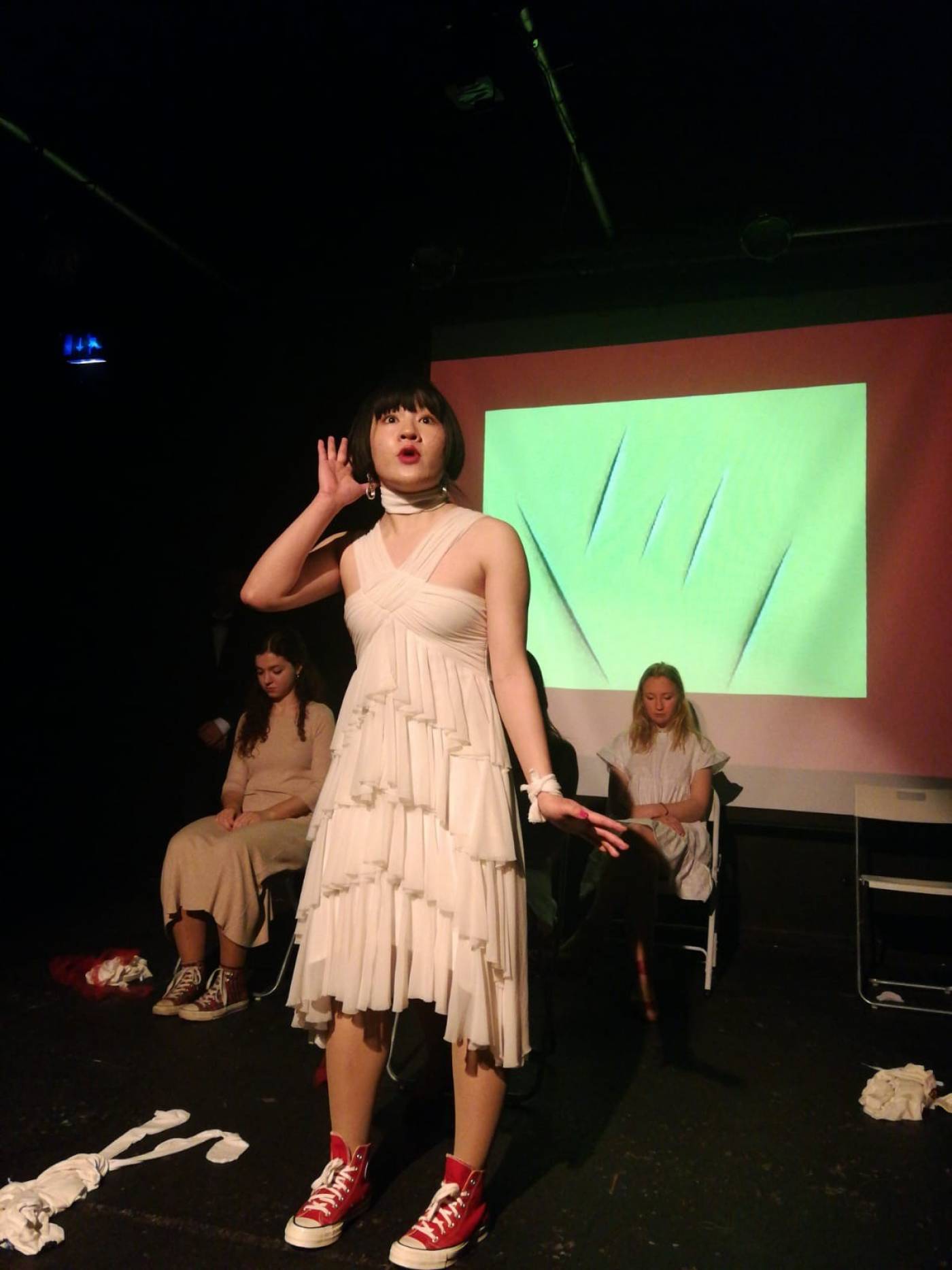


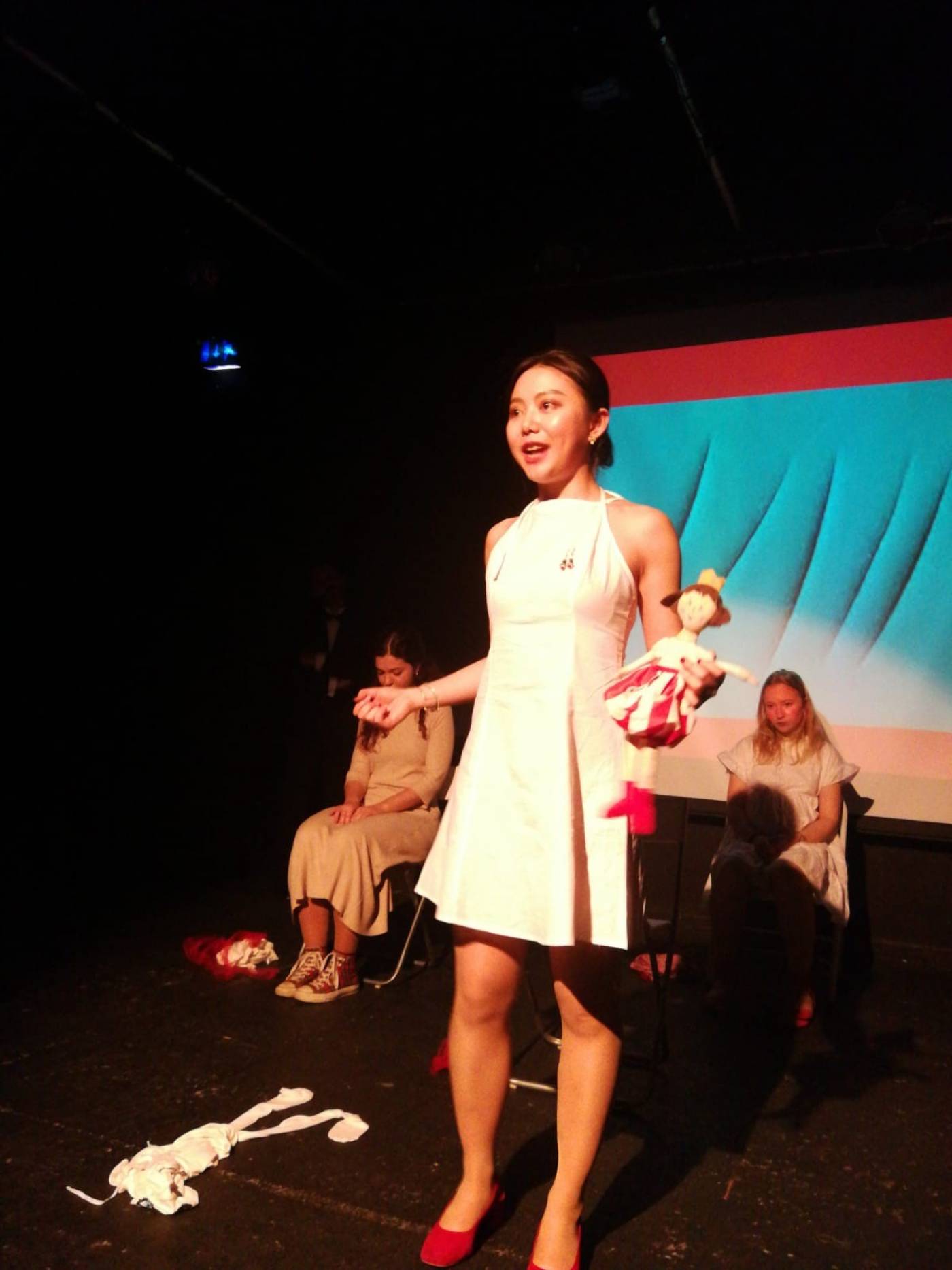

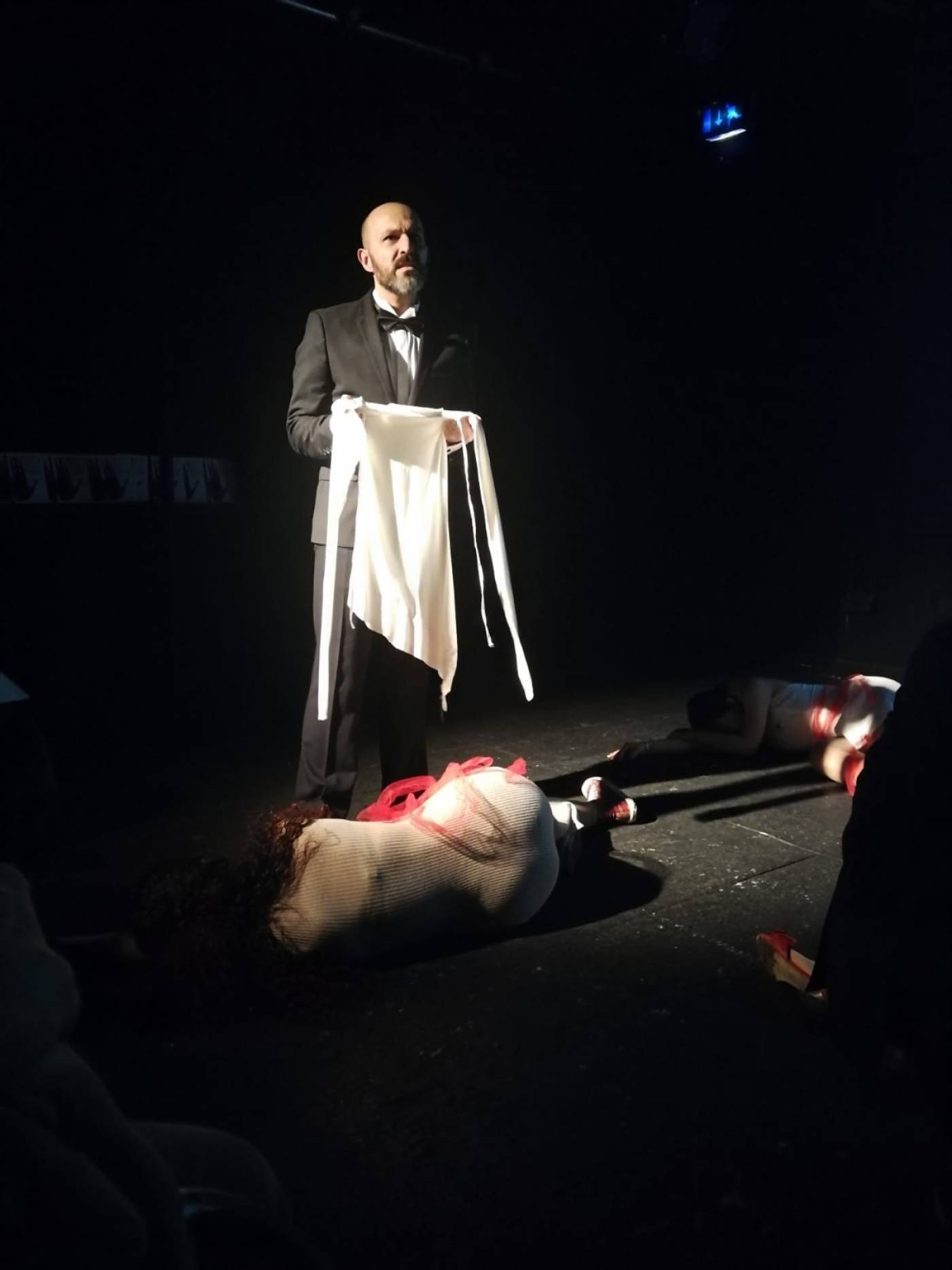
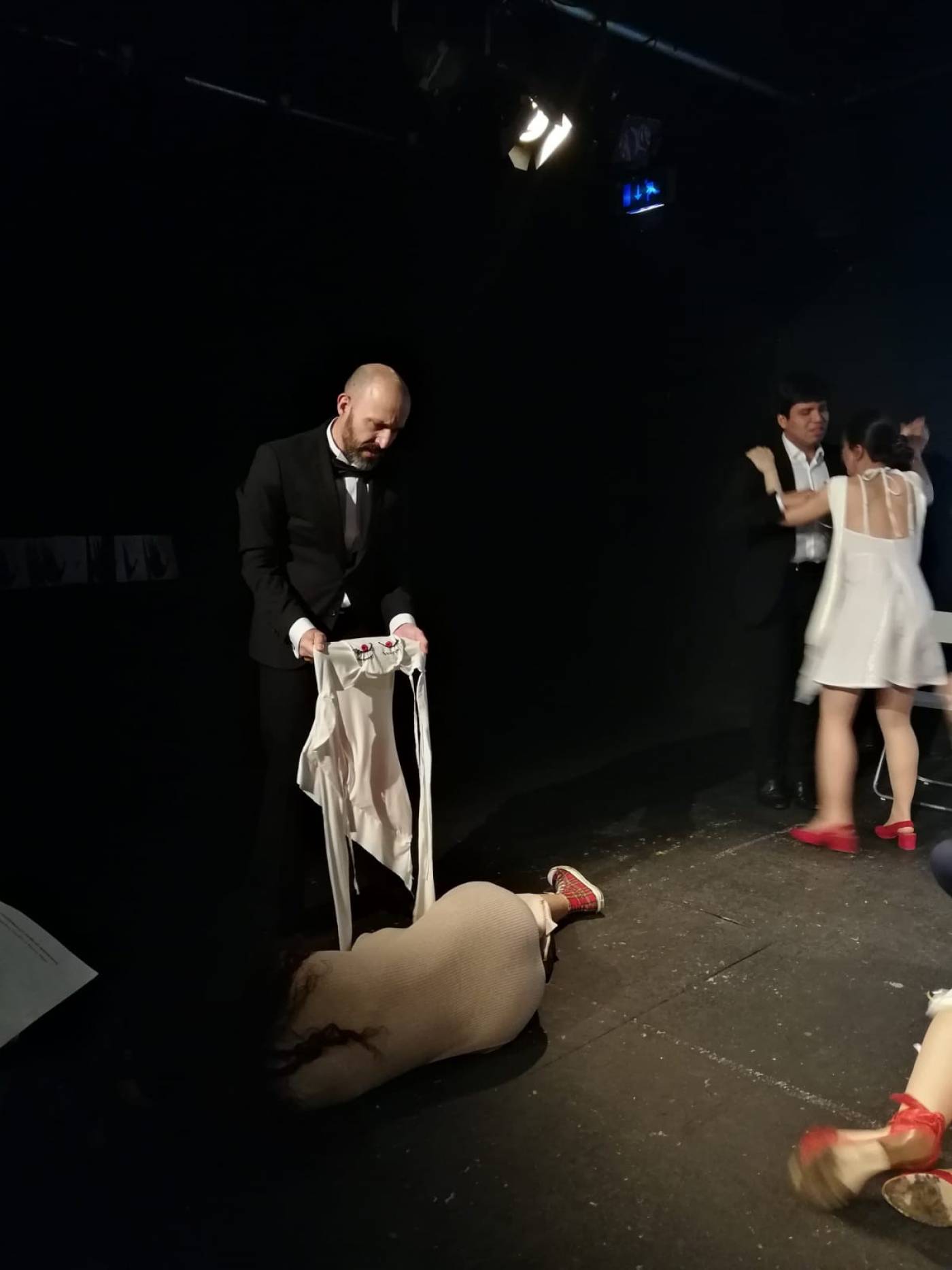
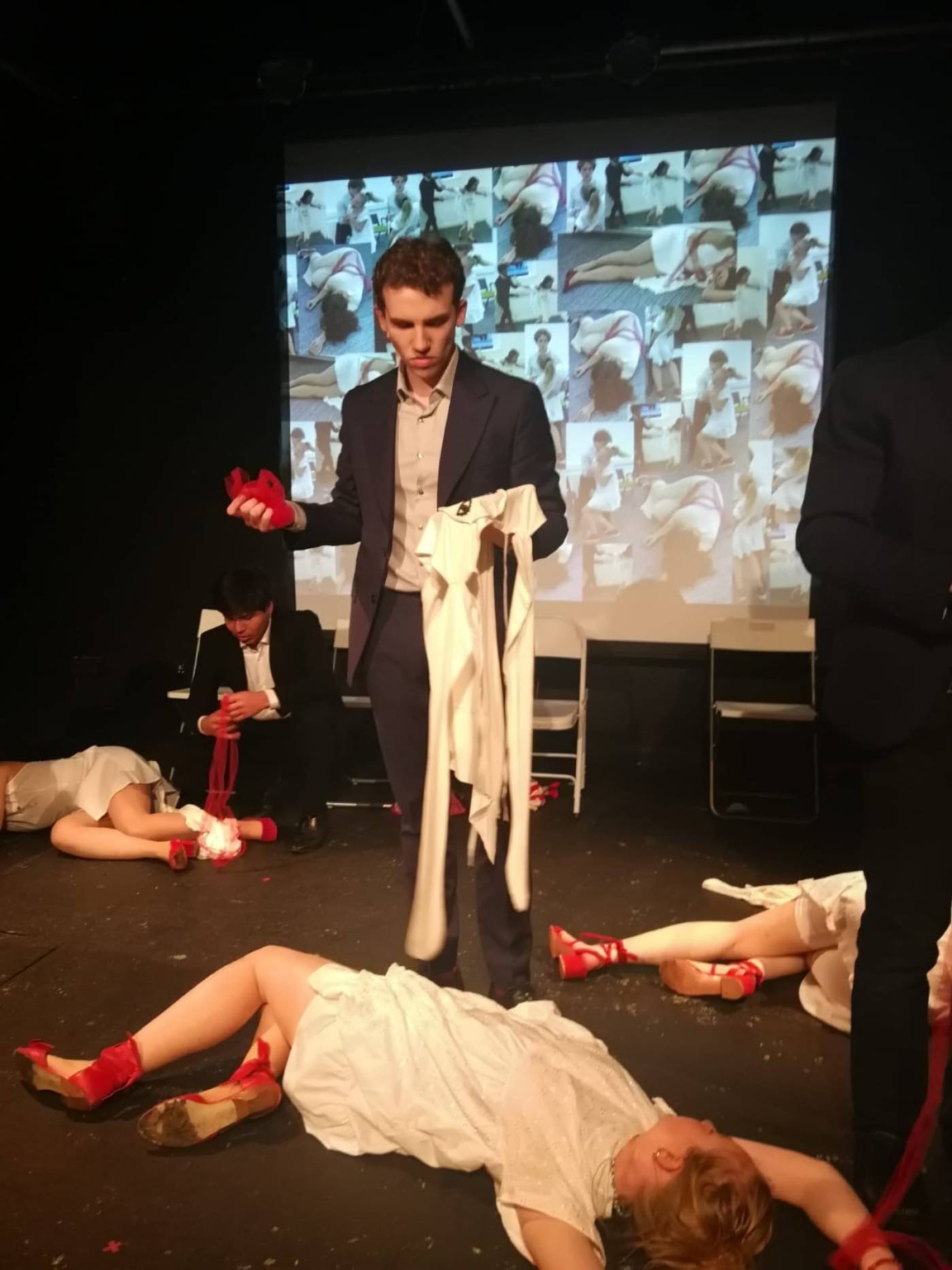
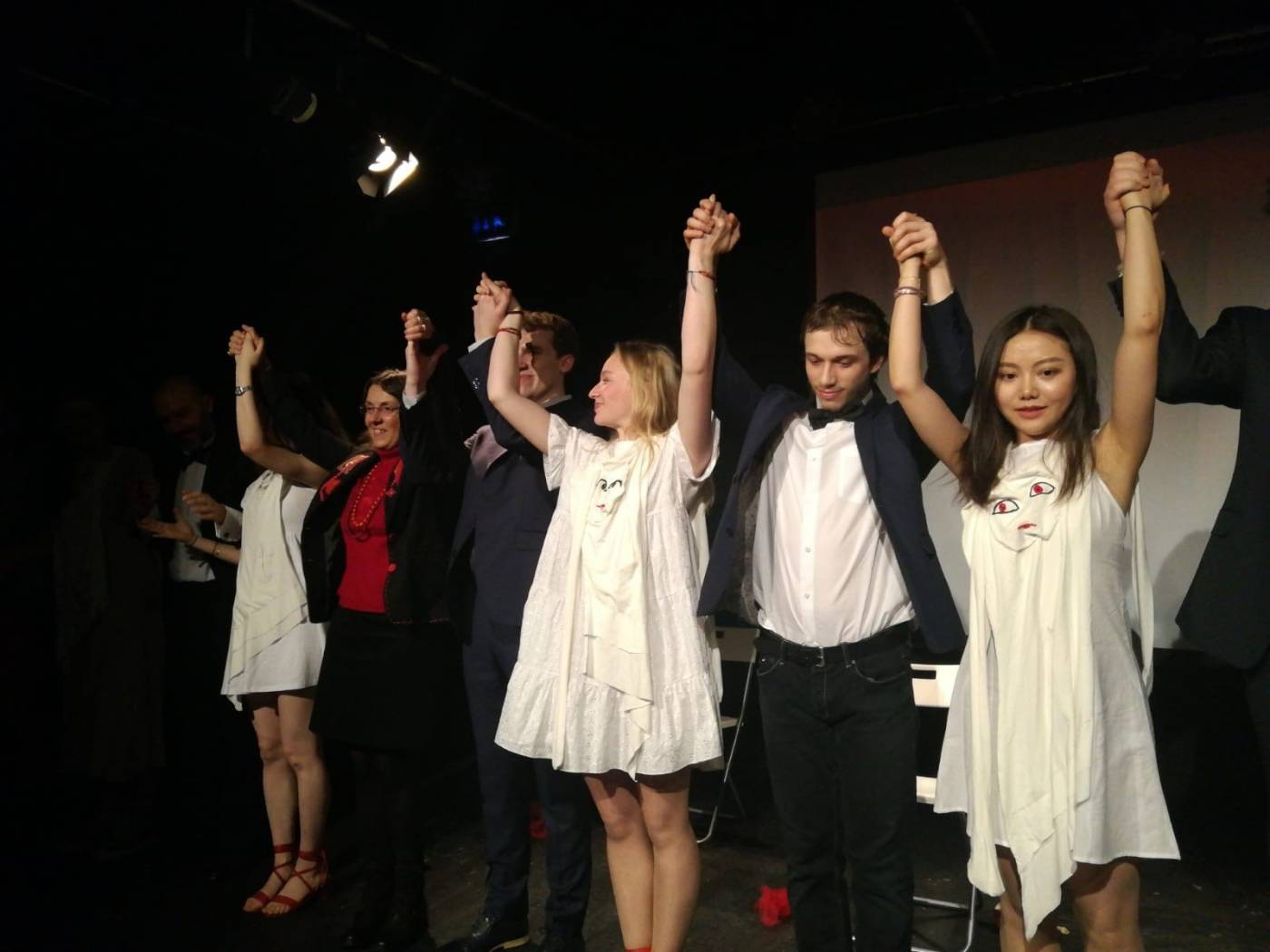
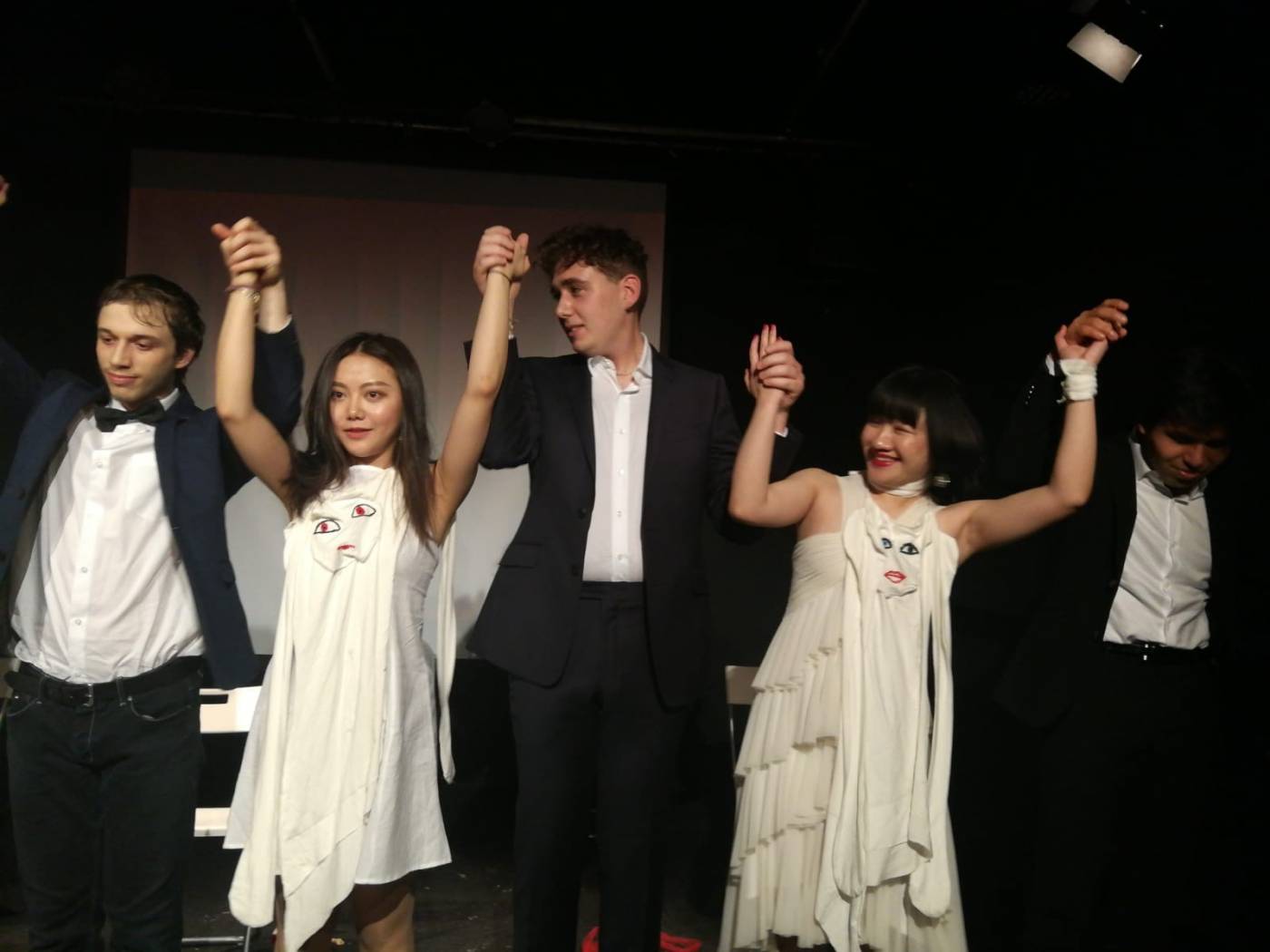
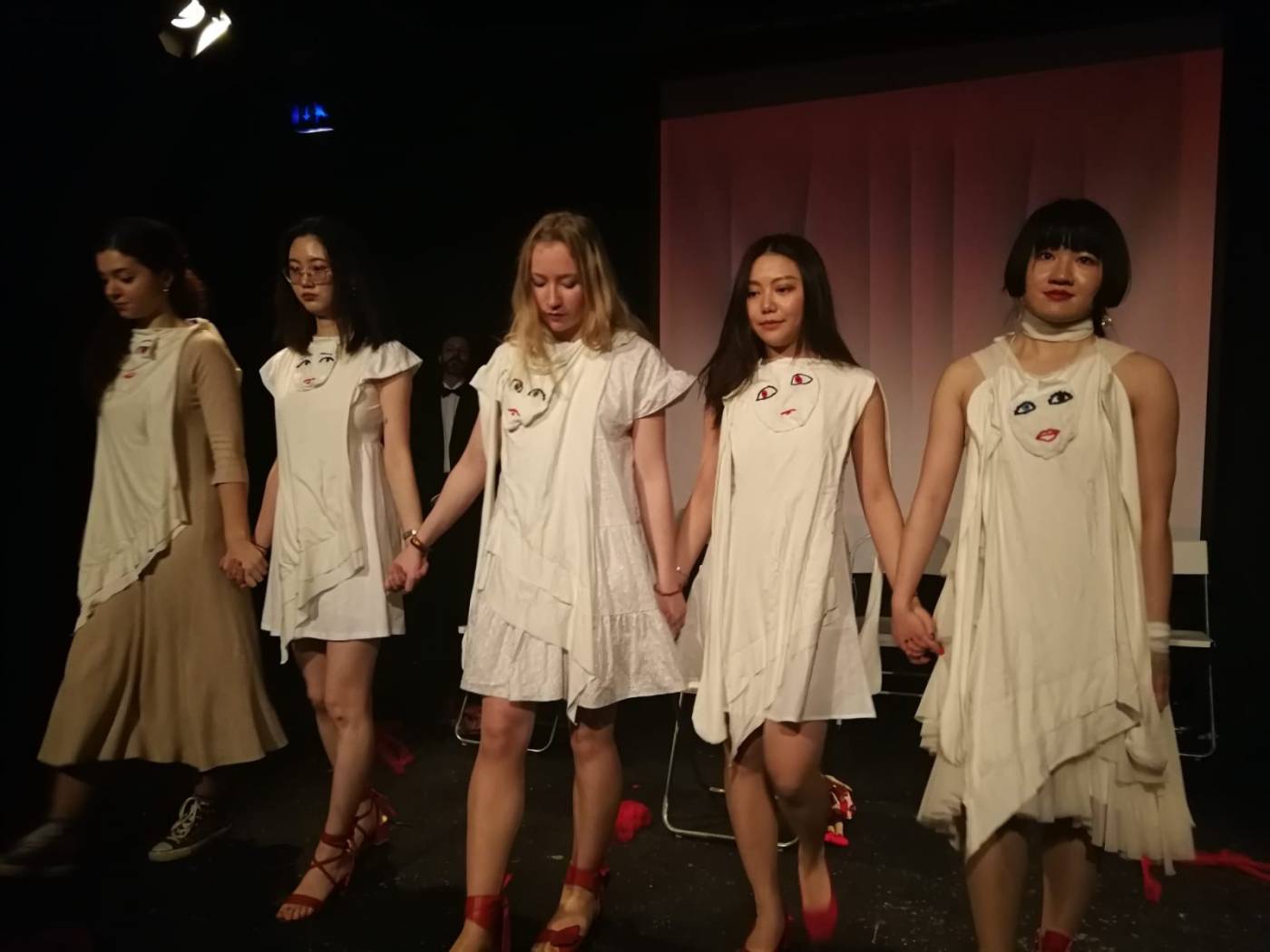
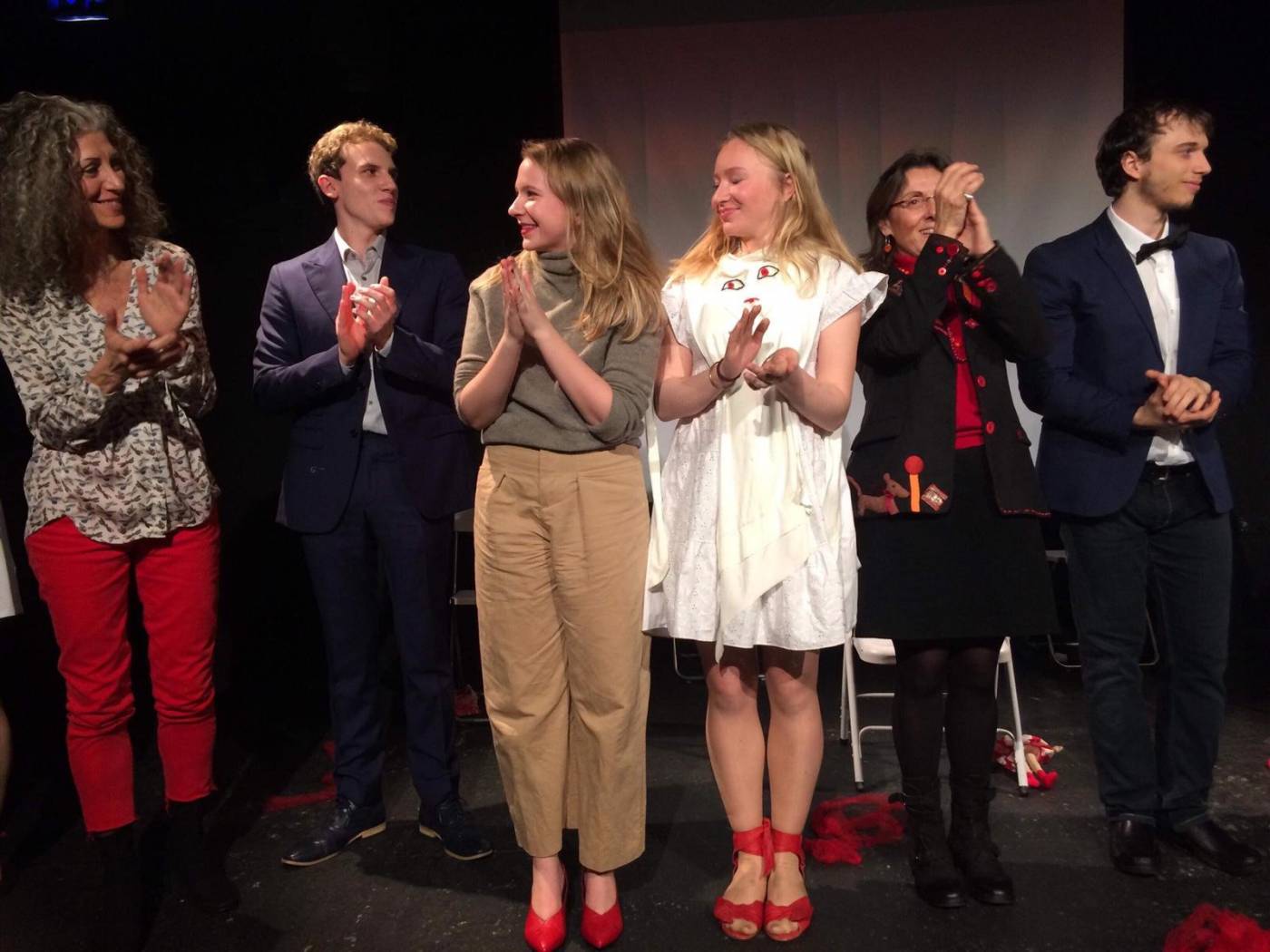
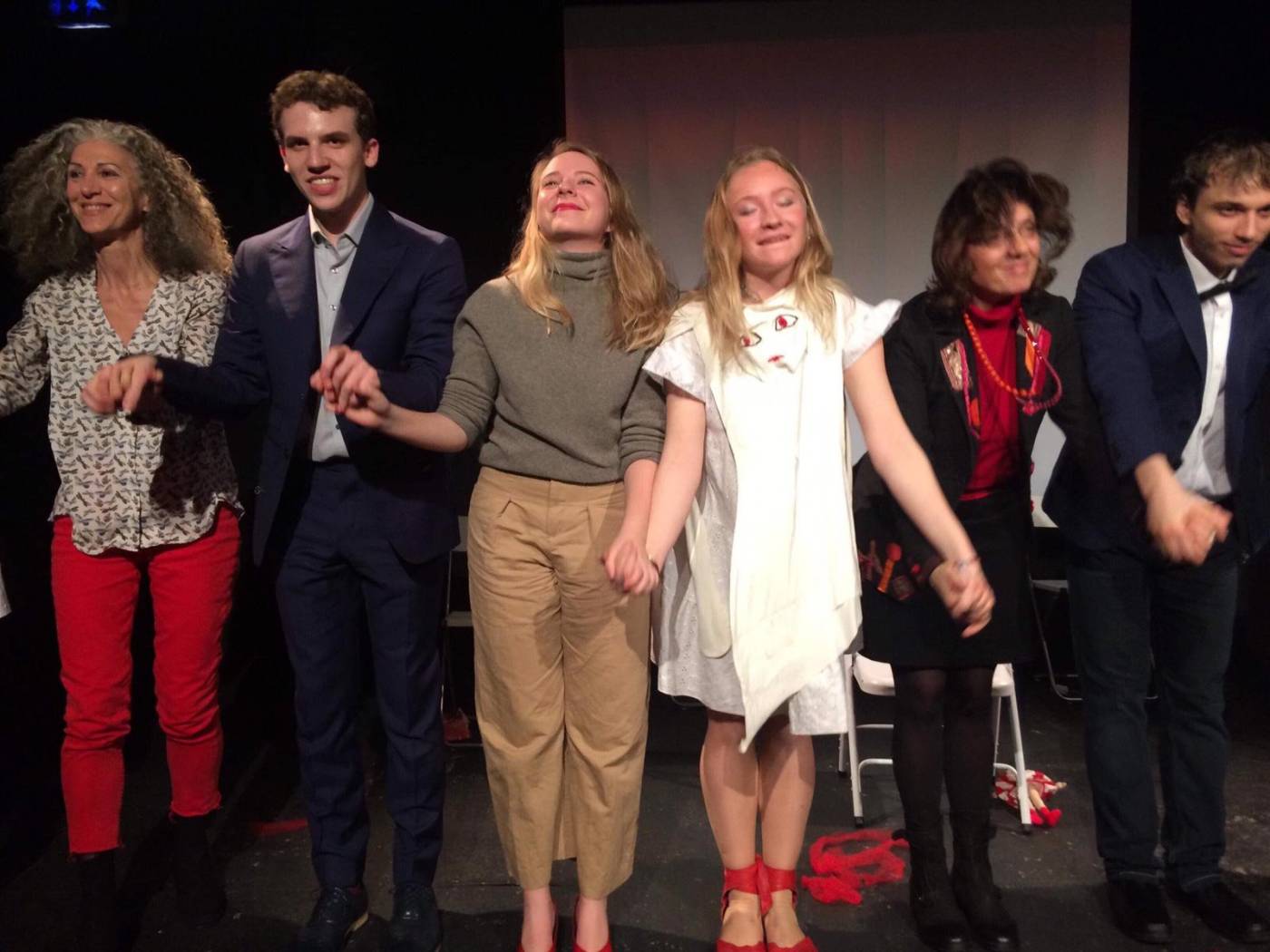

- Still Life in Ditch (2021)
Synopsis
An online streamed adaptation of ‘Natura morta in un fosso’ (Still Life in Ditch’) by the Italian playwright Stefano Paradivino translated in English by Ilaria Papini in 2013 and published by Hanging Loose Press (New York). “a riveting murder mystery constructed entirely of vivid monologues. As the plot unfolds through the intricate interplay of voices, we are not only swept towards a powerhouse climax but even more impressively taken deep into the minds of a half-dozen living, breathing unforgettable characters." Harold Schechter in www.bookshop.org. The play, produced by the SELCS Theatre projects, has been performed by students from SELCS and across UCL.
Special Thanks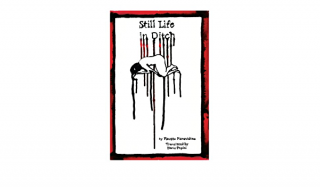
- Çağrı Ustaoglu (SELCS) who directed and edited the play and sound, for streaming.
- Yuan Chen (SELCS) stage manager, poster co-designer and social-media coordinator.
- Ana Givran (SELCS) social-media coordinator.
Contributions
- Lara Parmiani, director of LegalAliens theatre company, for the dramaturgy and acting supervision.
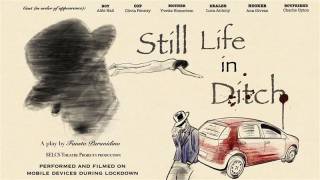
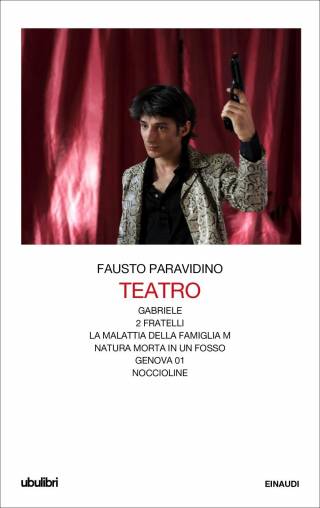

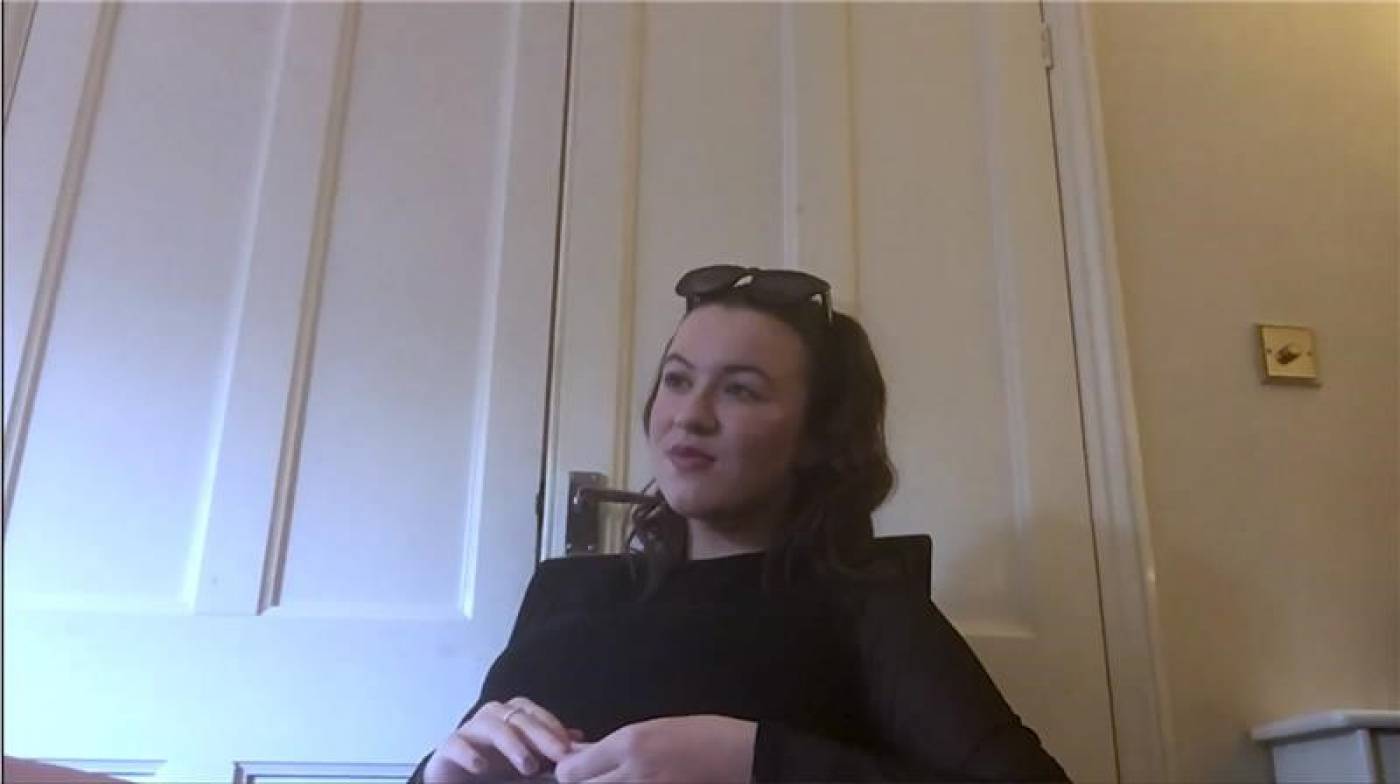




Testimonials
I played the role of Cop in Still Life in Ditch. Everyone involved was so lovely and supportive of each other's performances; there was absolutely no judgement which made me feel at ease the whole time. I always loved acting as a kid, but academic commitments got in the way as I got older. The project gave me an opportunity to rediscover my passion, for which I am so grateful. I will continue acting from now due to my amazing experience from this project." Olivia
“I played the role of Dealer [in Still Life in Ditch]. I loved being part of the project. It was a fantastic way to stay creative in lockdown and connect with other UCL students in this time. I loved developing my character on the zoom sessions with the rest of the group and felt like I grew as a performer." Cristian
I could observe and participate in the whole process of a theatrical production. It was great to solve the problems during the process with the team. Everybody was very talented and that made me realize what I can learn from them. Also, Marta and Lara have been very generous to give professional advice all the way through, which made me feel supported. Through this project, I became more confident about putting my artistic ideas into practice. I'm very grateful to the recognition of my work from the project team. I also gained some experience about how to be a media person and how to be involved in a theatrical production. This encouraged me to make more attempts to explore te theatre." Chen Yuan, promotion and poster designer for in Still Life in Ditch
- Yerma (2022)
A rewriting and staging of the original play by Federico Garcia Lorca (1934) performed at The Bloomsbury Studio on March 28-29, 2022. You can read the review of the play published in the magazine BioNews 1142.
Synopsis
The original play tells the story of Yerma, a woman in rural Spain who is desperate to have a child. Increasingly stressed by the fruitless passing of time and by the society around her, and her unfulfilled motherhood leads her to kill her husband. Our multimedia production presents a contemporary, creative and independent woman, Yerma, who undertakes a complex journey to have a child. The use of projections and voice over narration give an insight into both her mind and the array of feelings as she comes to terms with being childless. Of the original play, we have kept the story line and the name of the main characters – Yerma, Victor and Juan – We have also borrowed some poetic lines in order to connect with the captivating pagan and rural Spanish setting and pathos. Our adaptation takes lines also from the autobiographical book ‘The Pursuit of Motherhood’ (2014) by Jessica Hepburn. Her journey into fertility treatments has been a great source of inspiration for the characterisation of Yerma. We have decided that today, Yerma would not be associated with the same tragic fate of her predecessor. We hope otherwise to have provided this play with the pathos and trepidation inherent in the complexity of a woman’s journey to have a child.
Acting coach and assistant director, as well as sketch designer: Leonard-Buisoon Vassilissa (SELCS UG)
Stage manager and promotion campaign leader: Zakharova Anna (SELCS UG)
Graphic designer: Chen Phoebe (SELCS/CMII UG)
Make-up artist: Liu Shining (SELCS/CMII graduate)
Voice recordings: Pathak Shivam (SELCS UG)Cast (in alphabetical order)
Antignac Margot (Yerma)
Bell Josie (Mother)
Bonte Robin (Victor)
Coles Amy (sister)
Leng Catherine (Maria)
Paine Louis (Juan)External Collaborations
- Armelle Lajus, stage writer, helped rewriting the script.
- Jessica Hepburn, author, came for an interview with students.
- Dr Zeynep Gurti and Dr Joyce Harper, from the Women’s Health clinic at UCL, shared their expert knowledge on (in)fertility and women’s health in a Q&A at the end of the two evenings.
- Gina Glover, visual artist, allowed the use of her work ‘NEW BEGINNINGS – OOCYTE'
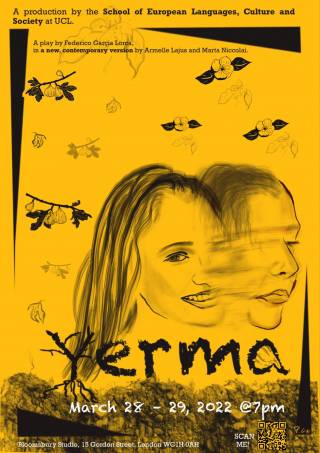
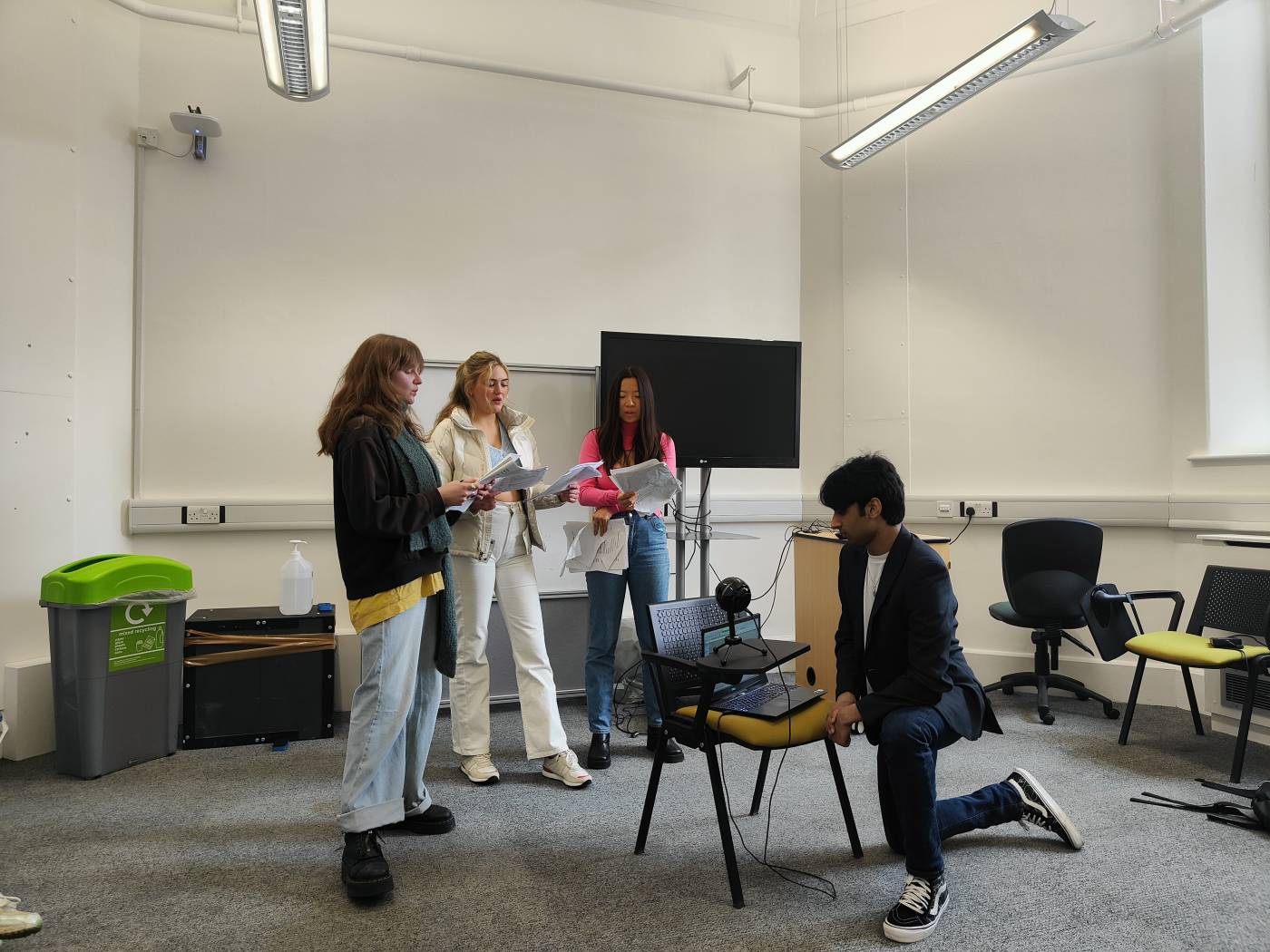

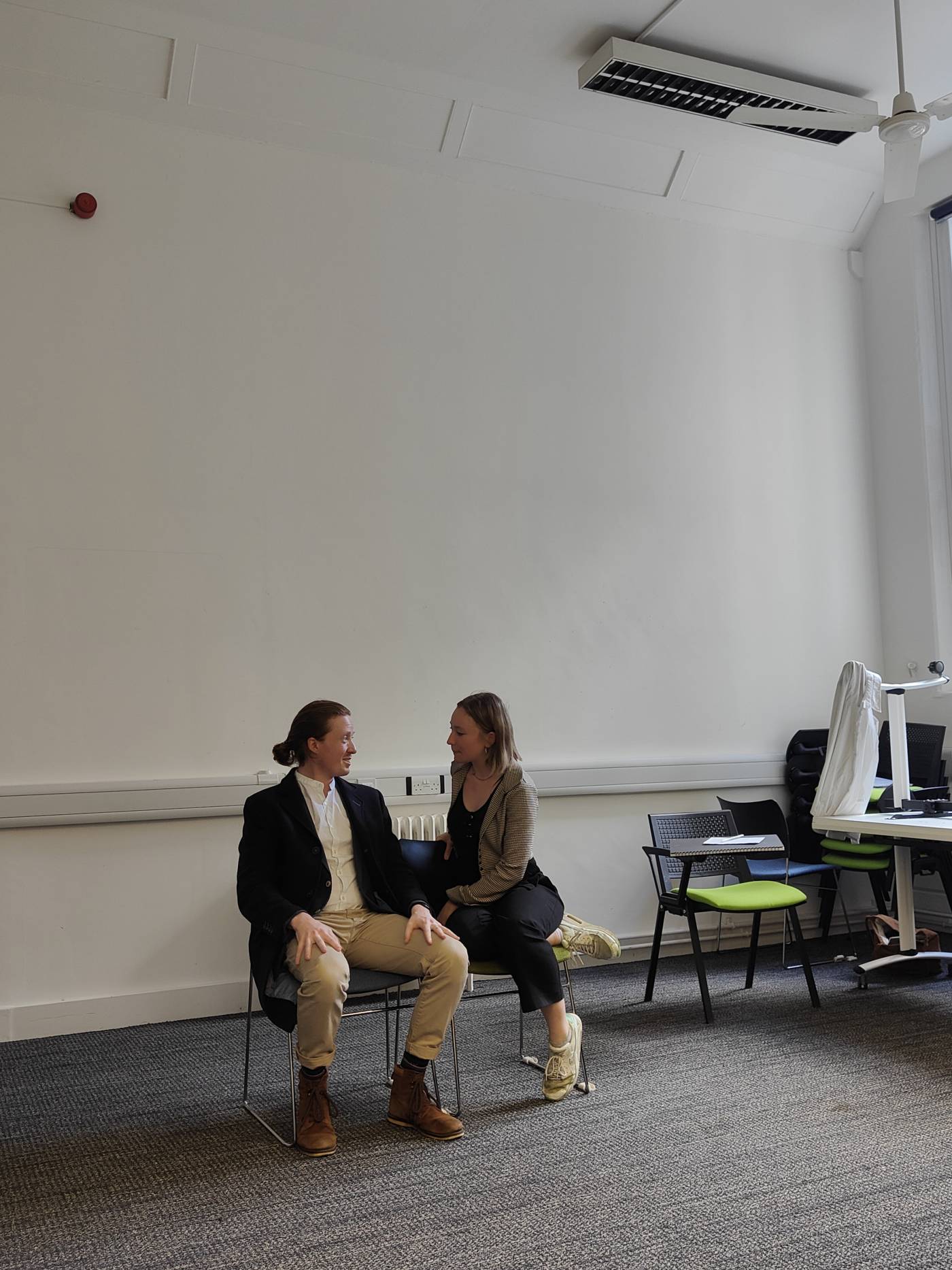

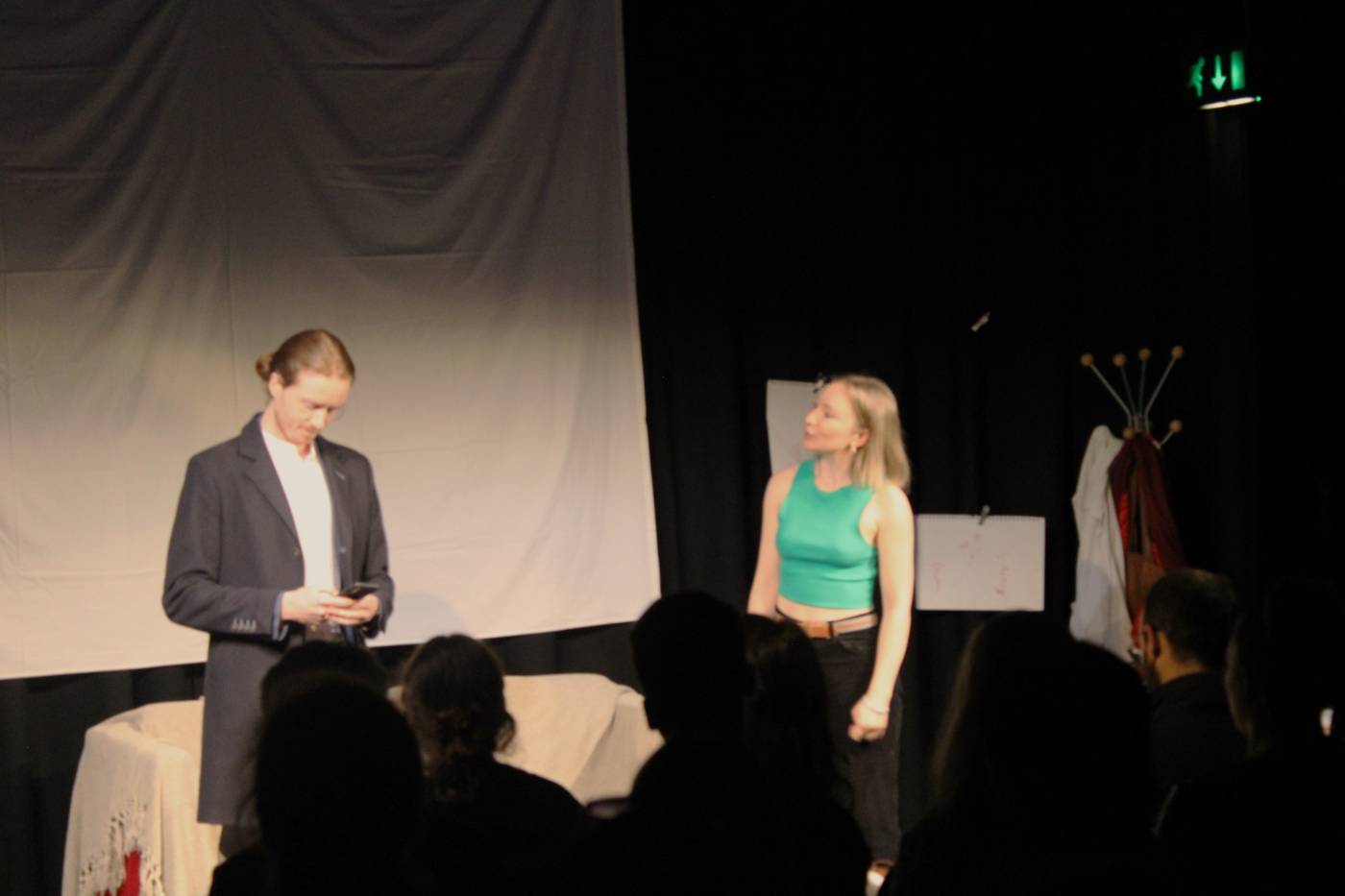

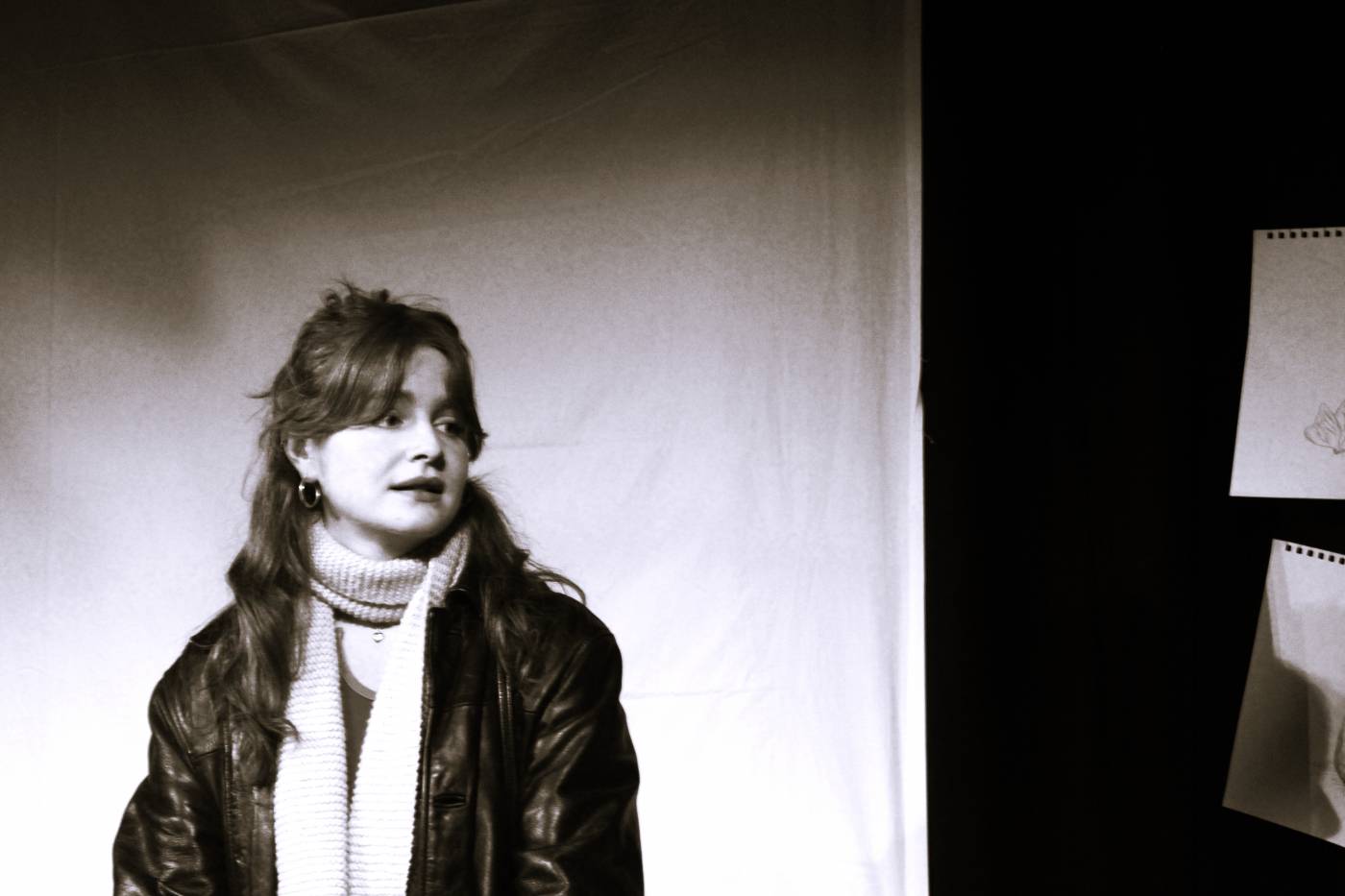
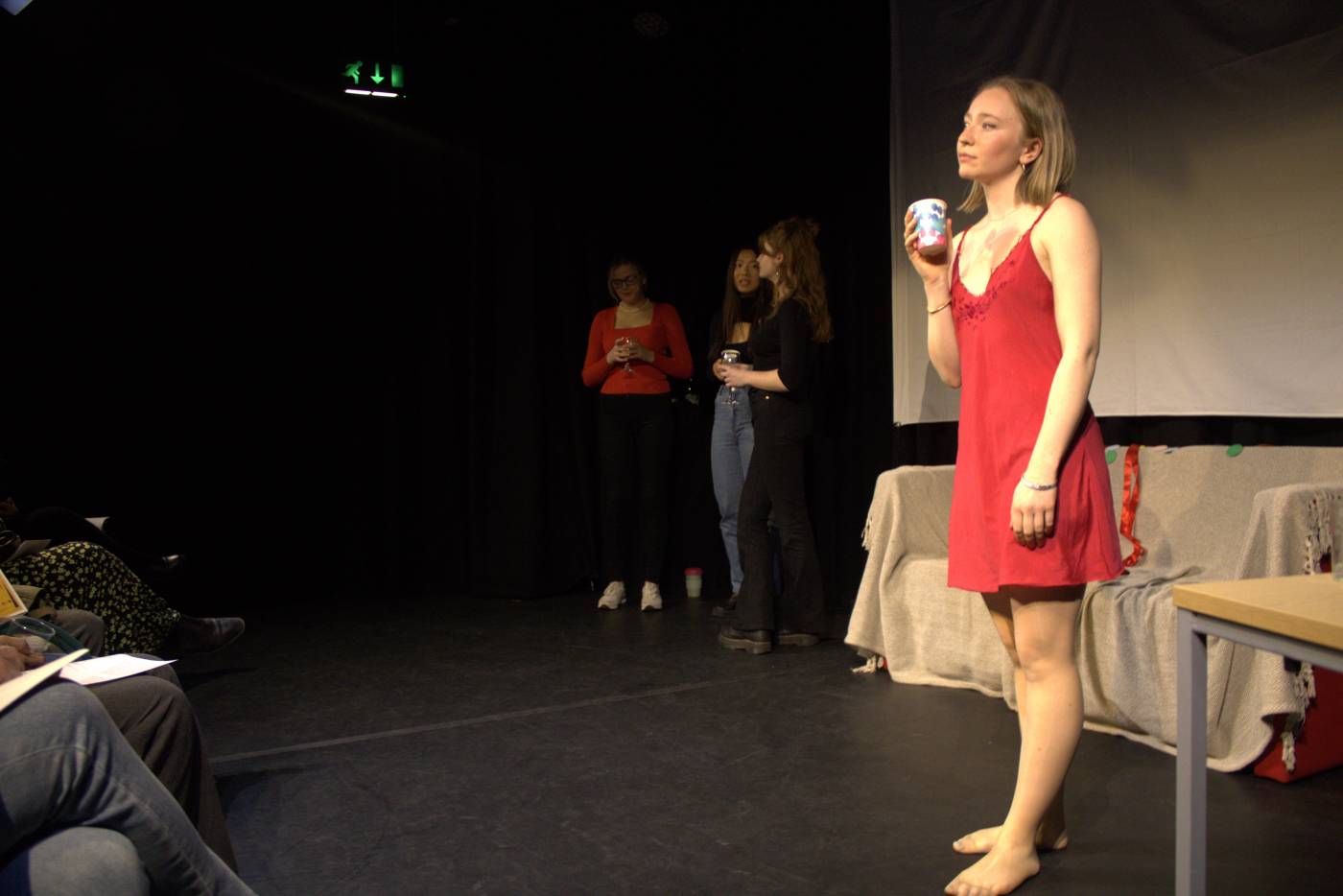
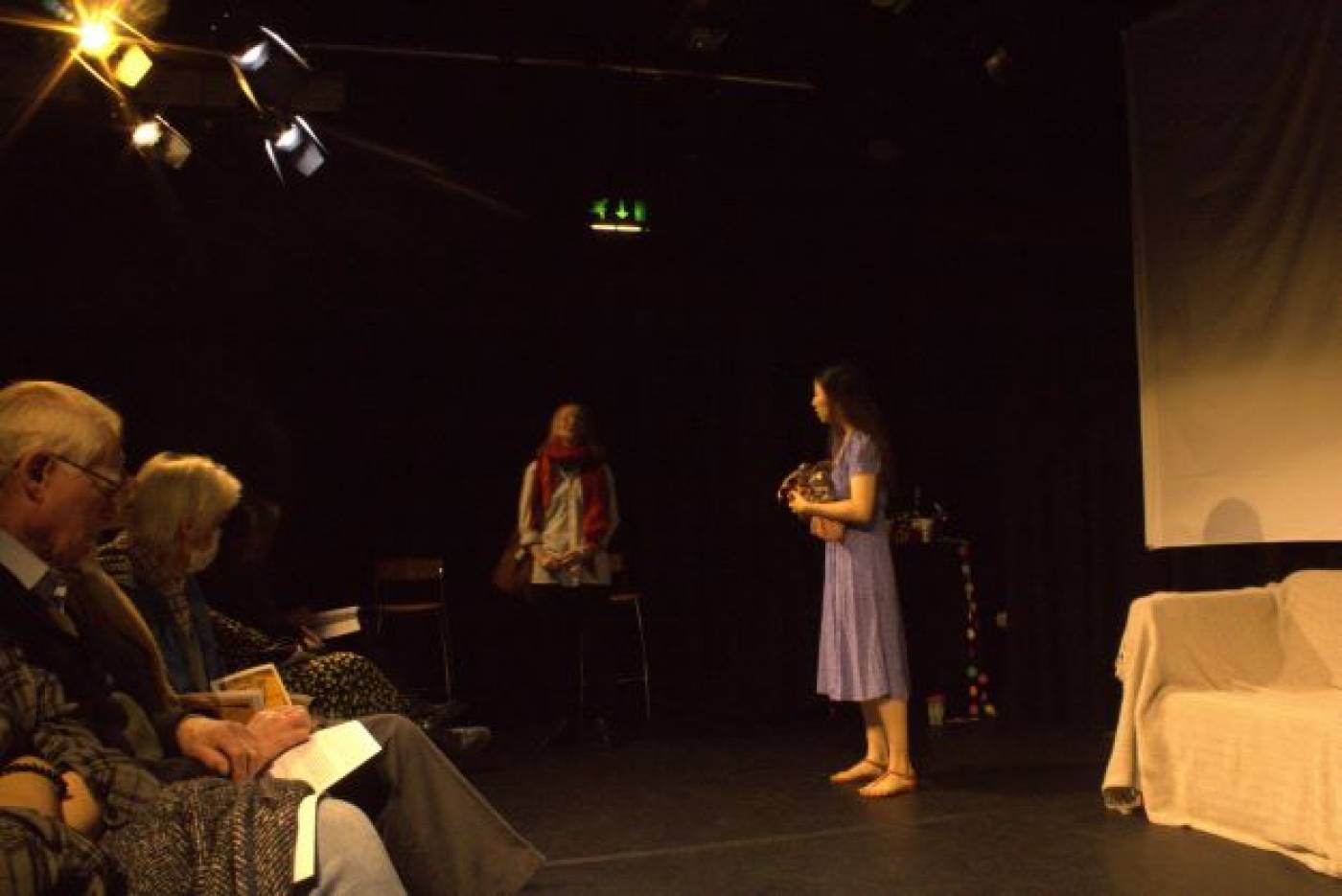
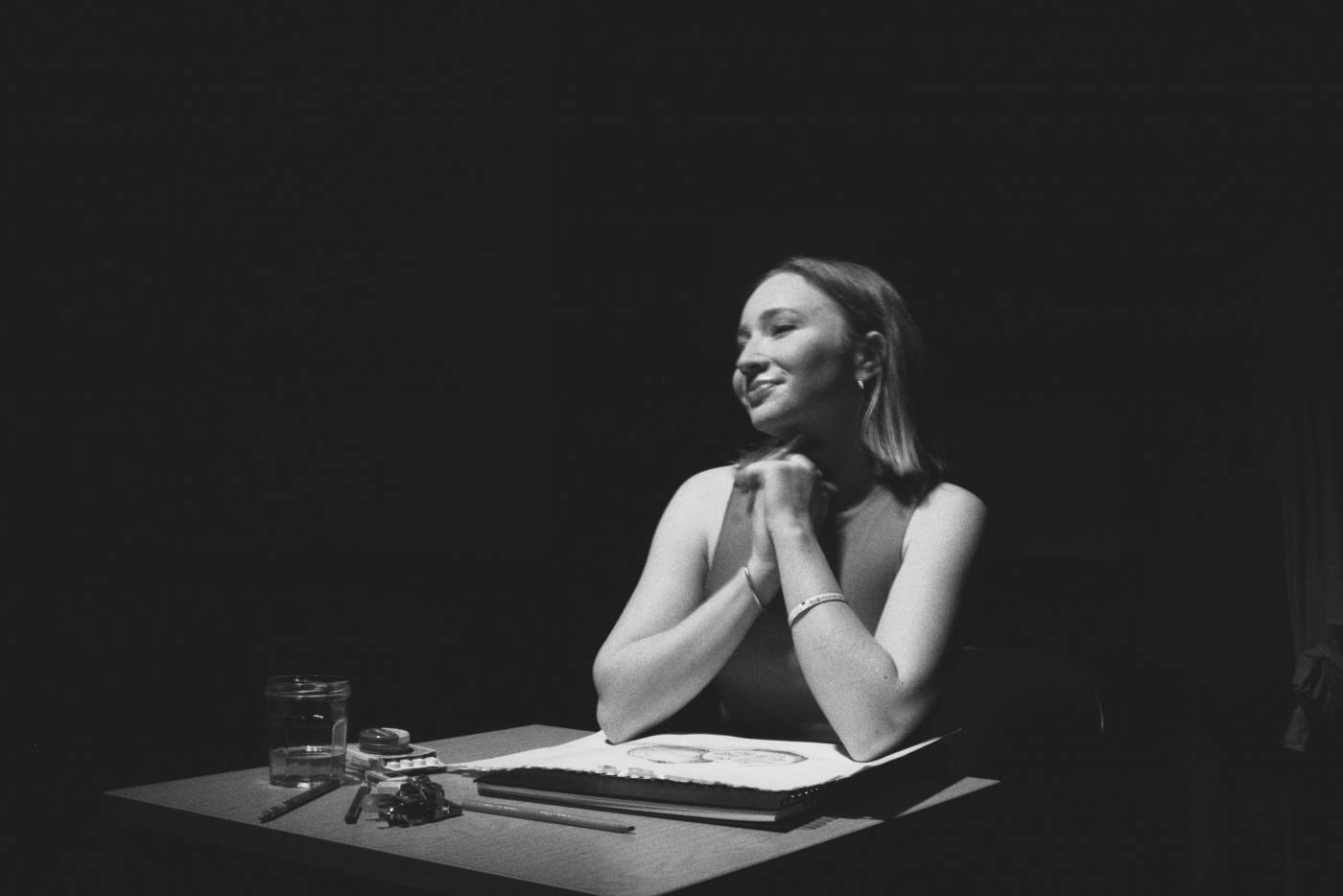
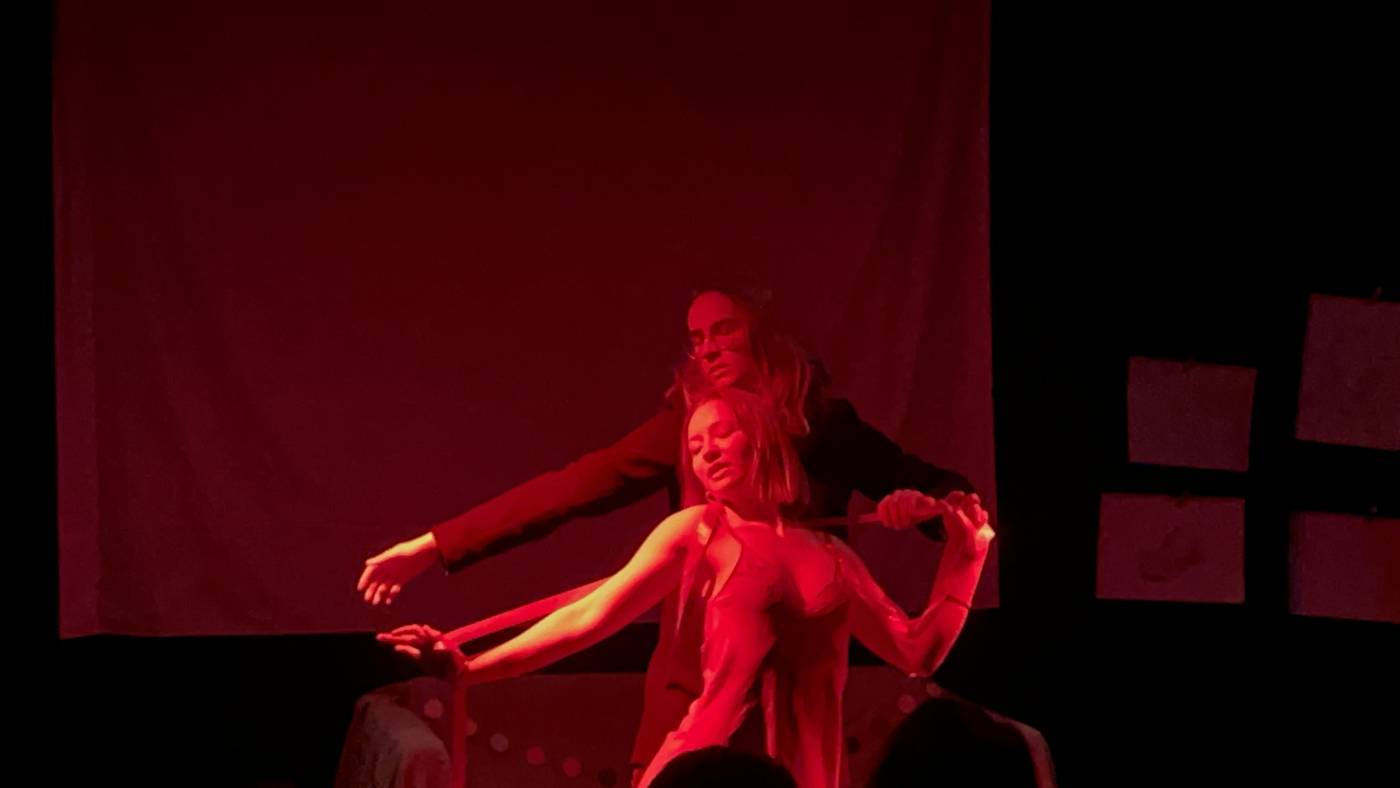
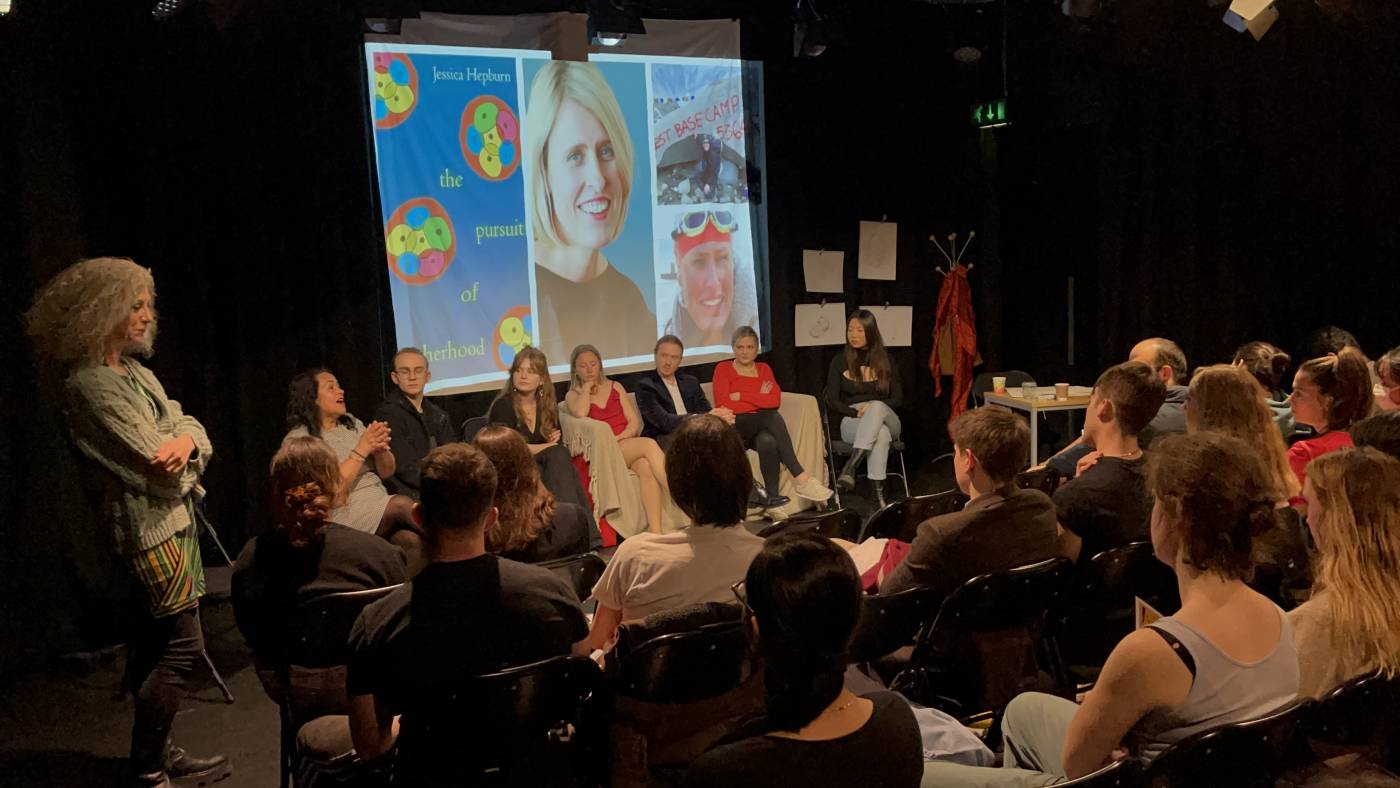

- The Clown in Popular Culture (2022)
An interdisciplinary event celebrating the king of clown, Joseph Grimaldi.
Synopsis
The figure of the clown seems to be more prominent than ever before in popular culture. Traditionally, the clown is associated with laughter, the relief of pain and sadness, sometimes even described as a modern healer, or shaman. In more recent times, the clown has become a controversial figure, associated with more negative qualities such as horror films like ‘It’ (Andrés Muschietti) and the boisterous behaviour of certain politician, who are accused of ‘clowning around’. Yet, the clown is a complex figure that deserves closer study. An excellent starting point would be a once popular yet now overlooked figure from British culture: Joseph Grimaldi (1778-1837), a London born comedian with Italian roots, also known as ‘the king of clowns’. Grimaldi defined what we now understand to be the clown, becoming the most popular entertainer of the Regency period. He made his stage debut at the Theatre Royal, Drury Lane, and performed for many years at Sadler’s Wells, as well as Covent Garden theatres.
Recordings of this theatre project are available to watch on the following links:
Watch - The Clown in Popular Culture: The Clown between tradition and innovation
Watch - Introduction to Joseph Grimaldi
Watch - Grimaldi's Last Act
This is an interdisciplinary event, including academic approaches to contemporary clowns – practitioners view – a performance as detailed from the programme avaialble below:
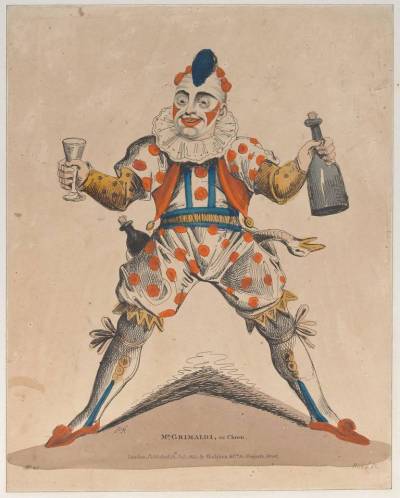
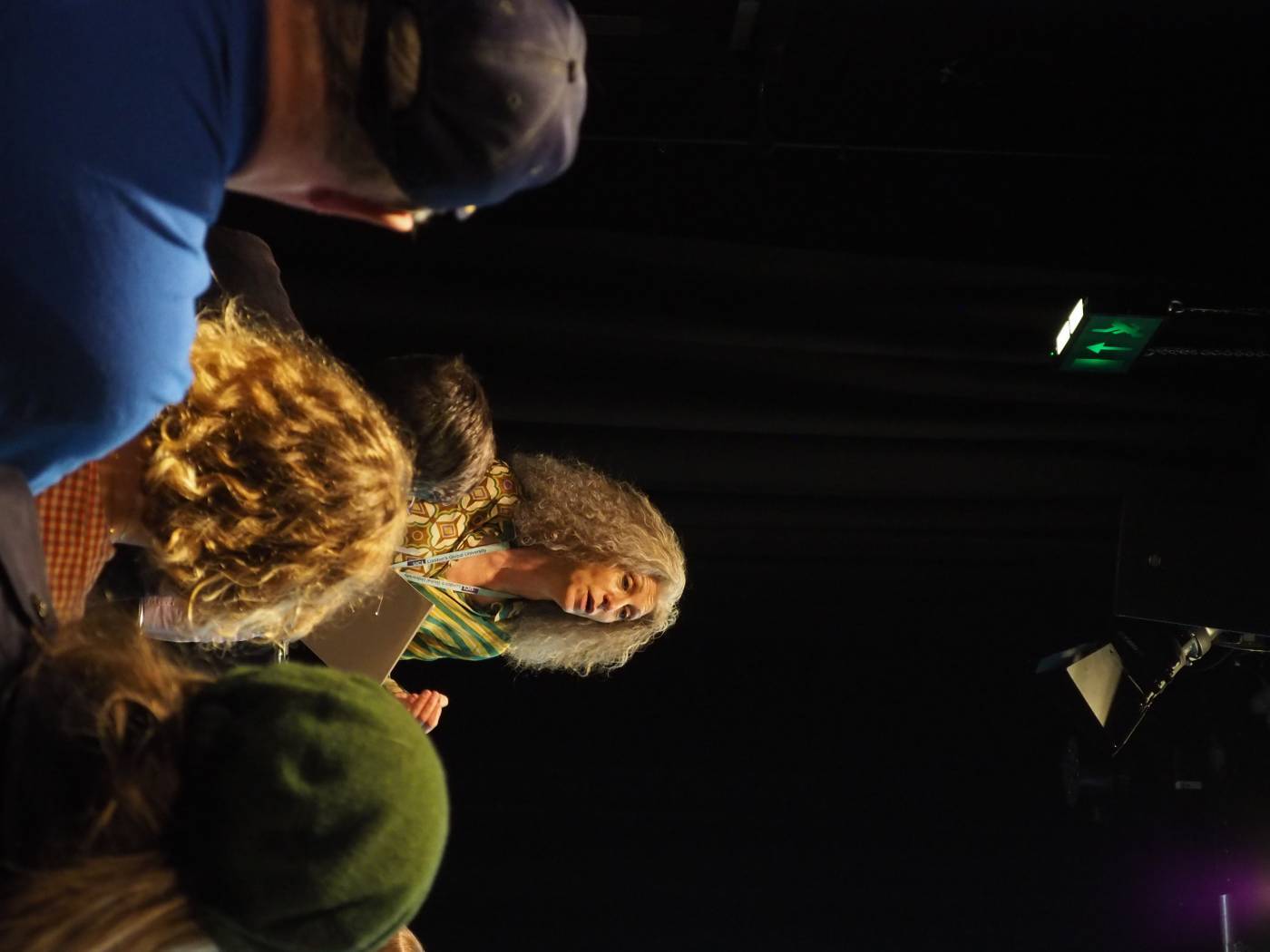
Dr Marta Niccolai (organiser)
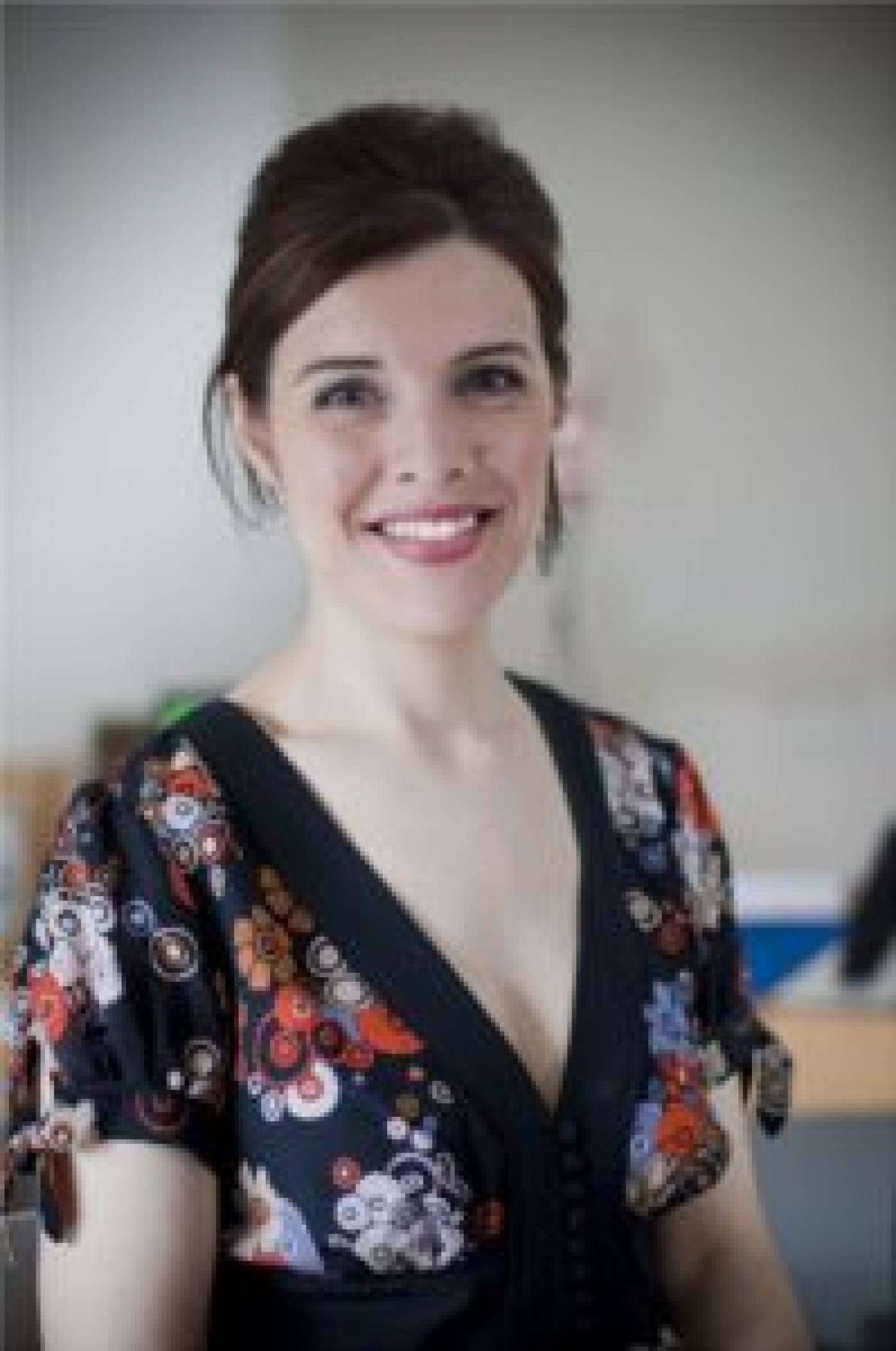
Nadia Ostacchini (organiser)
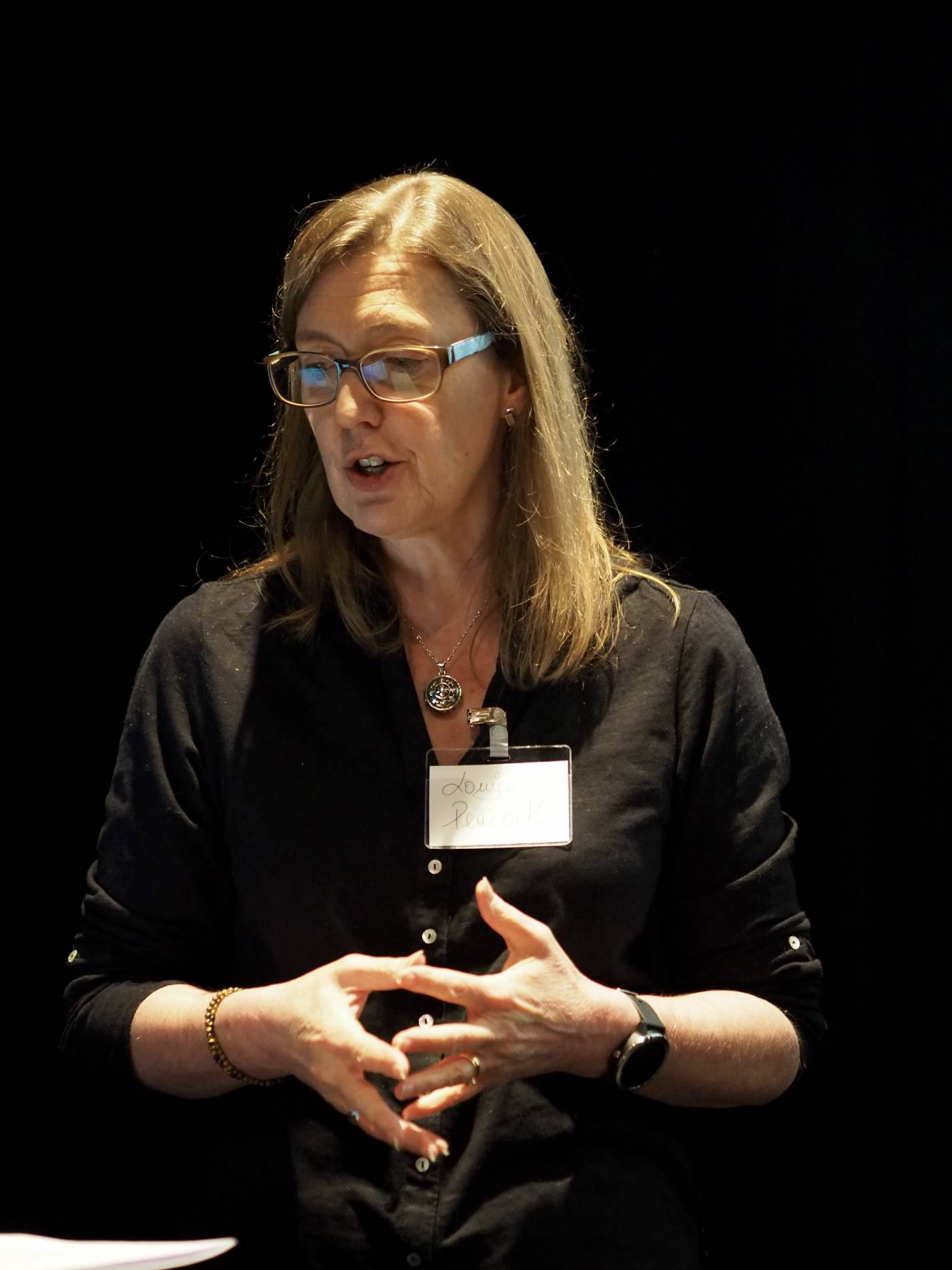
Louise Peacok (speaker)

Joana Jacob Ramalho (speaker)
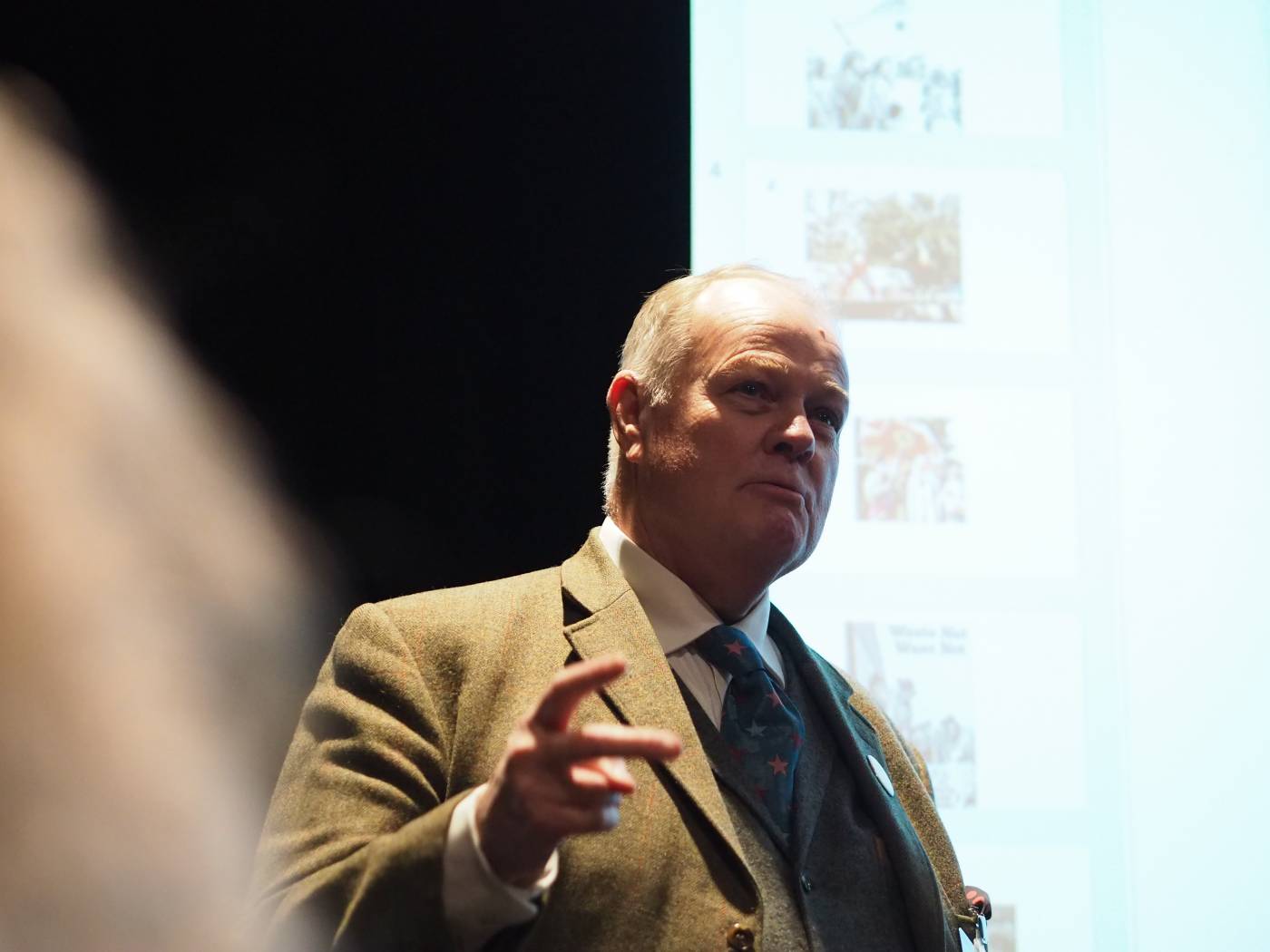
Martin Burton (clown)

Louise Peacock – Marta Niccolai – Martin Burton

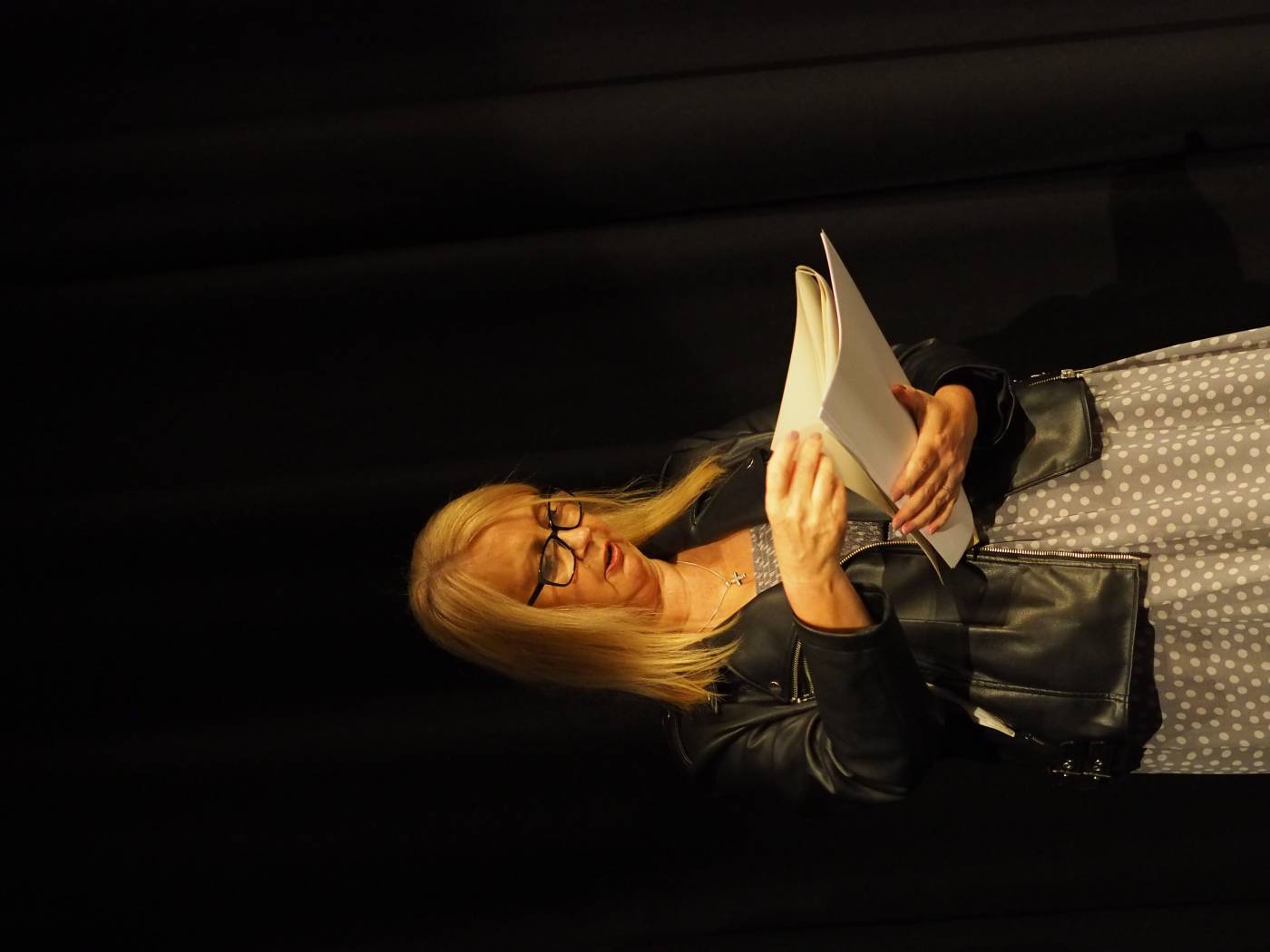
Penny Calliford (writer)
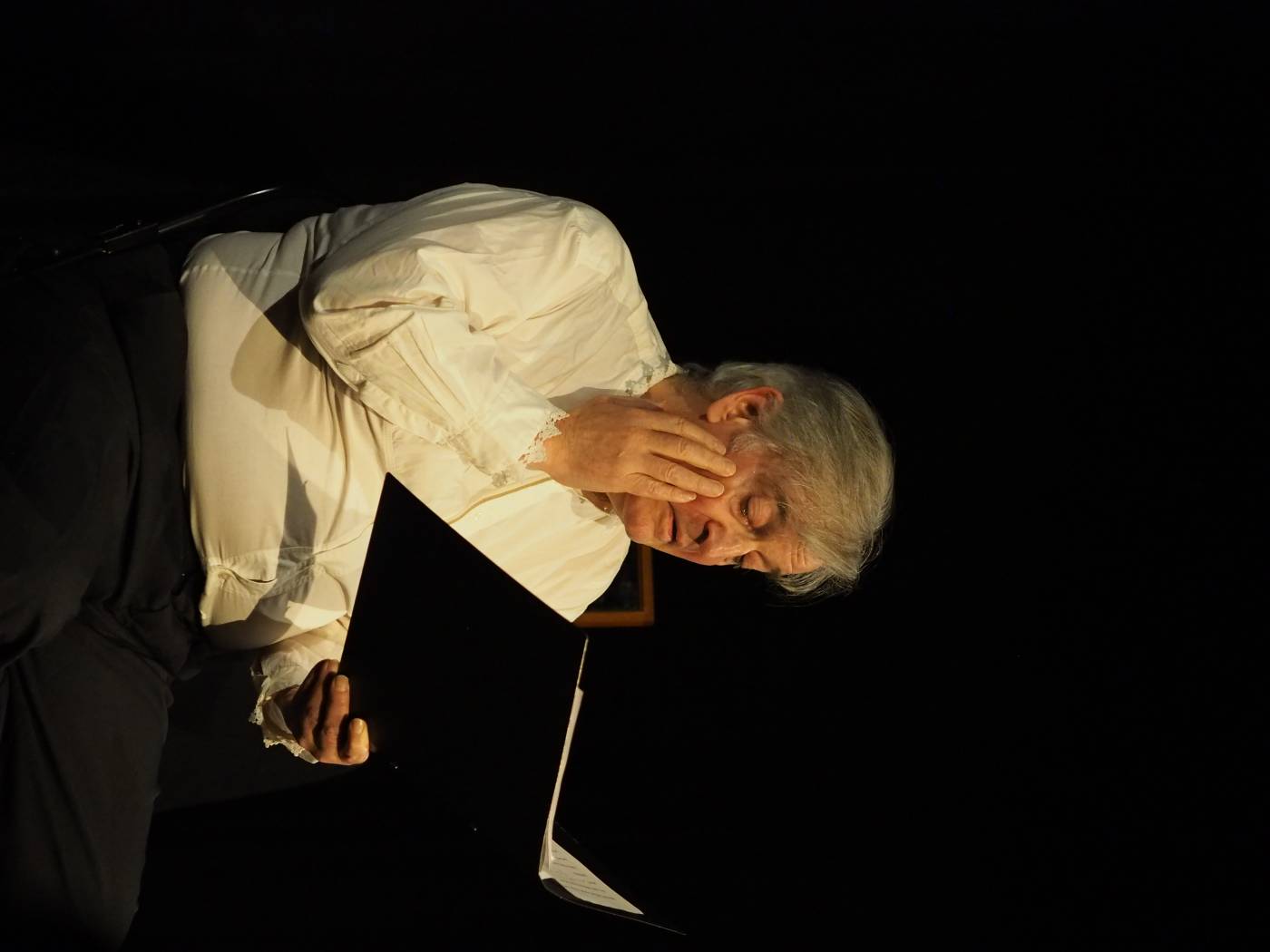
Edmund Dehn (actor)
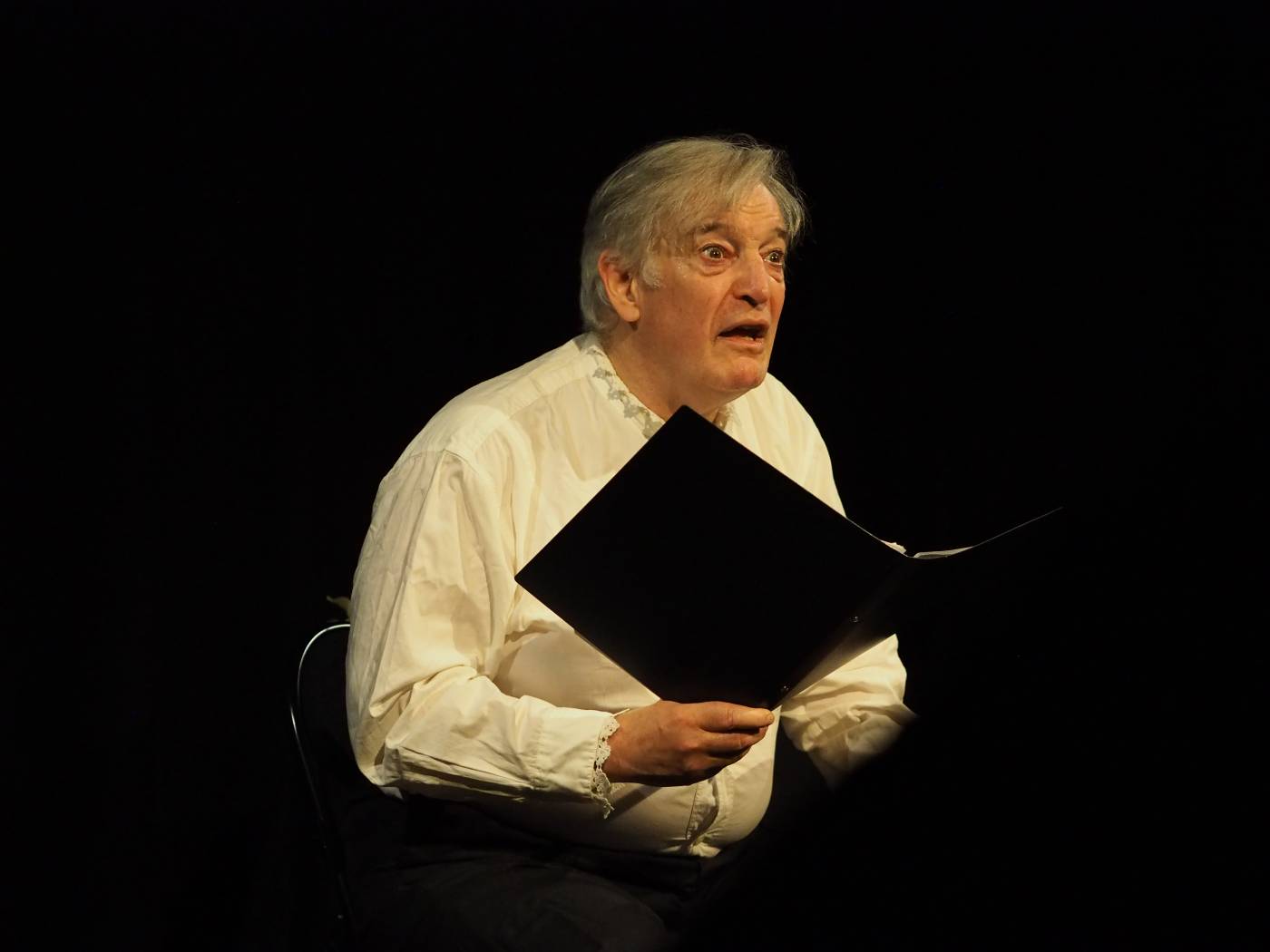

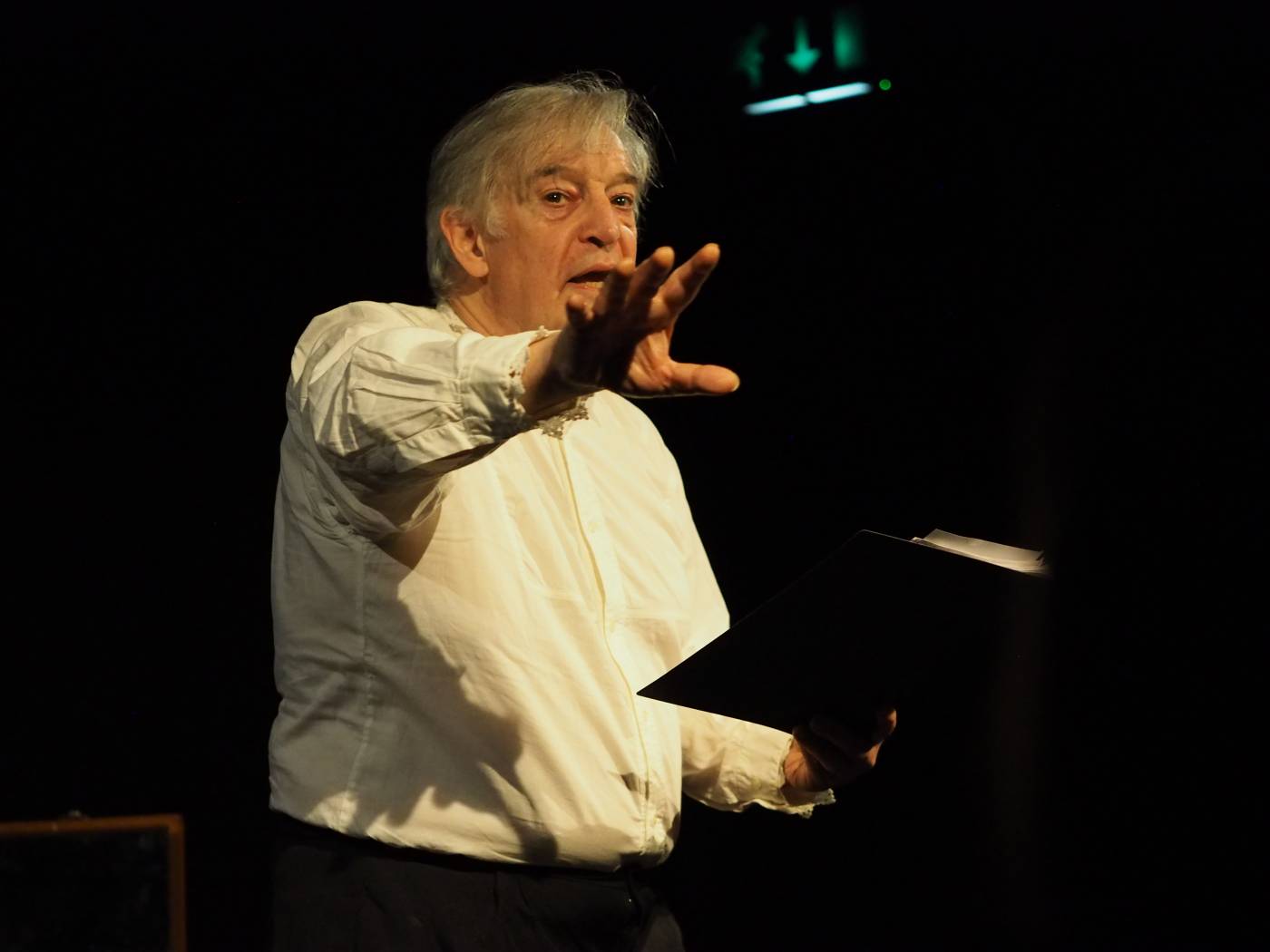

Anthony Shrubsall (theatre director)
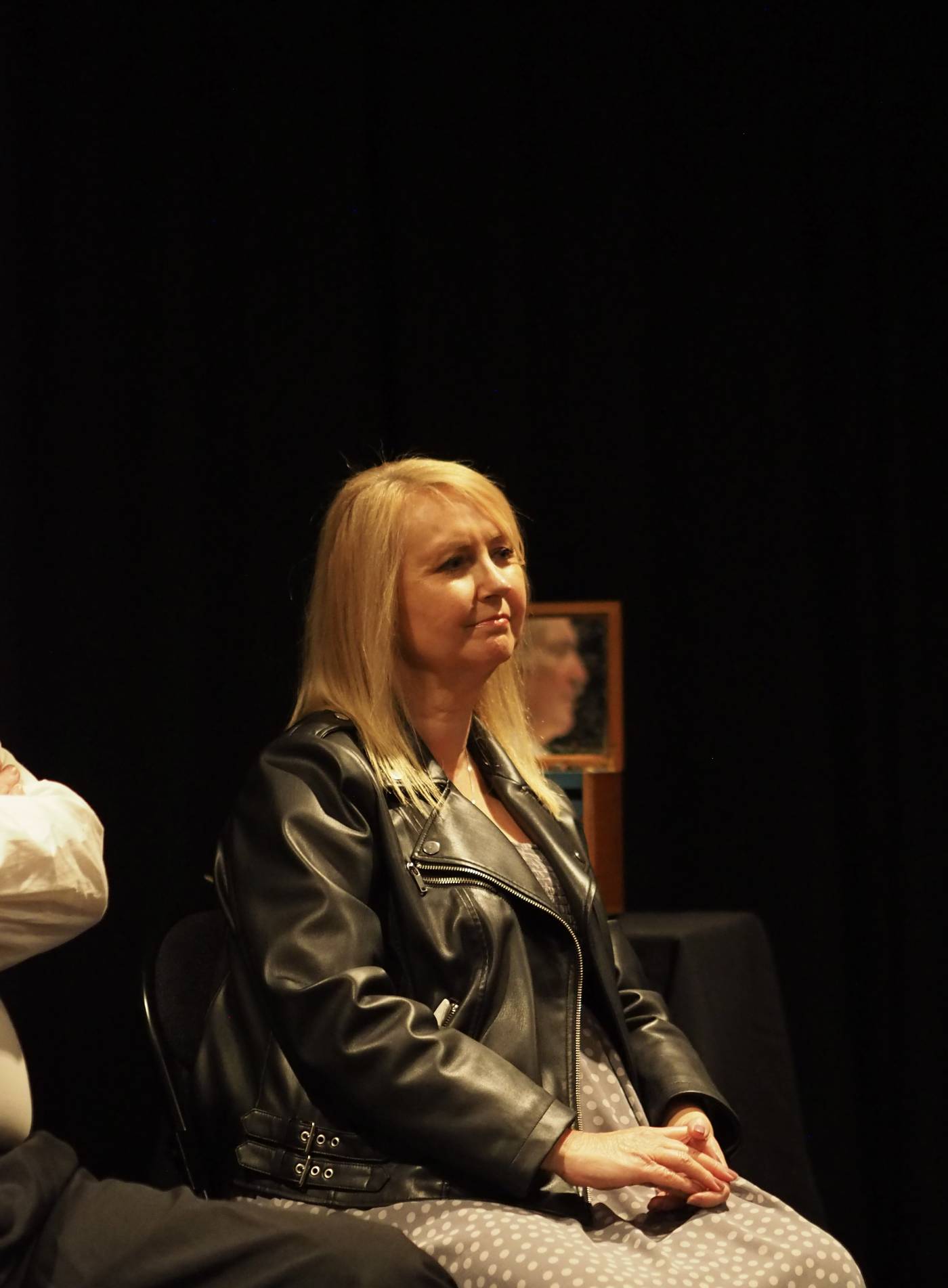
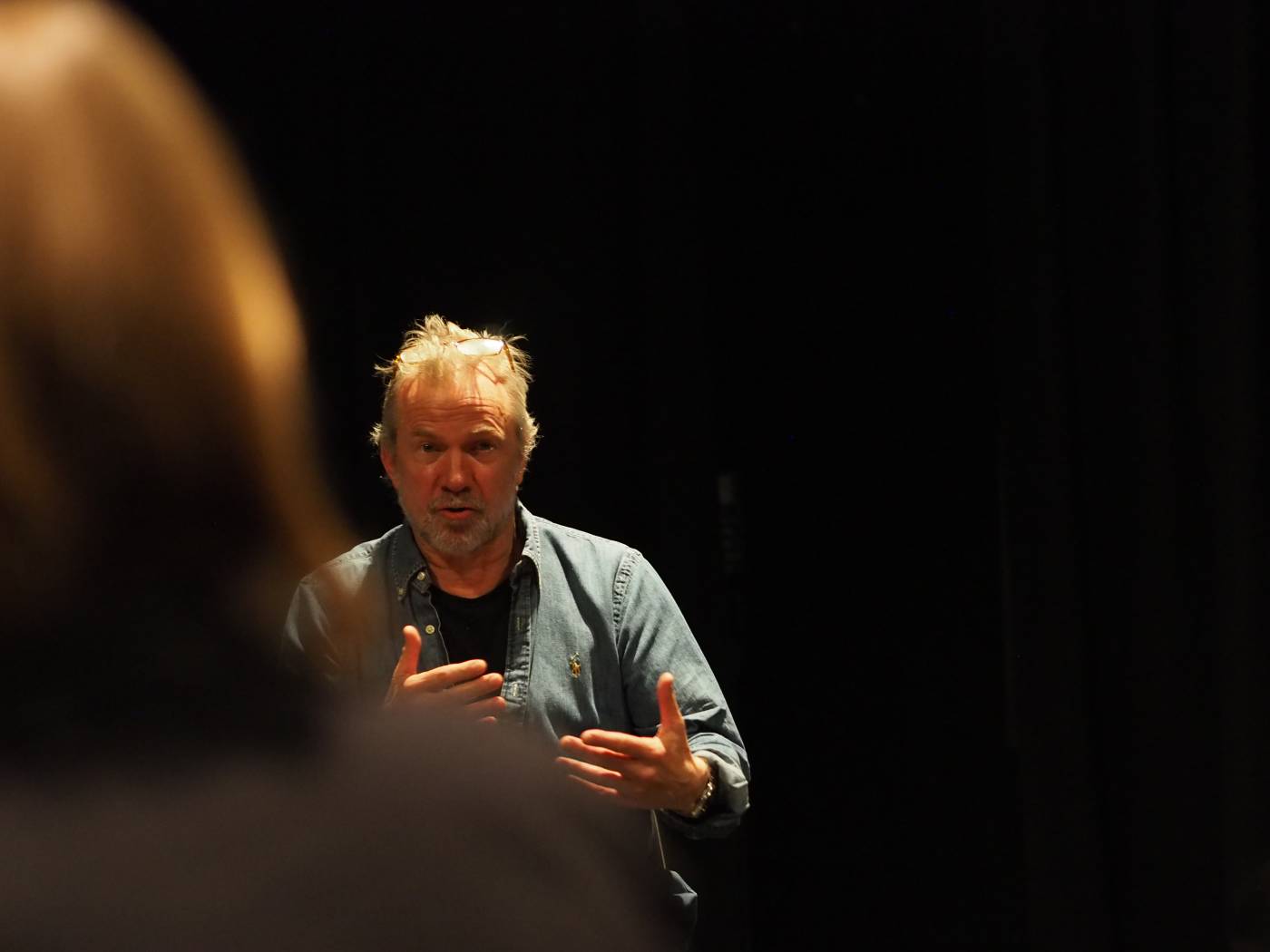
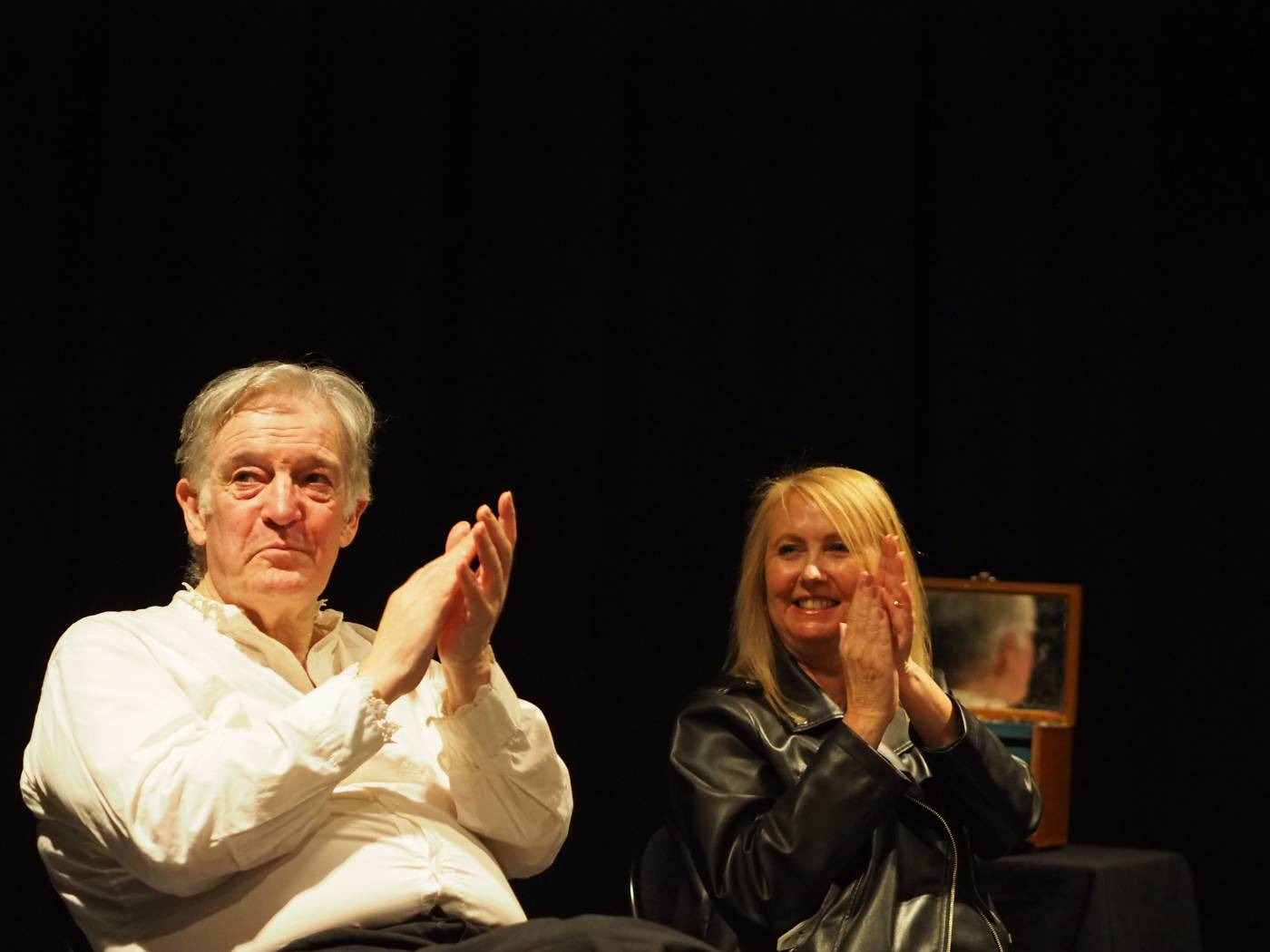
Penny Calliford and Edmund Dehn
- The Animal Kingdom (2023)
A play by the German playwright Ronald Schimmelpfennig (Das Reich der Tiere, 2007), translated by David Tushingham. Performed at Bloomsbury studio on March 27th & 28th 2023.
Synopsis: The Animal Kingdom is a meta-theatrical piece that depicts the unremitting battle for human survival in a merciless environment: the theatre. During the rehearsals of the play ‘The Animal Kingdom’, the actors and actresses share their fears, hopes and anxiety about their present and future, and their performance holds a mirror up to their soul.
- Stage manager and promotion campaign: Elena Xiang (SELCS UG)
- Graphic designer: Clara Tu (NY based artist)
- Costume designer and maker: Michele Pala (SELCS administrator)
- Director: Marta Niccolai
- Consultant theatre director: Anthony Shrubsall
Cast in alphabetical order:
- Garston Ryan (Dirk / The Marabou / A squeezy bottle of ketchup)
- Lohr Yola (Isabel / The Genet / A peppermill)
- Marskell Alex (Peter / The Lion / A fried egg)
- Sharma Kartik (Chris)
- Ygouf Jade (Sandra / The Antelope / A piece of toast)
- Sun Hana (Frankie / The Zebra)
Collaborations
Special thanks to the SELCS German department for their financial support.Our gratitude to Anthony Shrubsall, freelance theatre director, who provided his creative guidance and advise for the acting and the stage adaptation of the play.
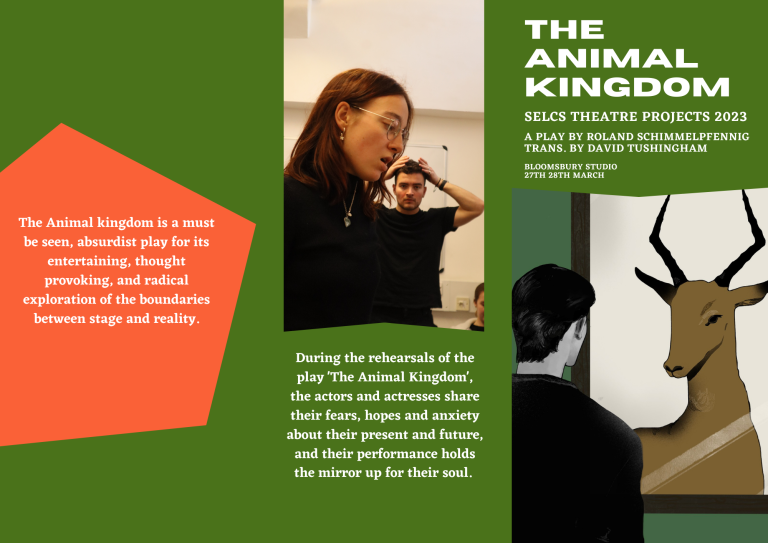
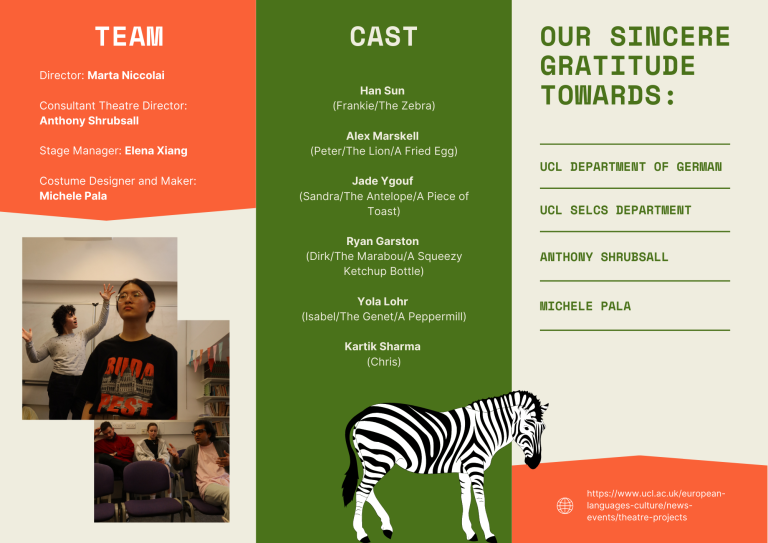
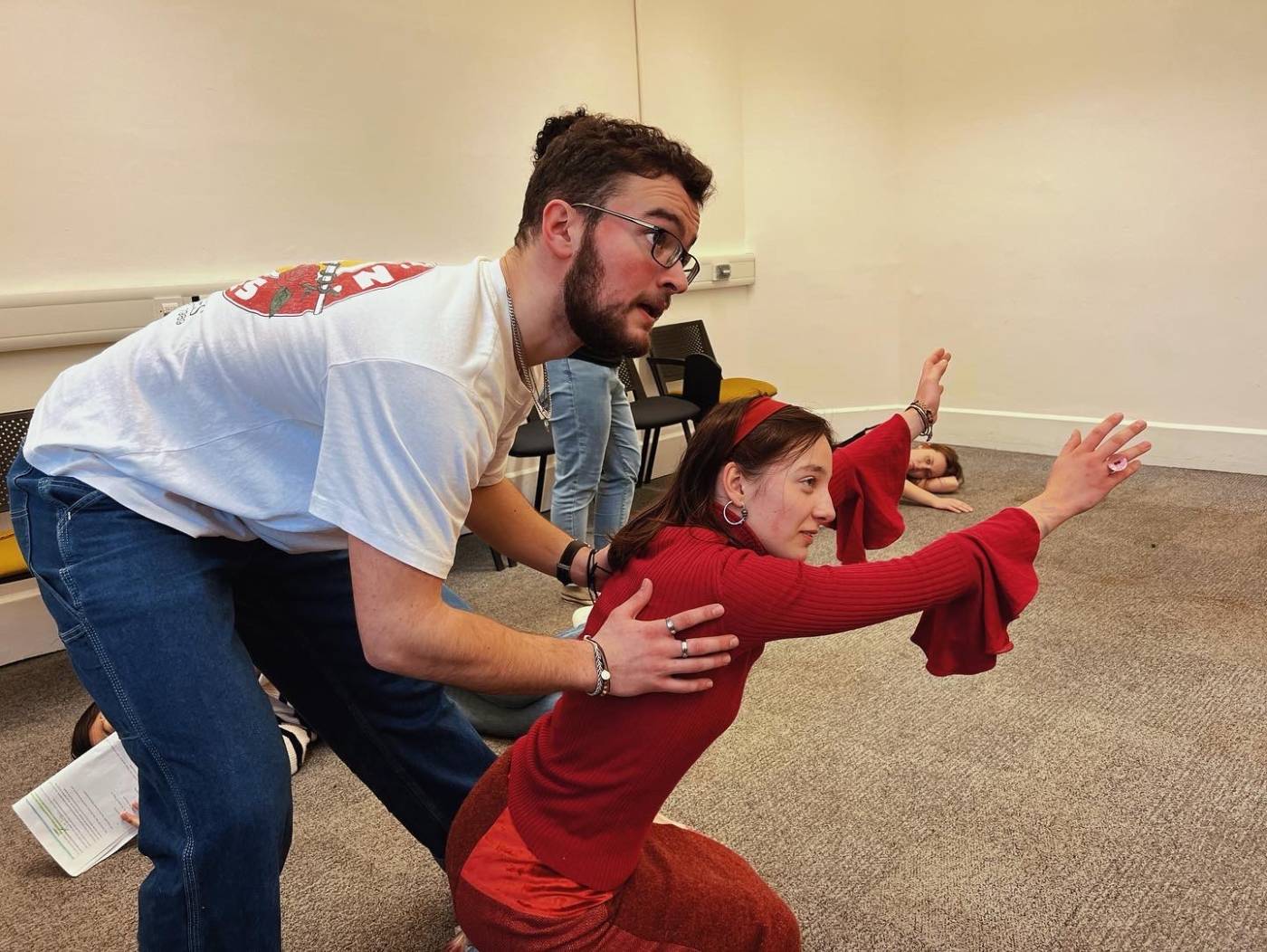
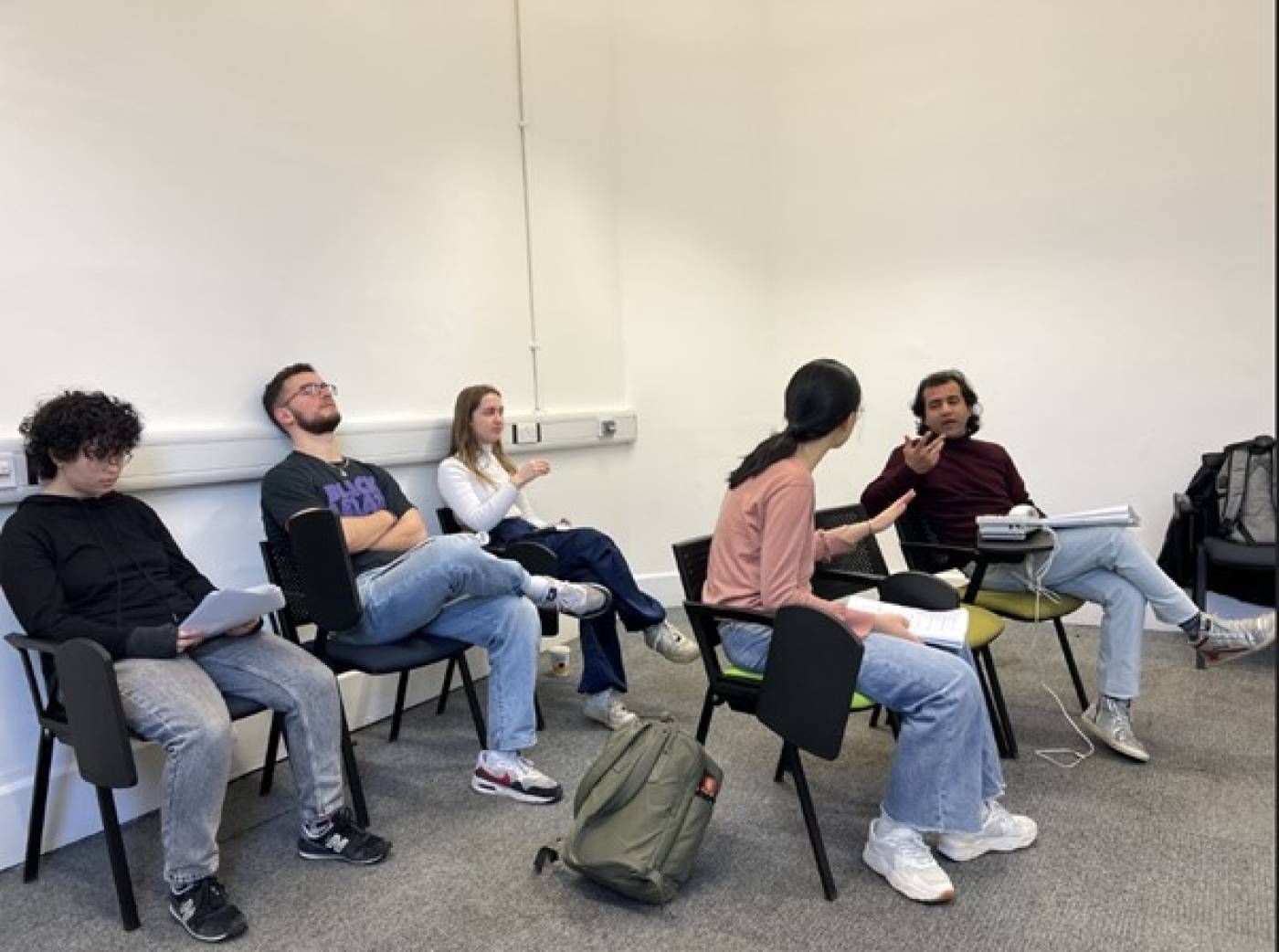
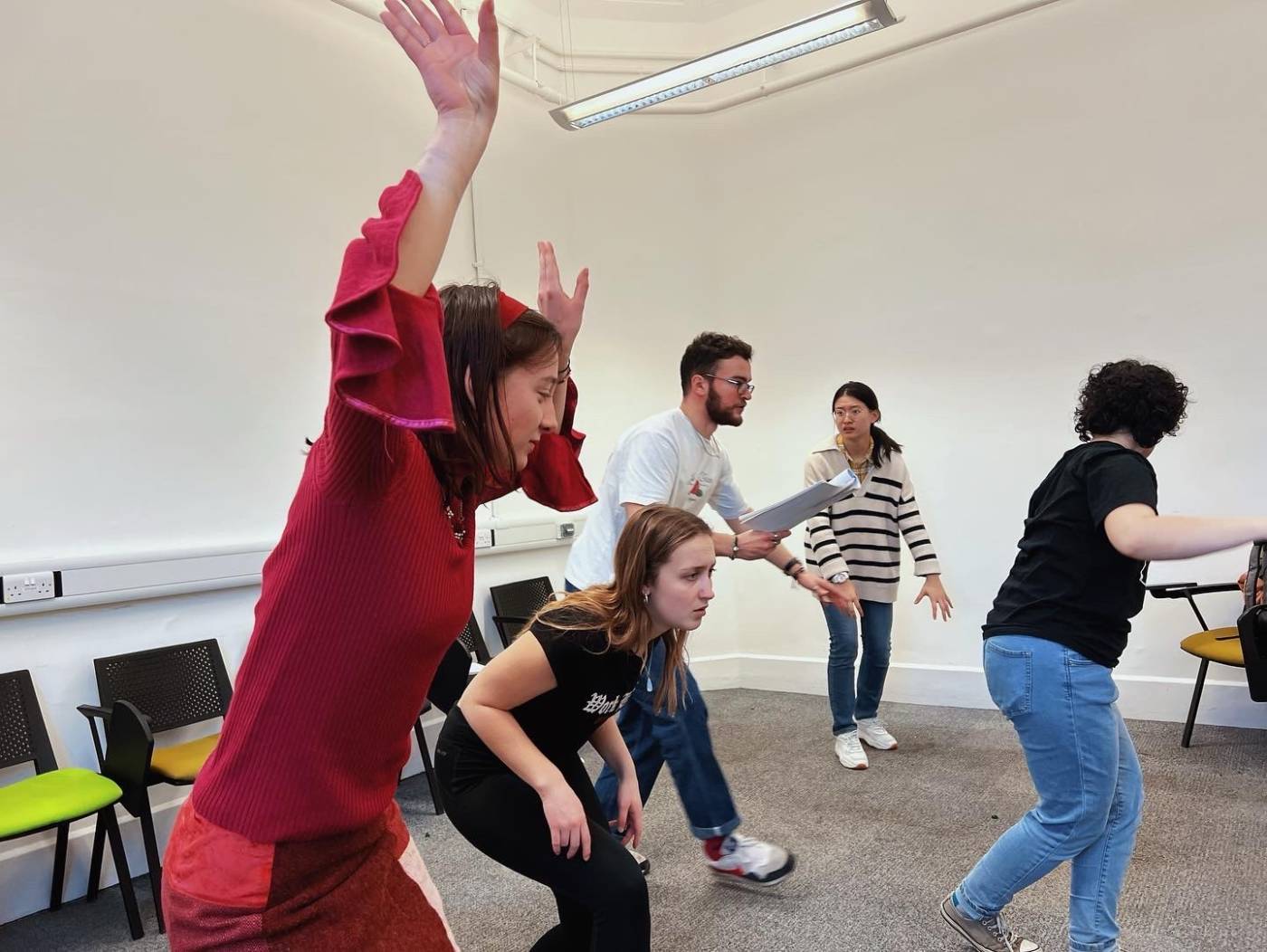


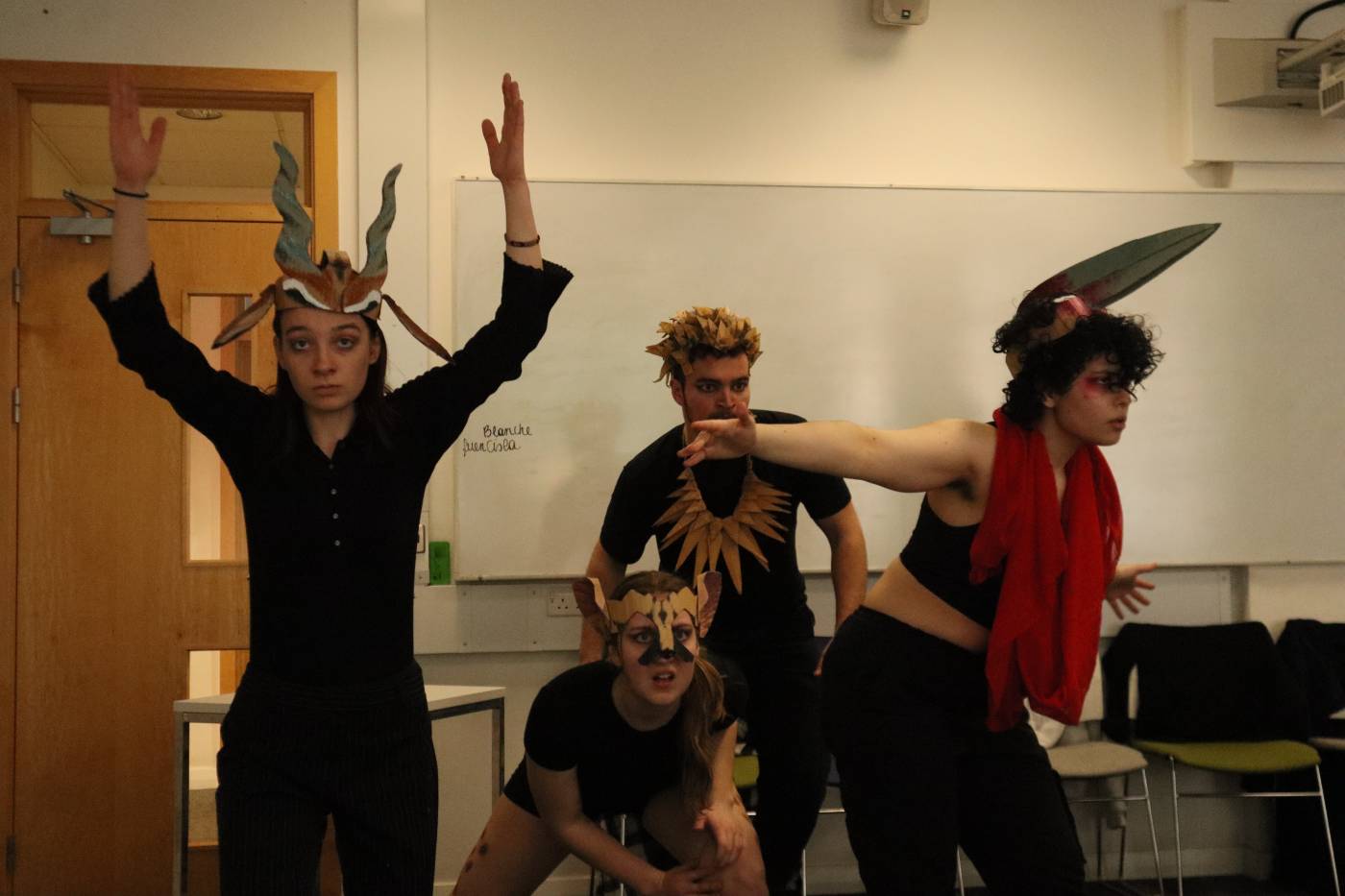
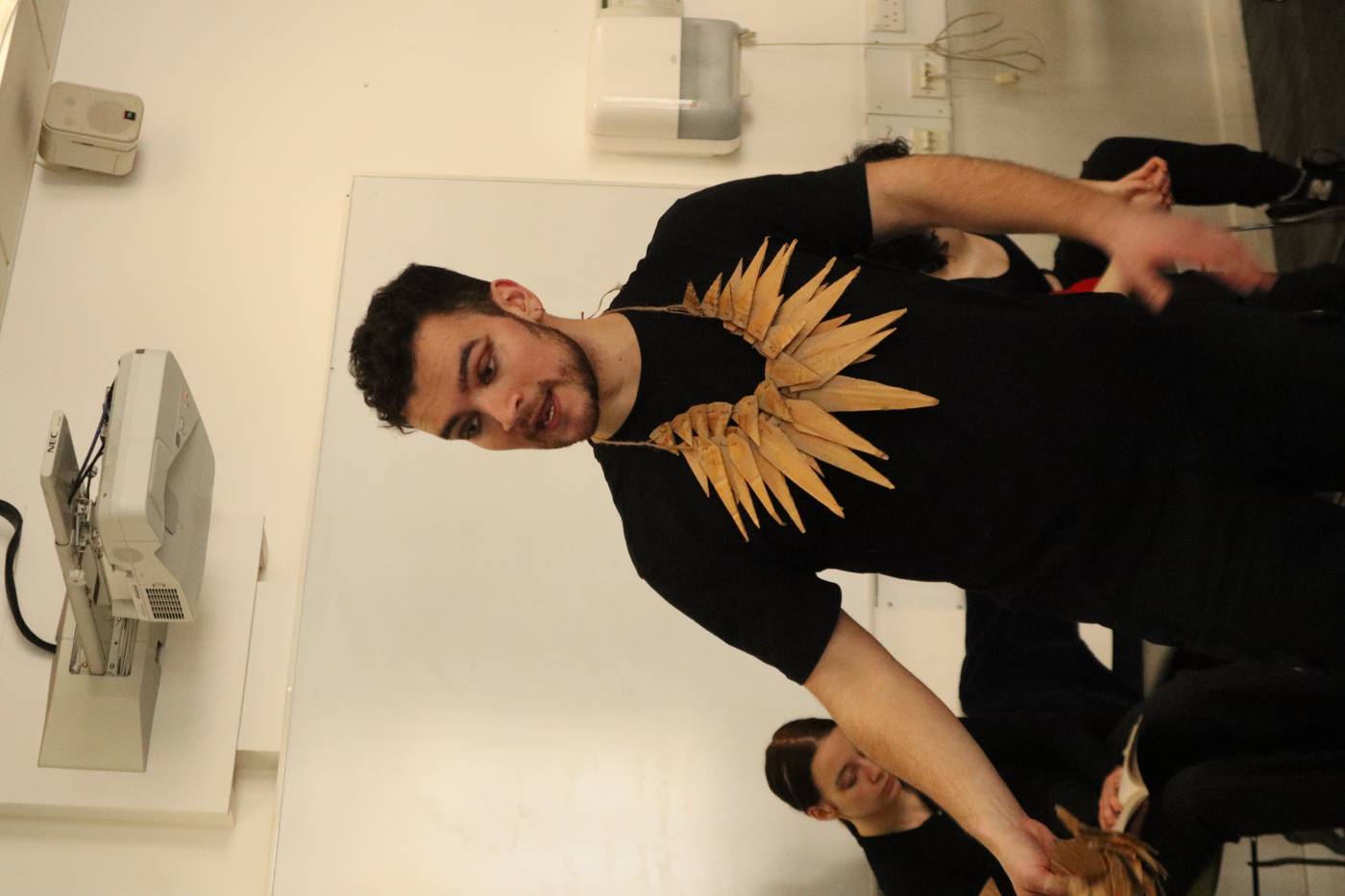

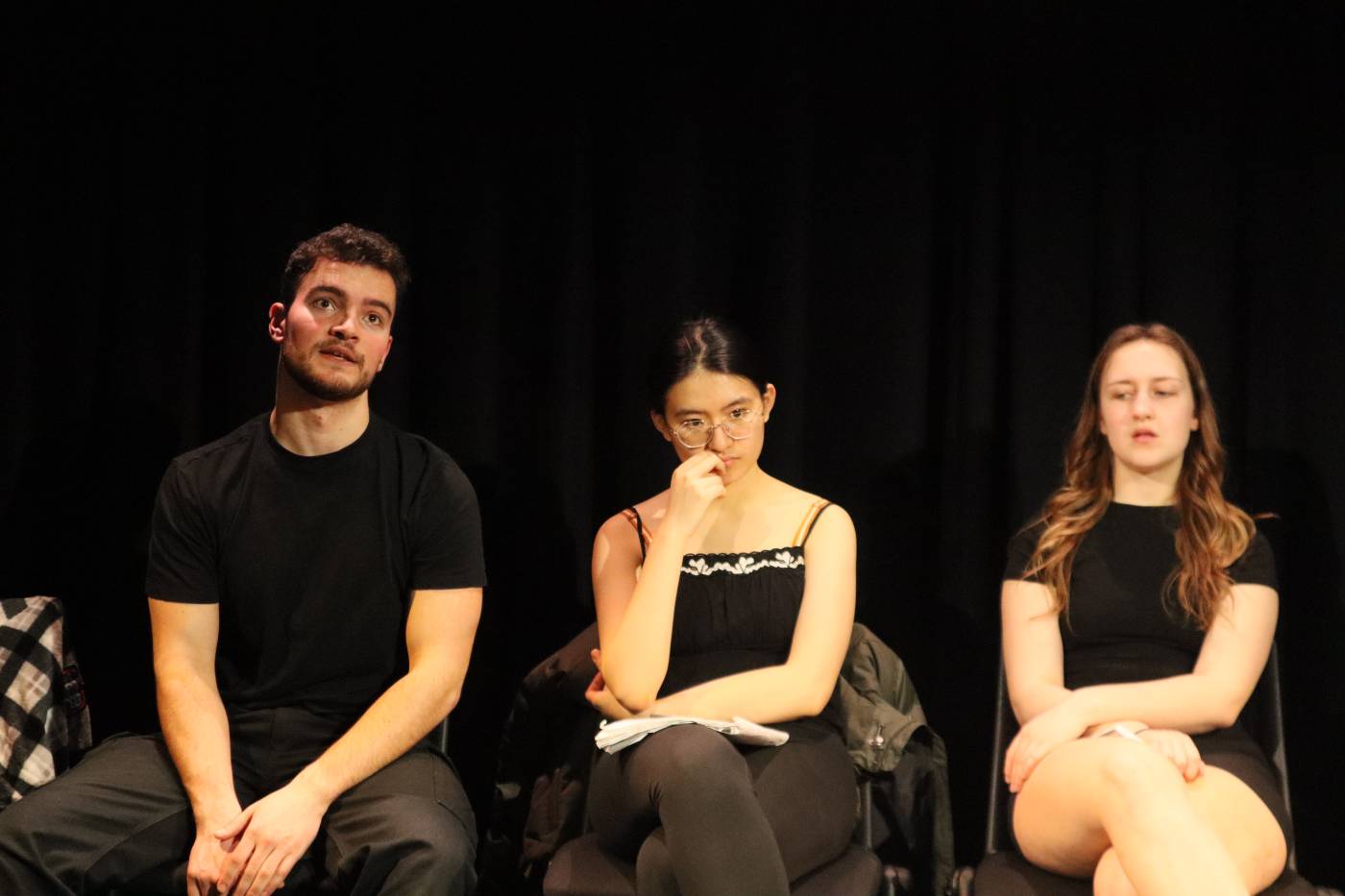
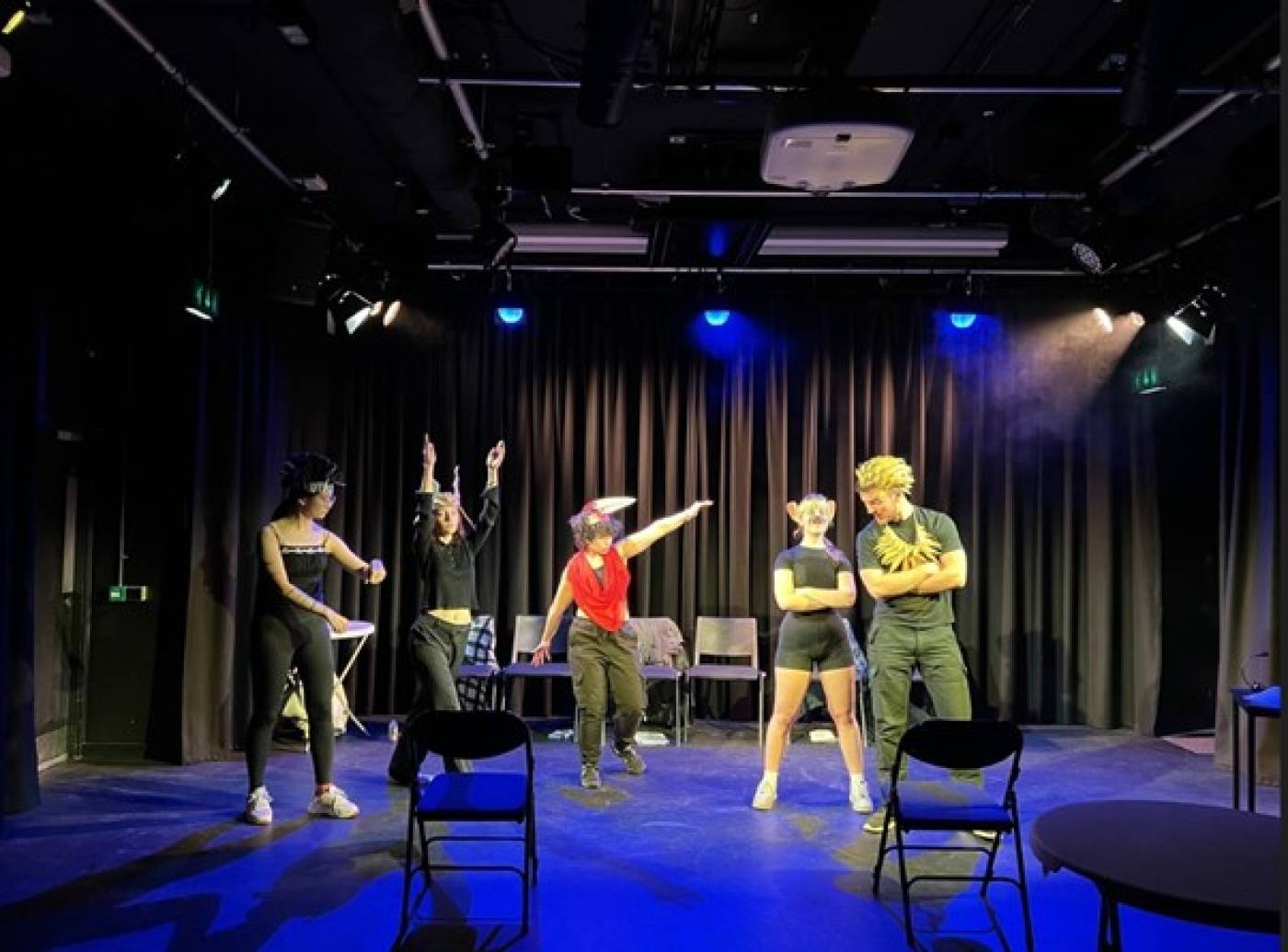
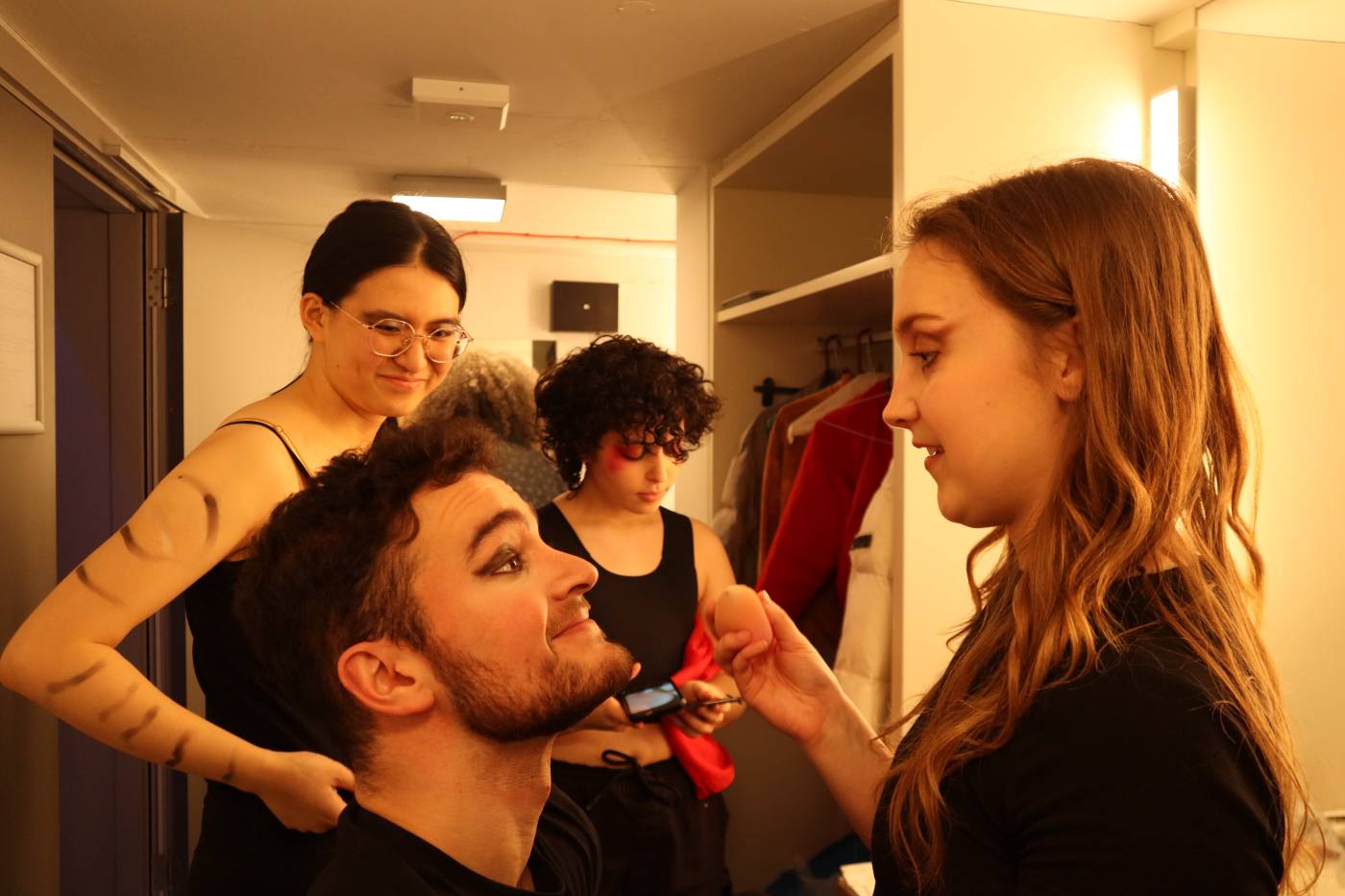

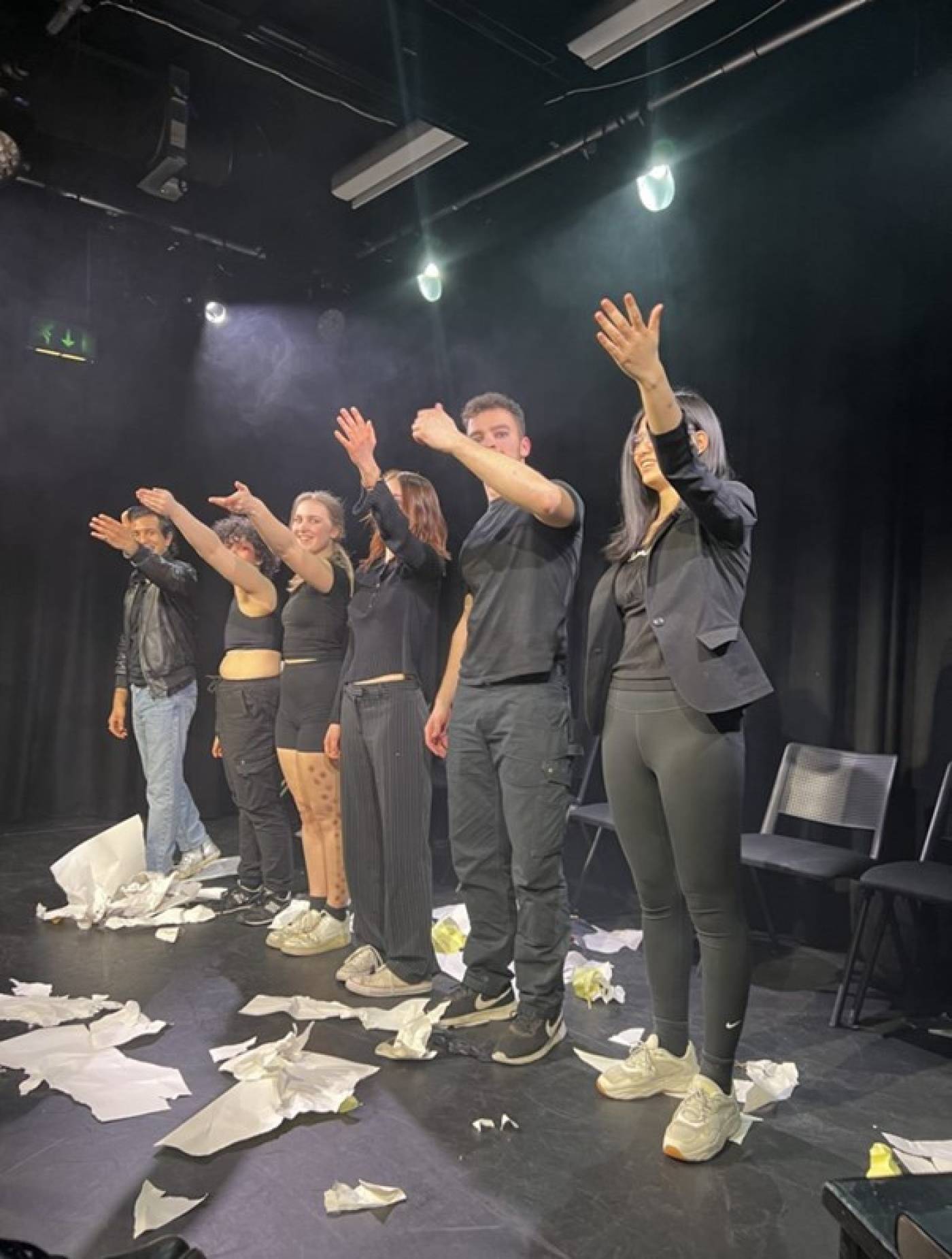
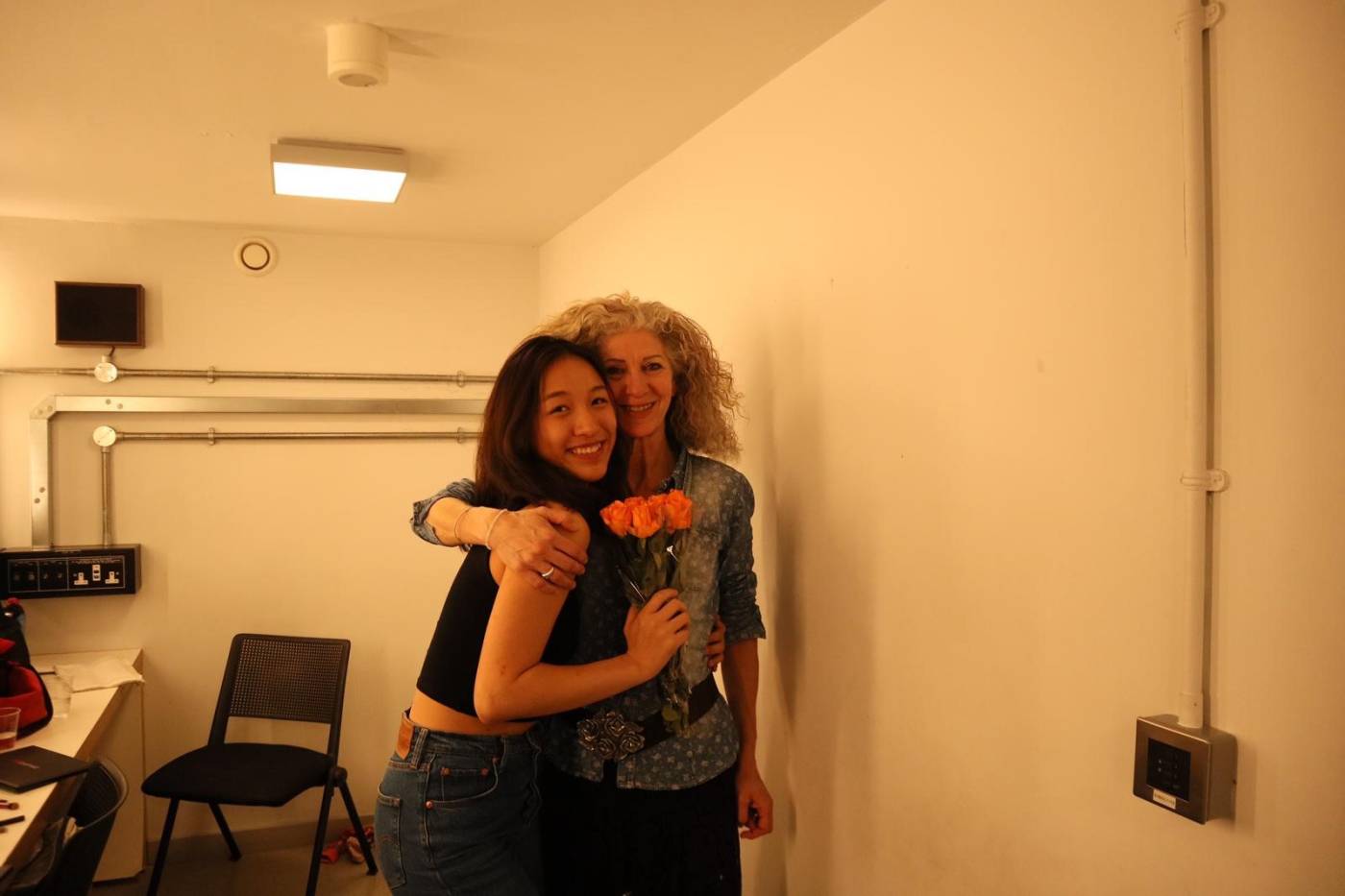
 Close
Close

